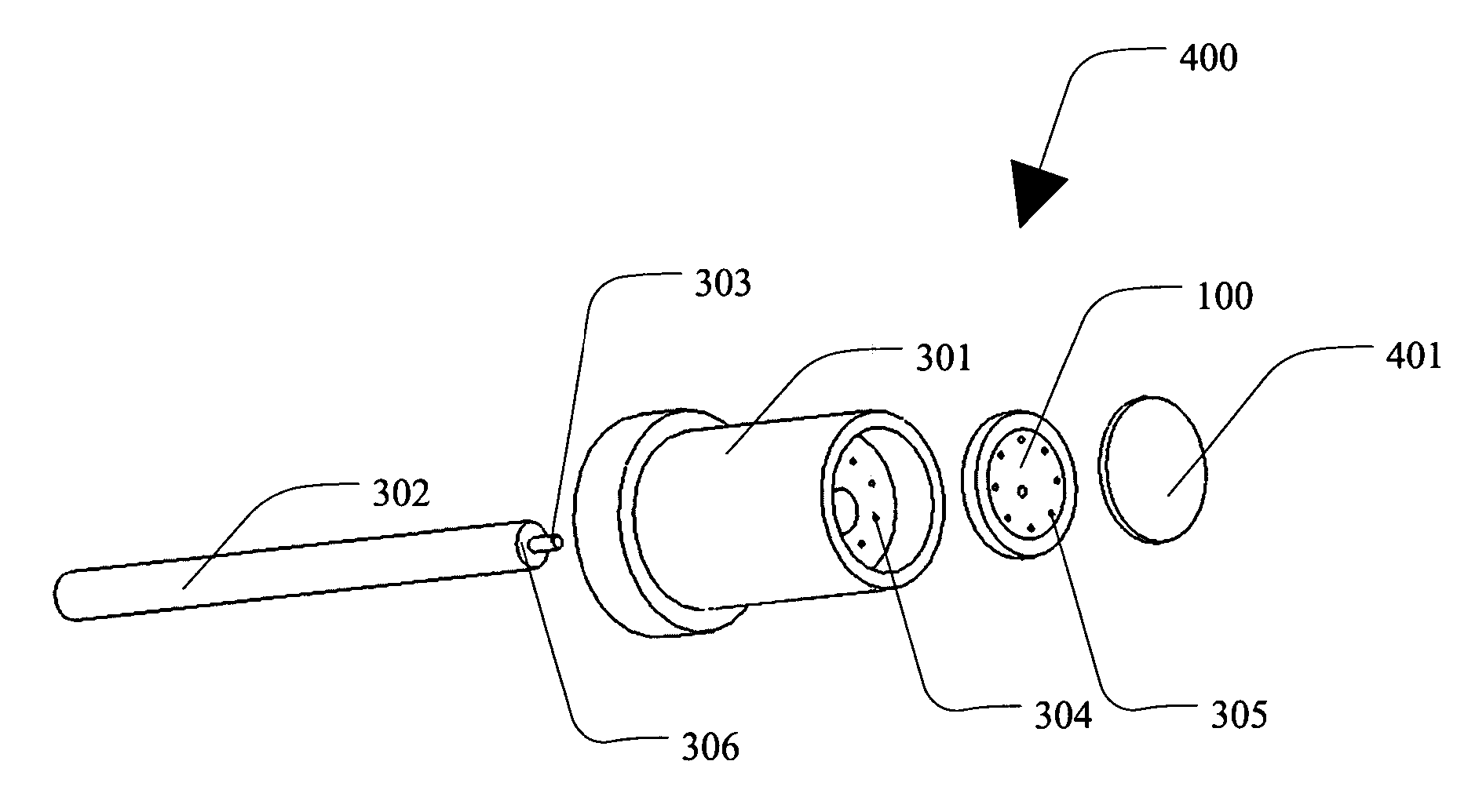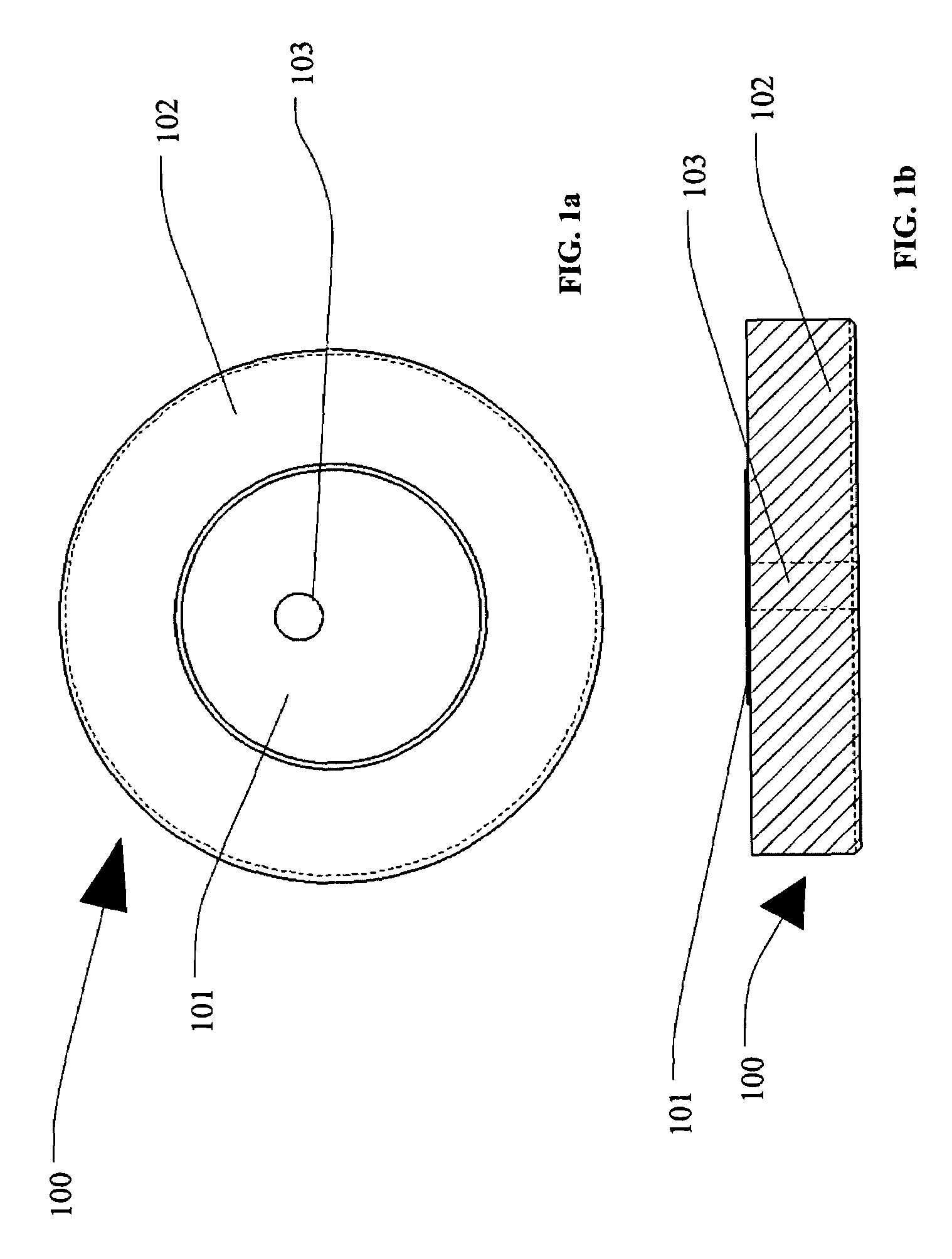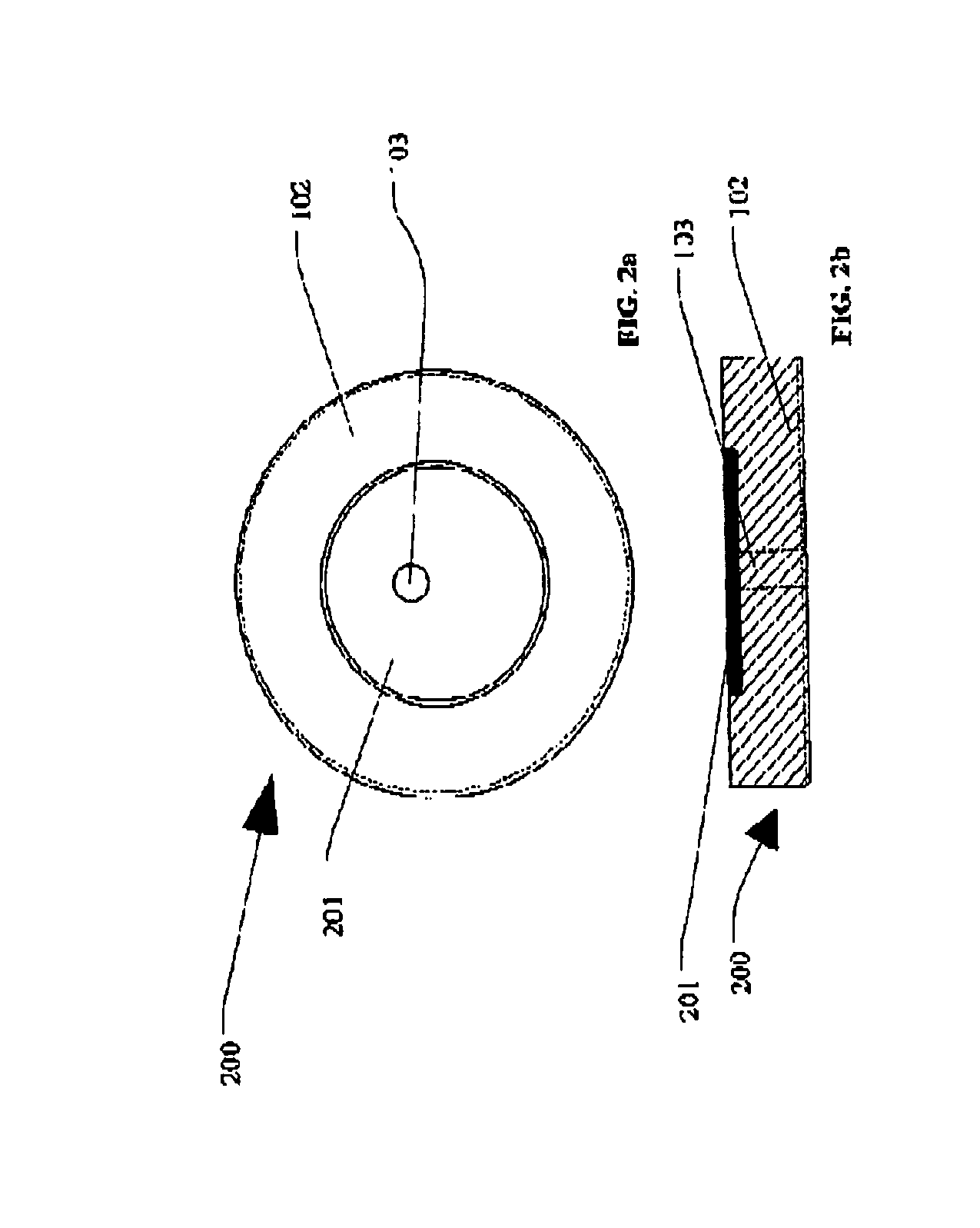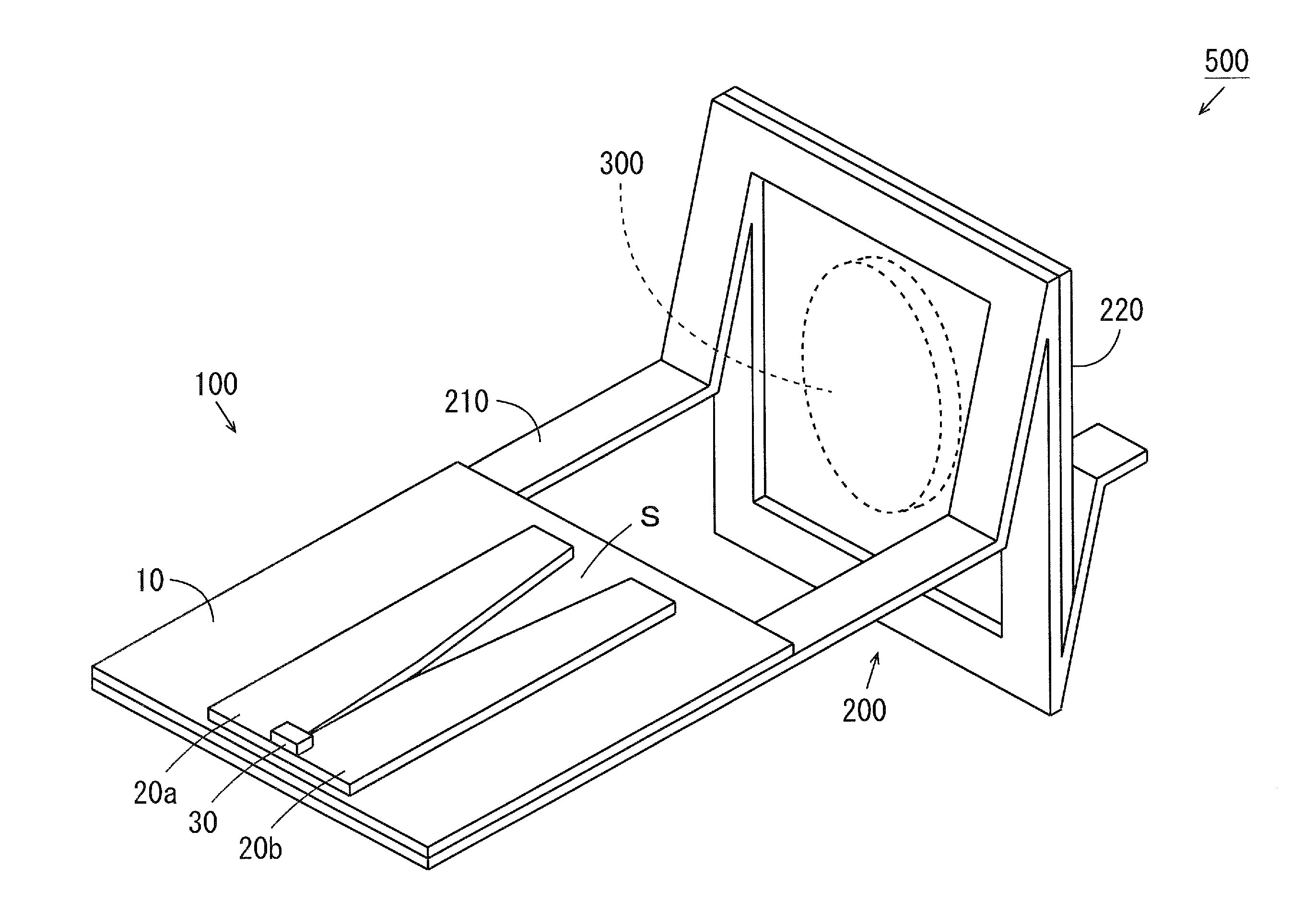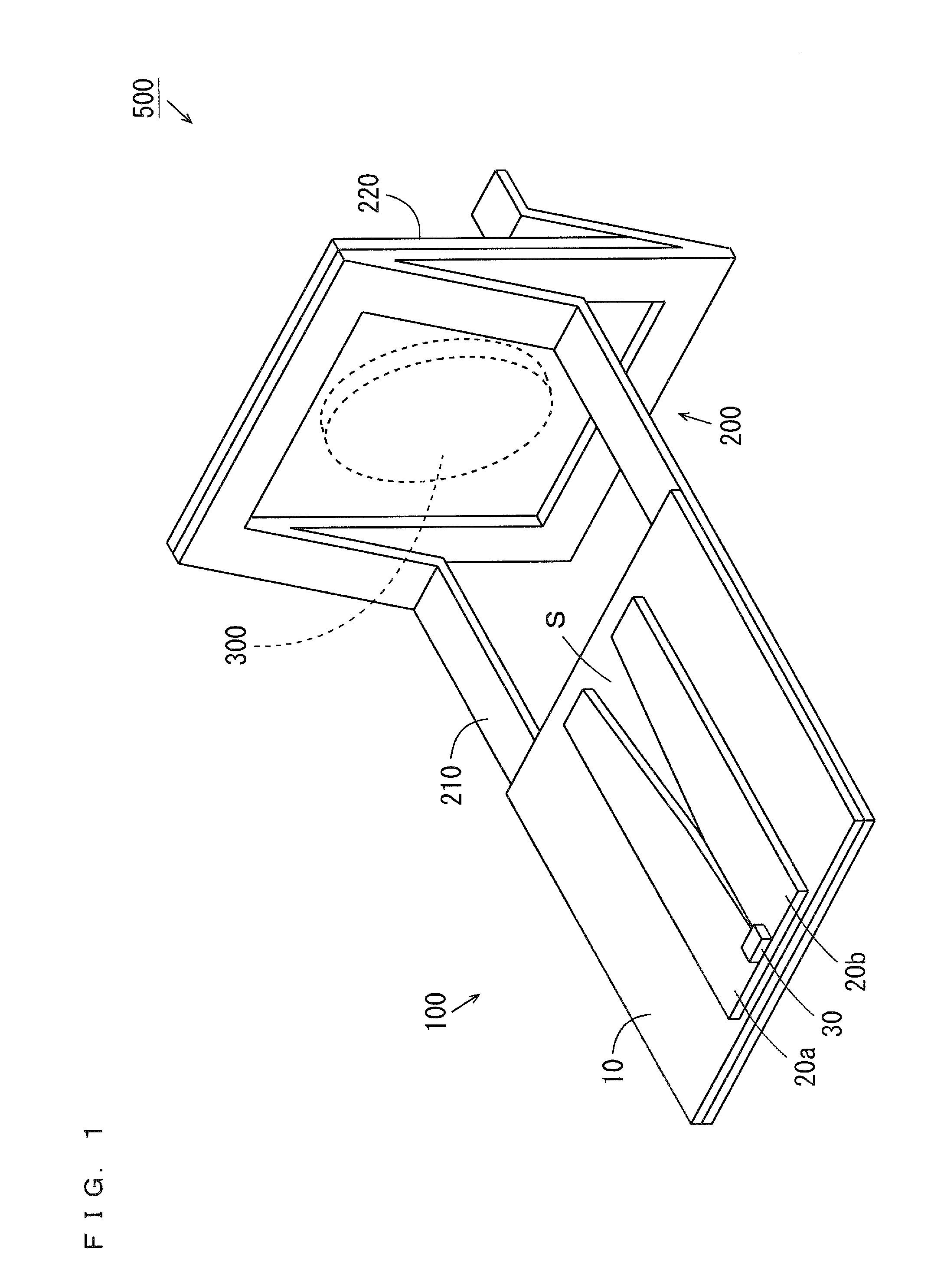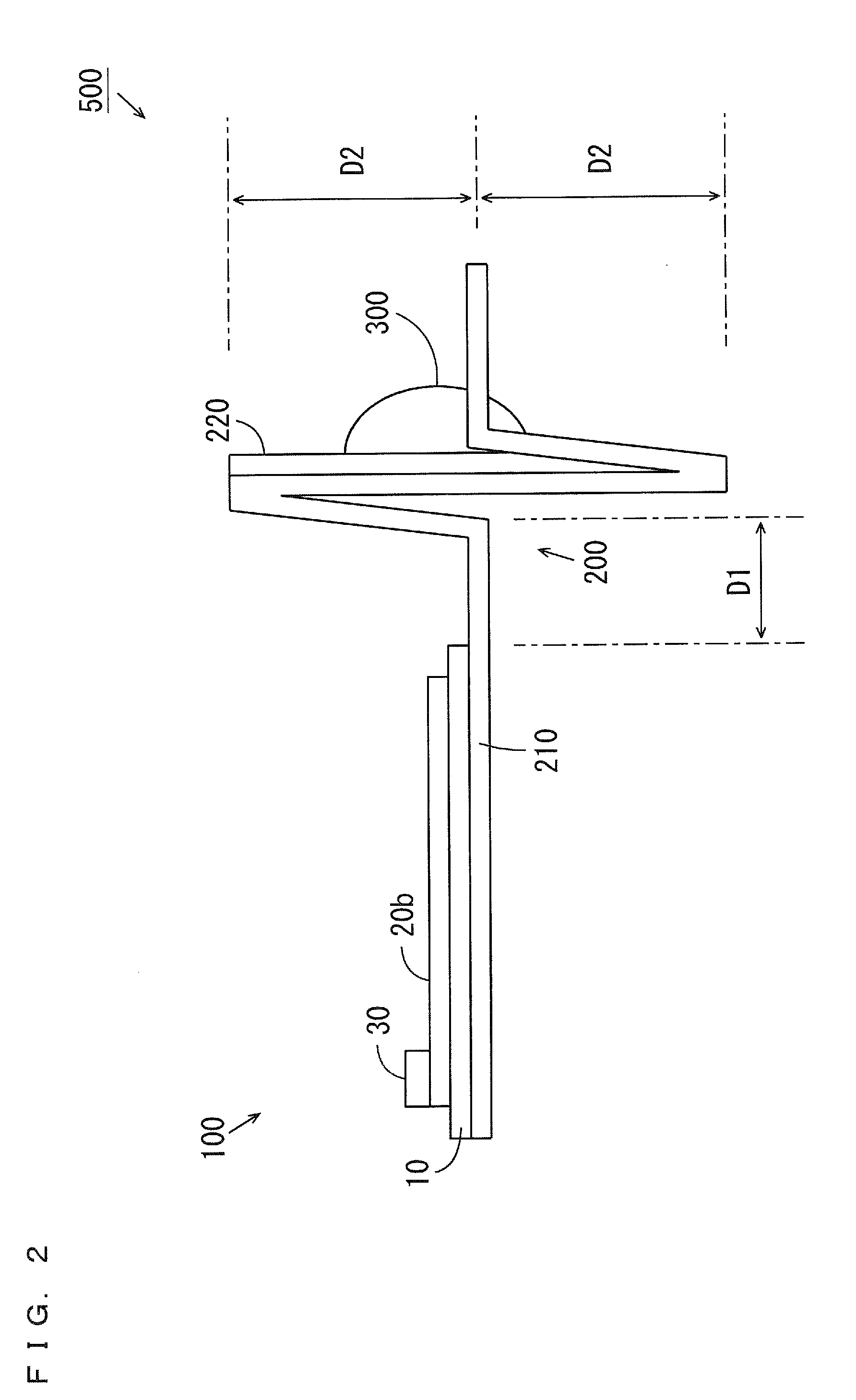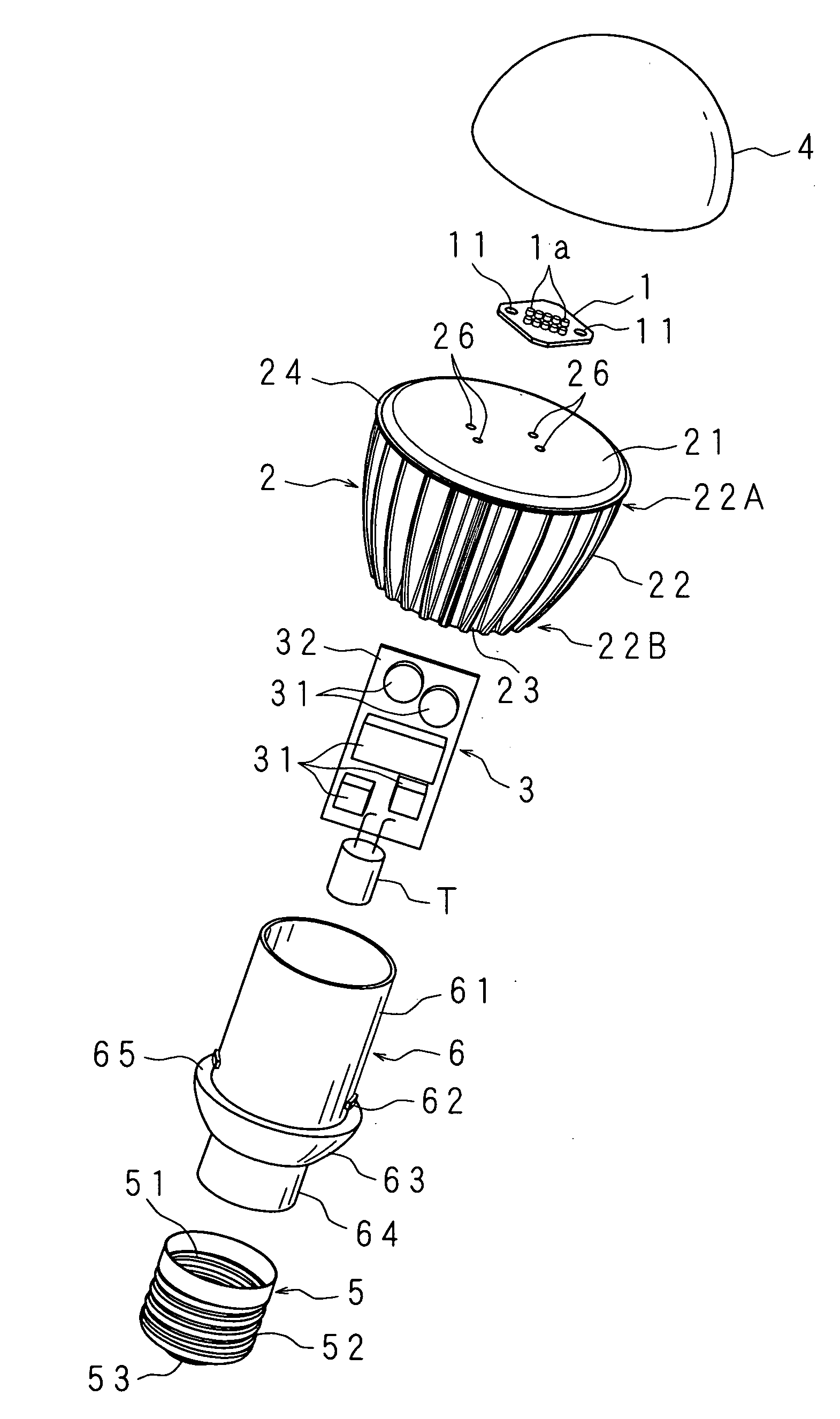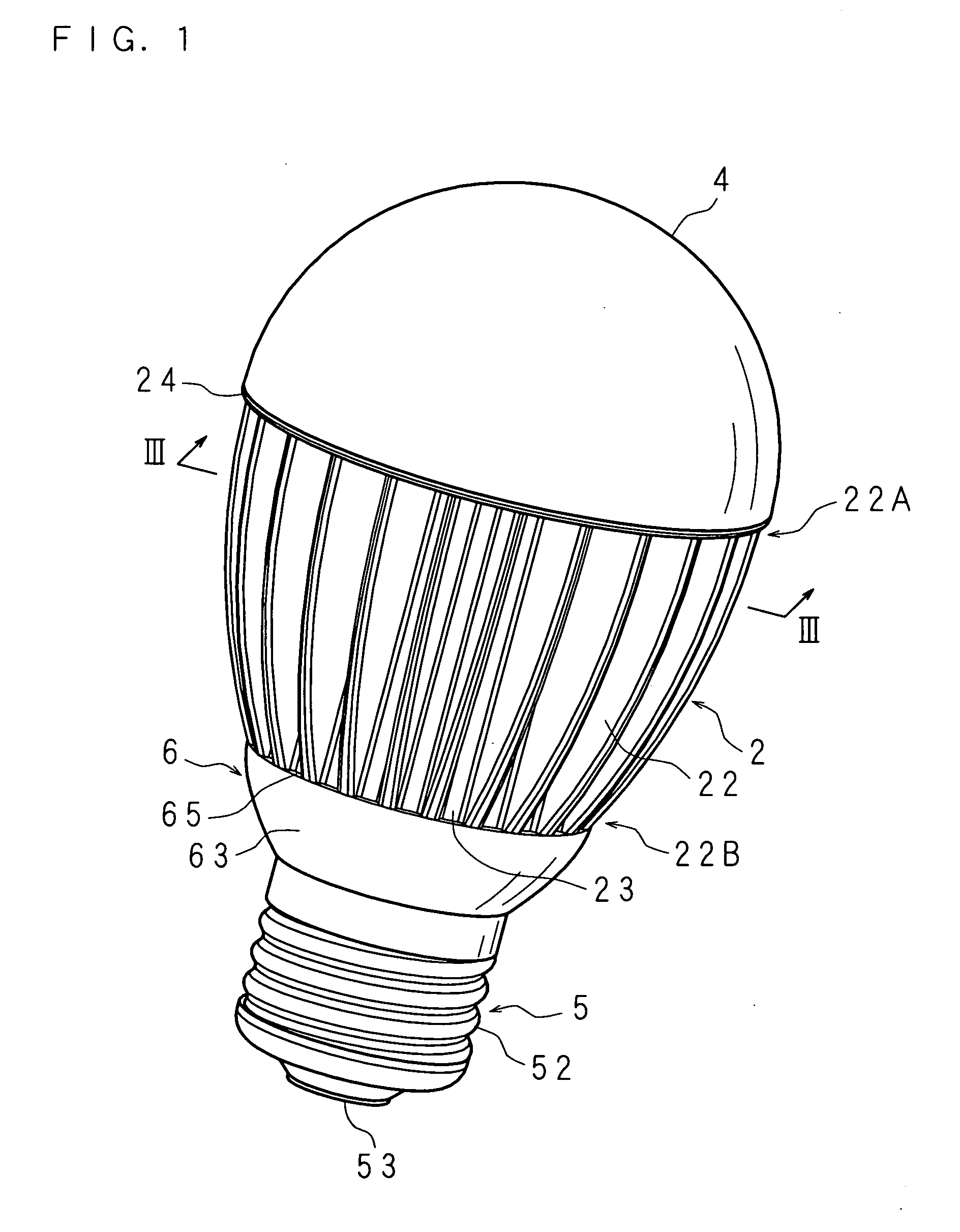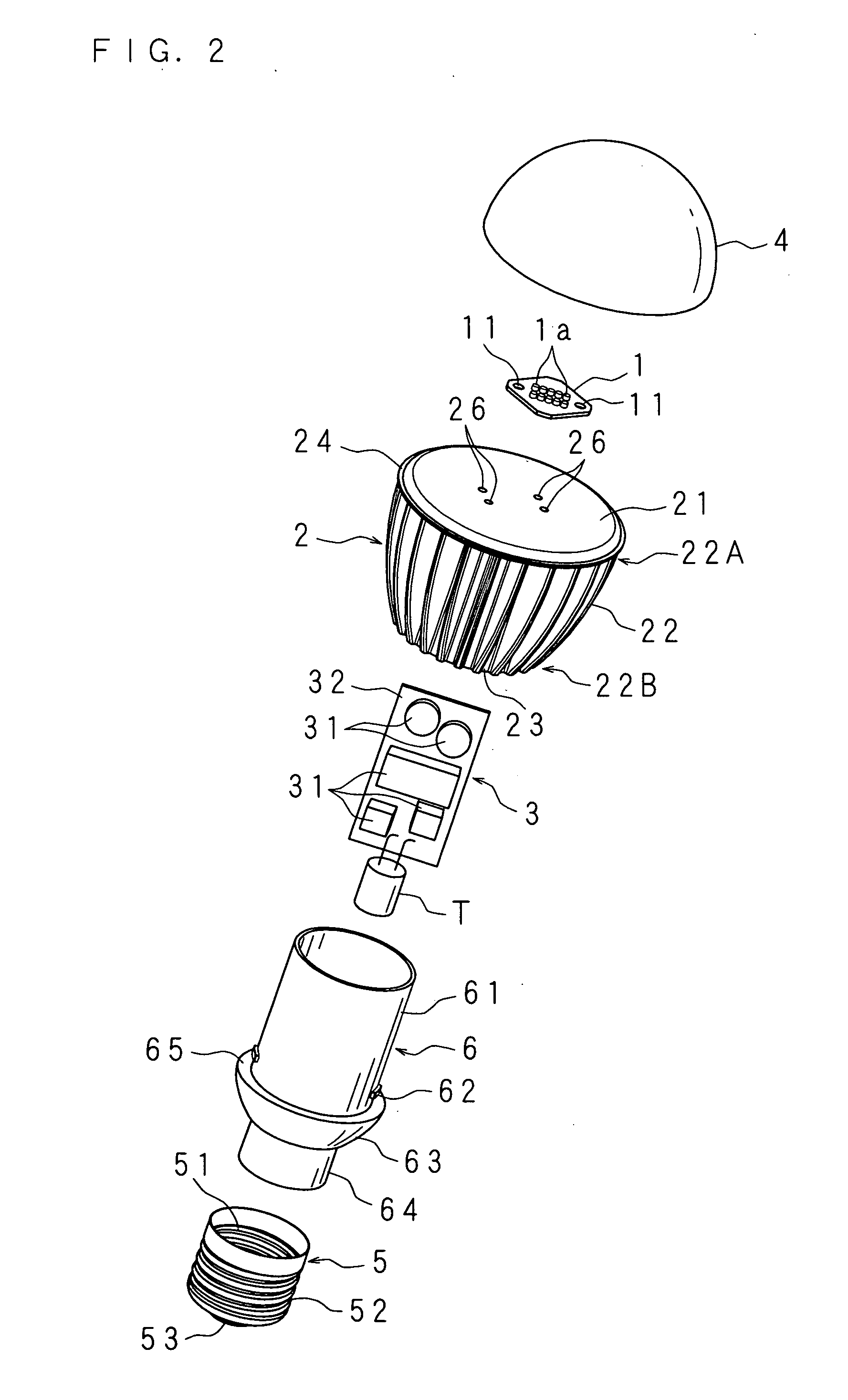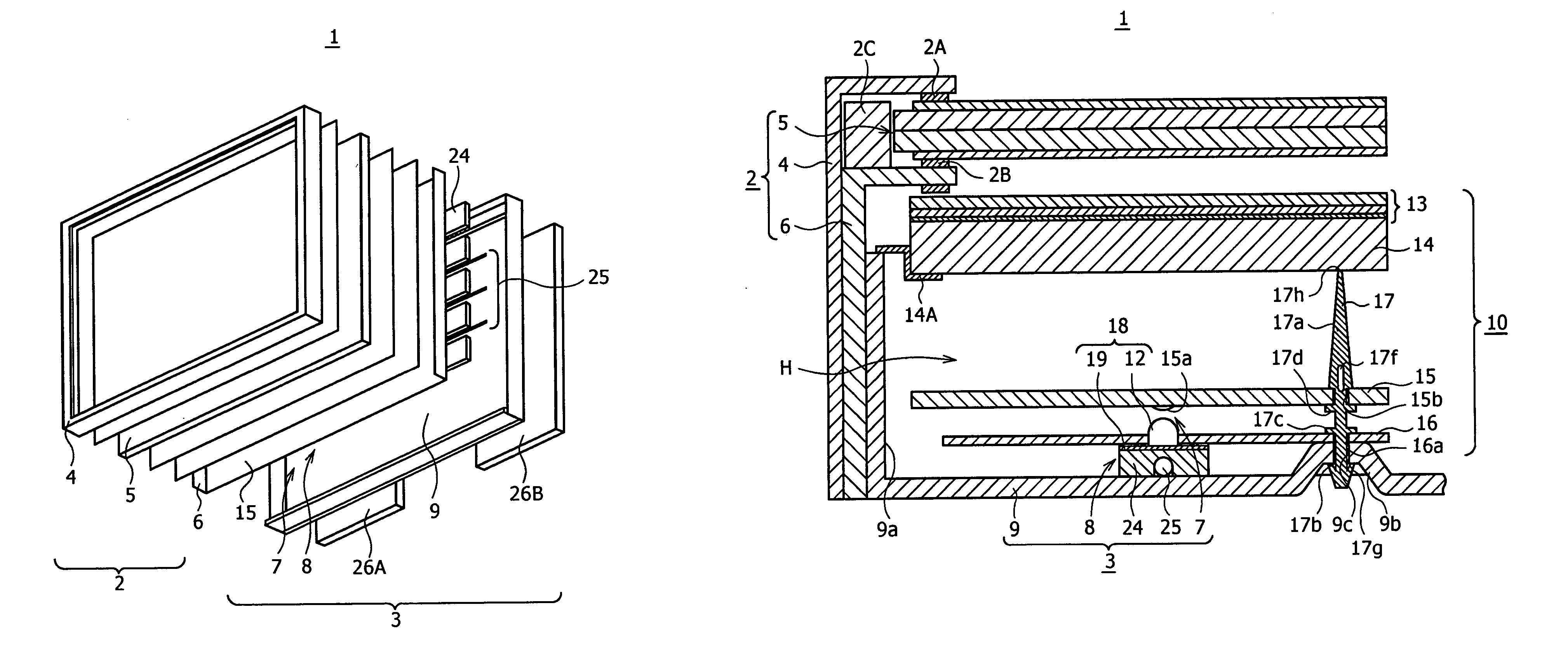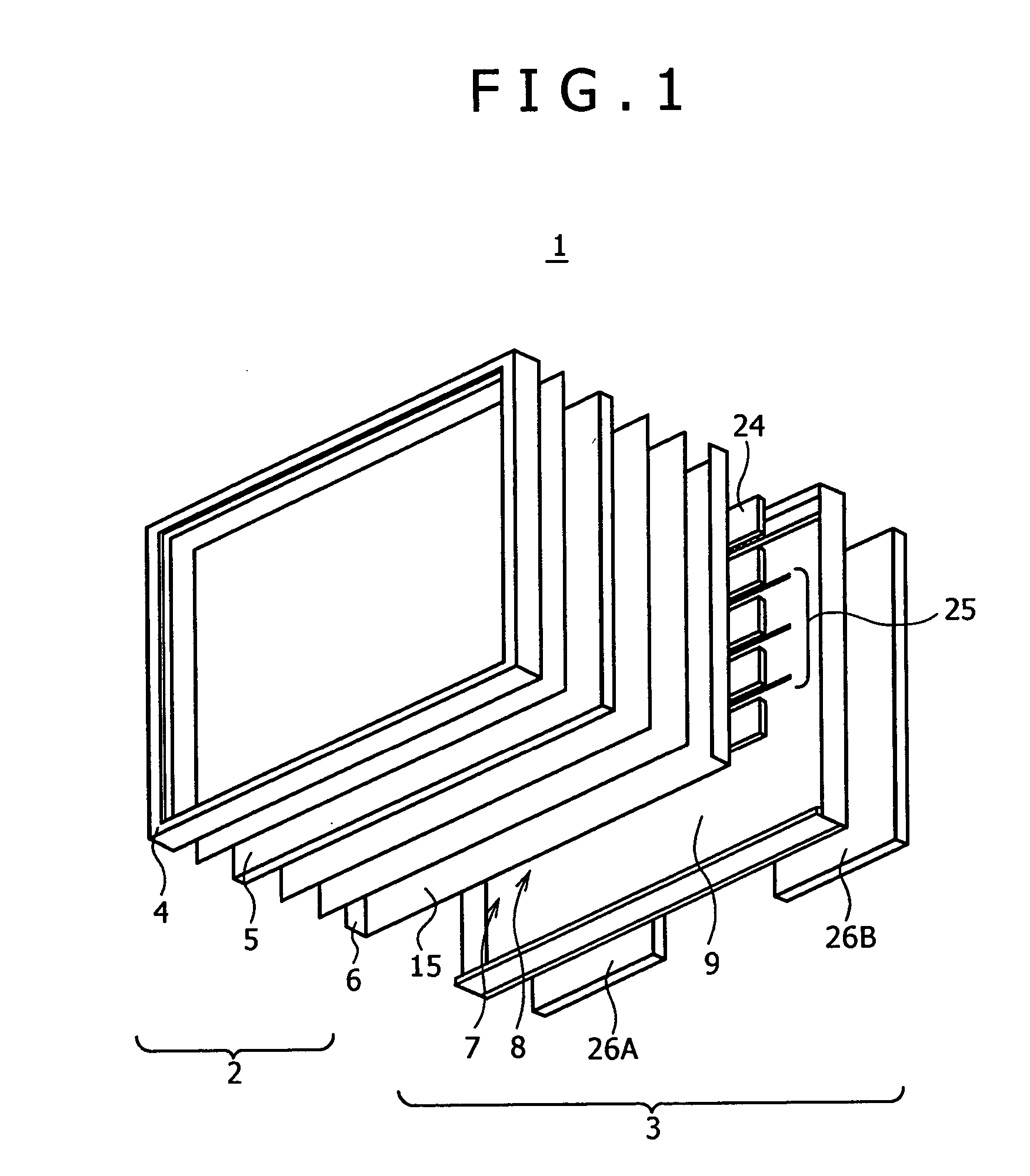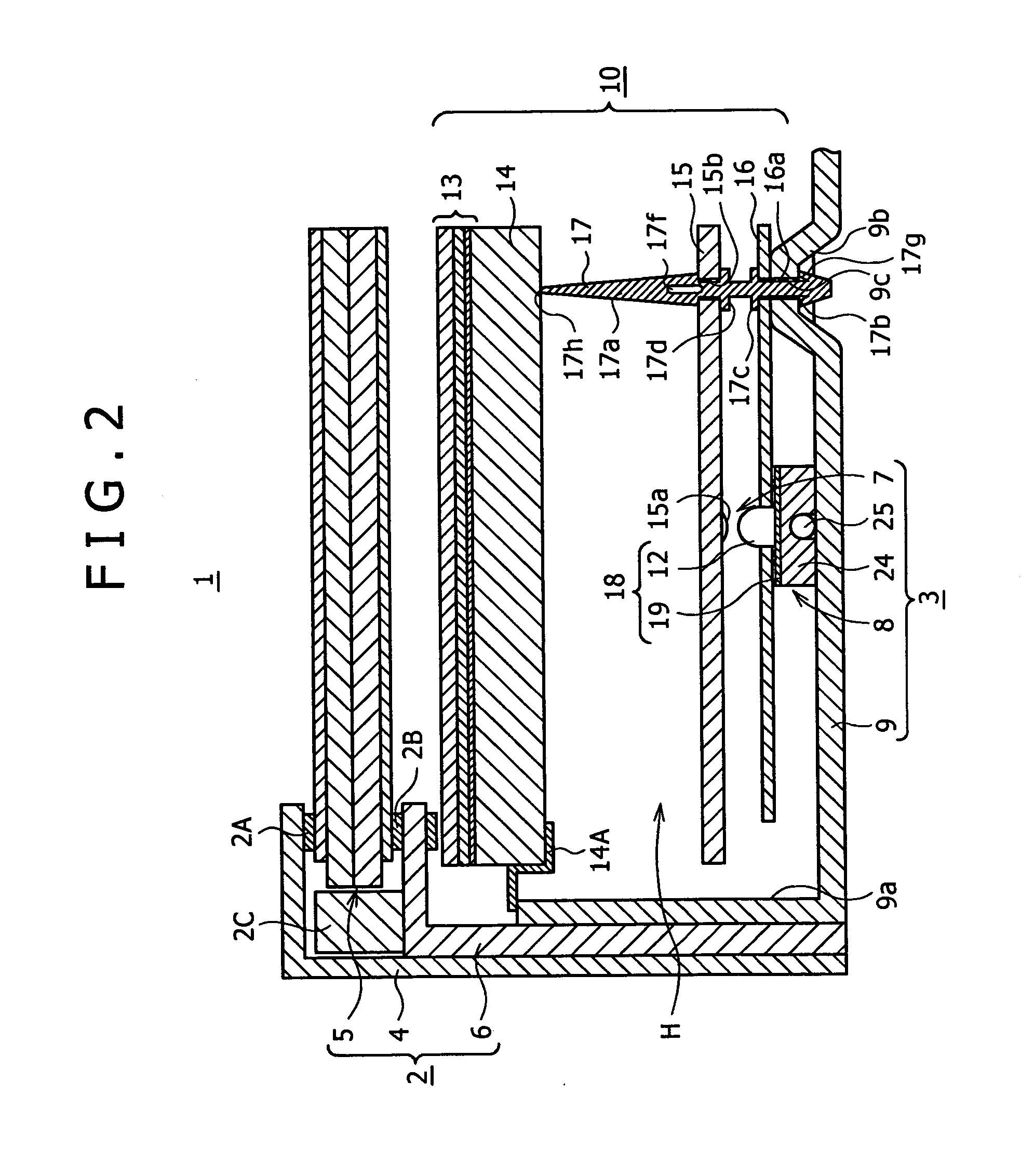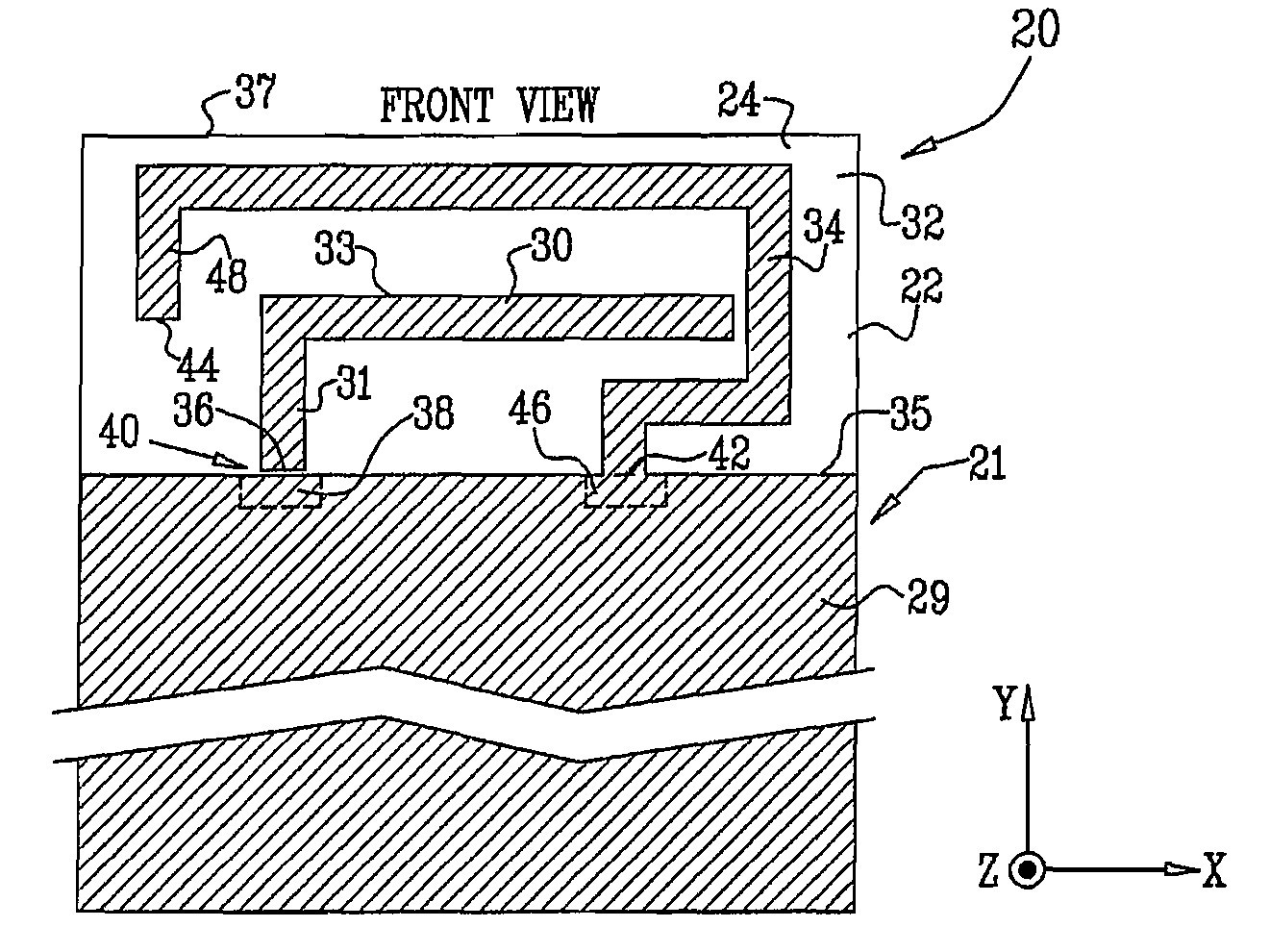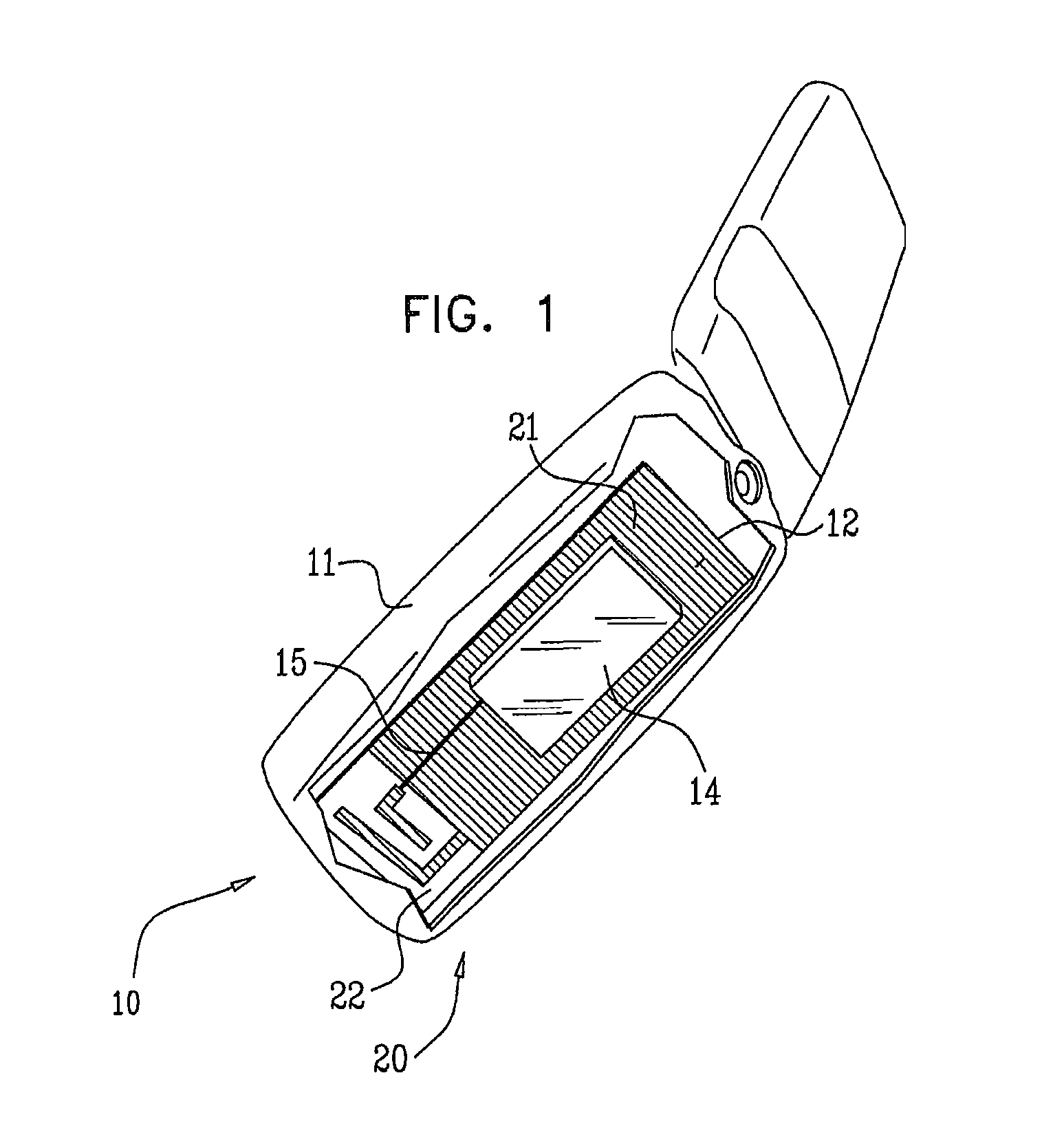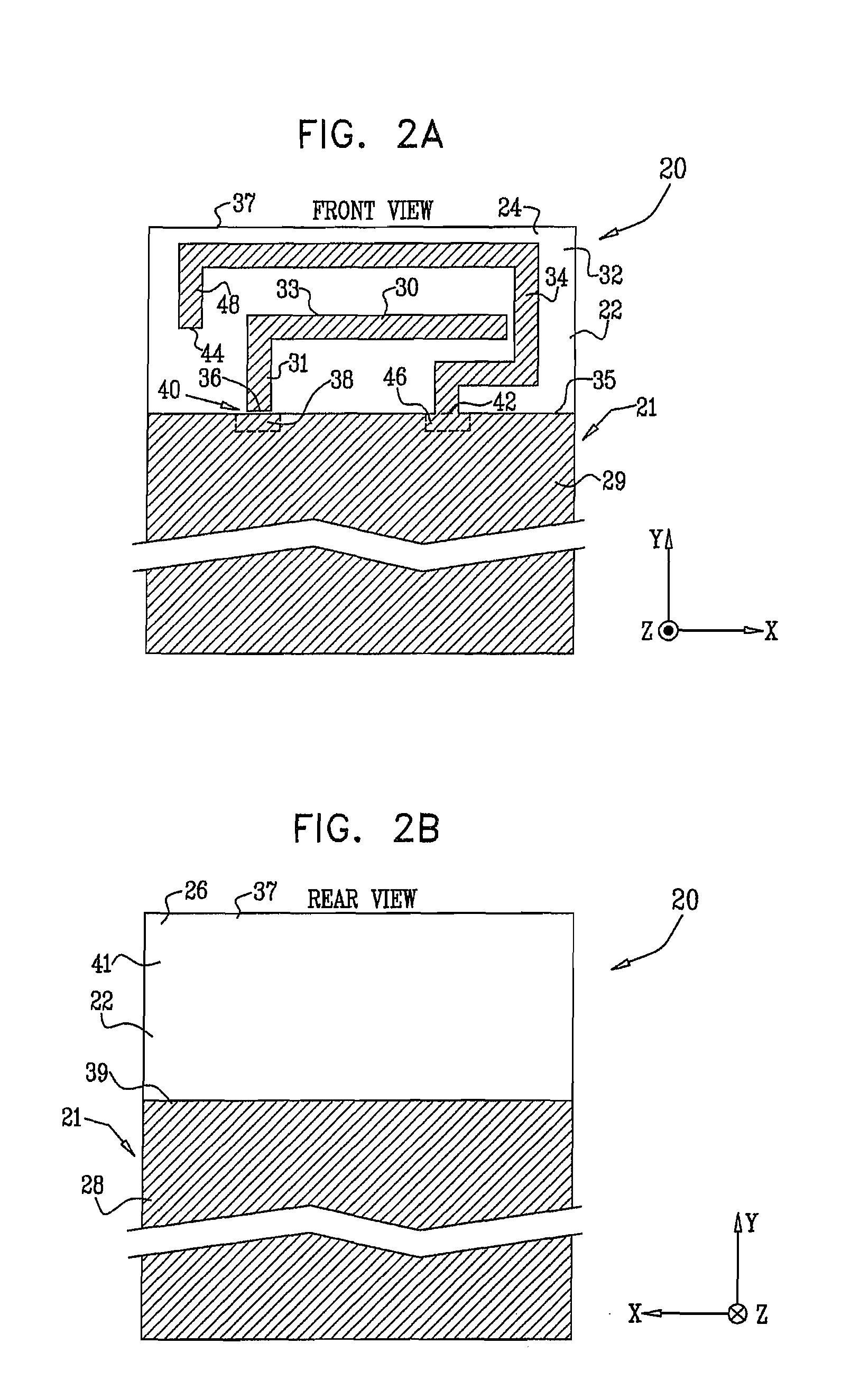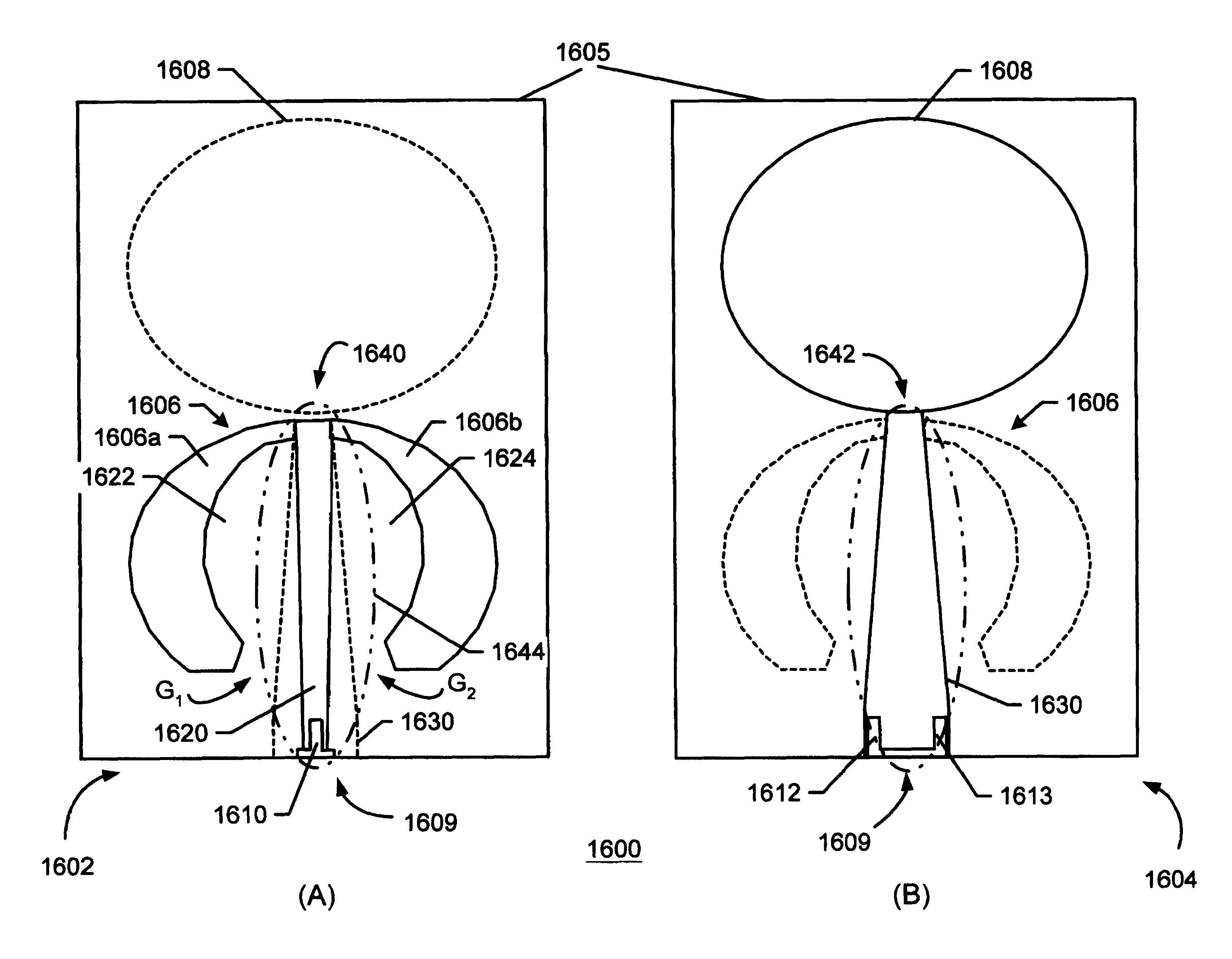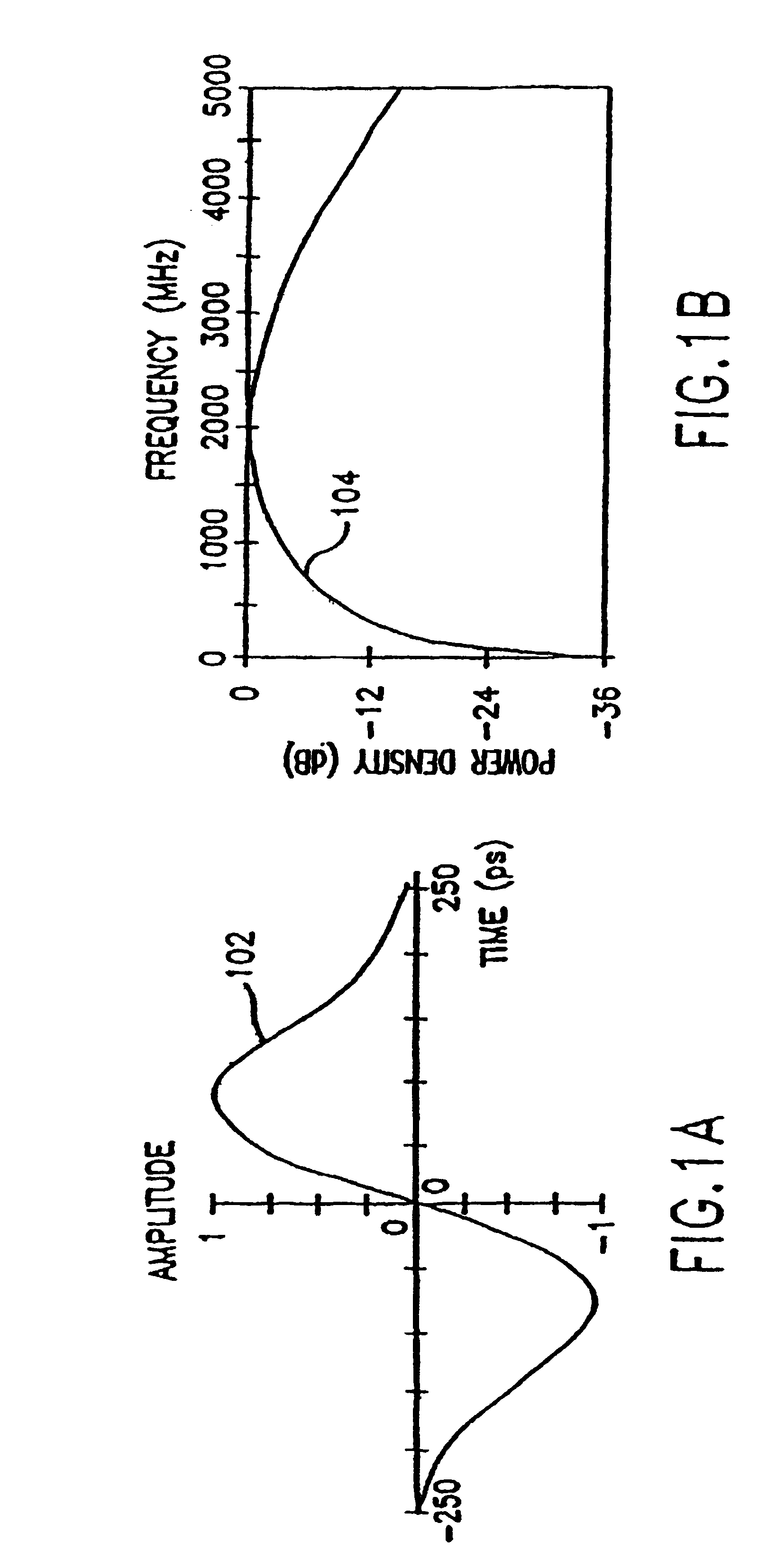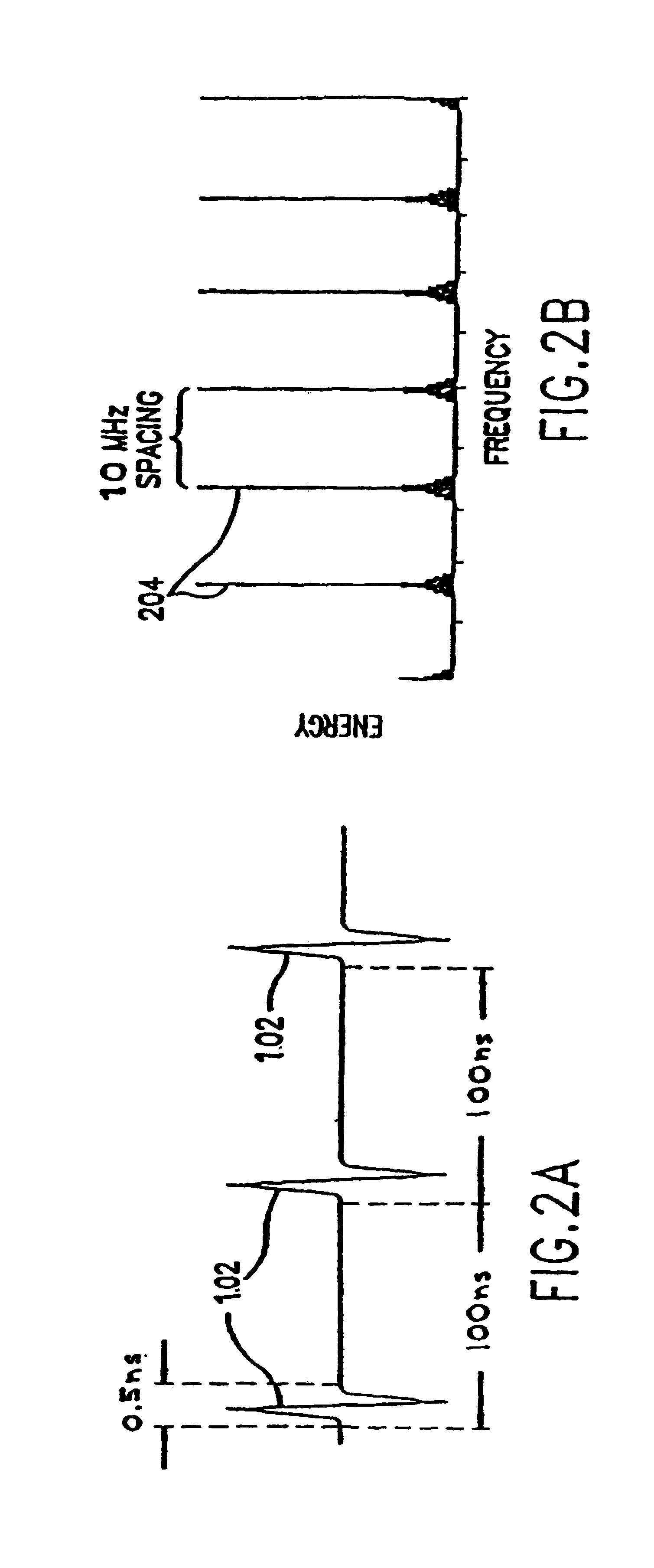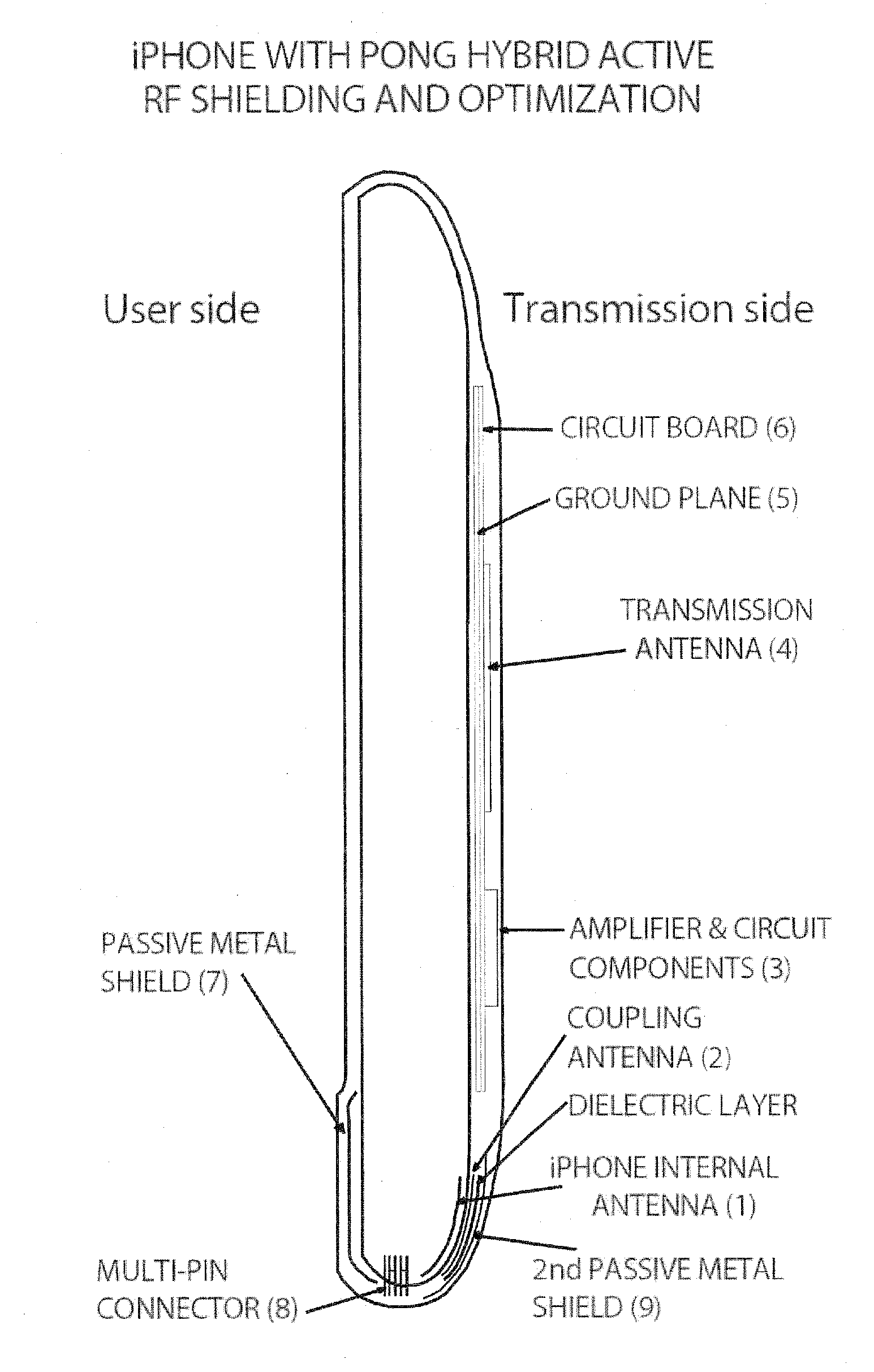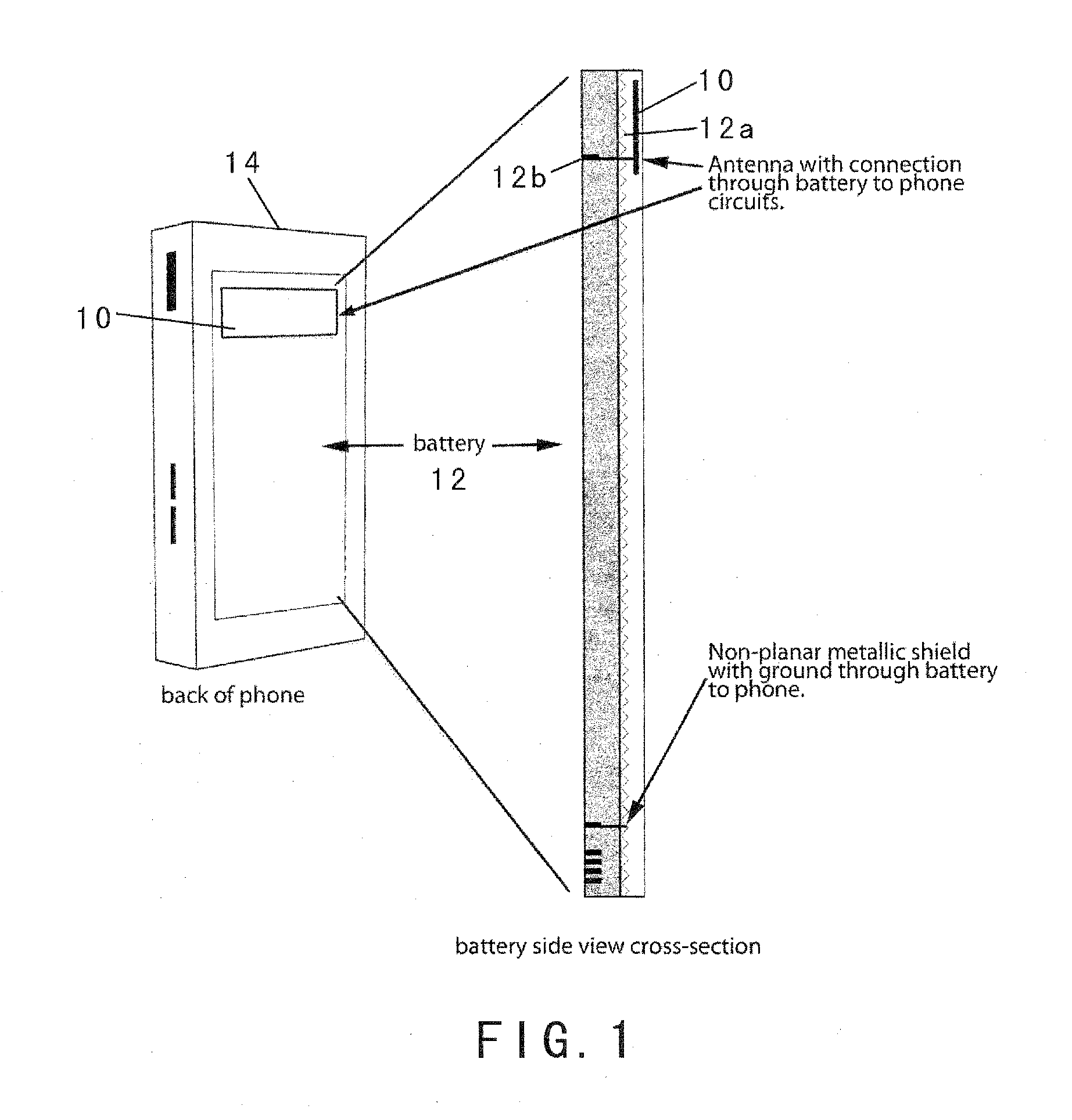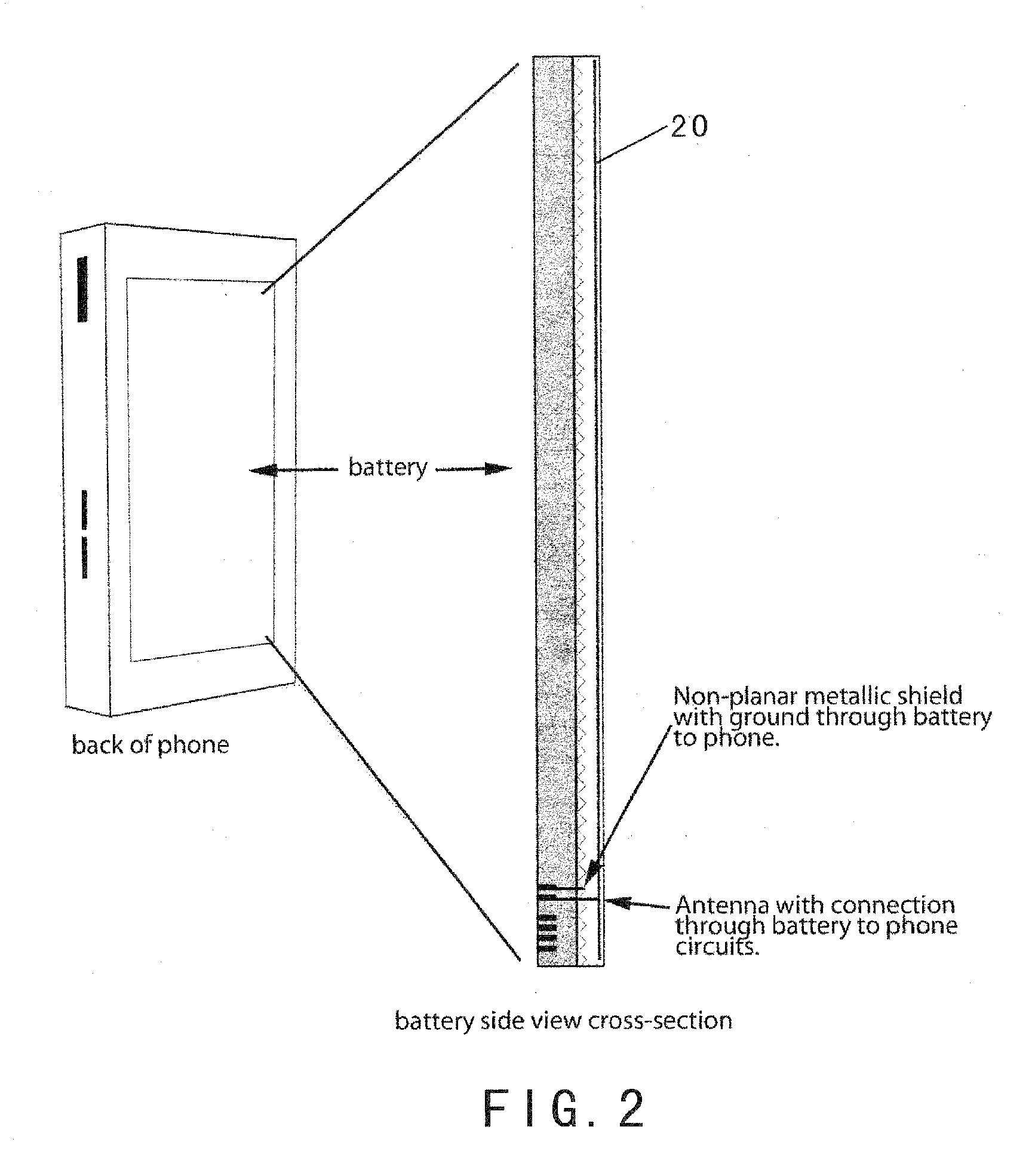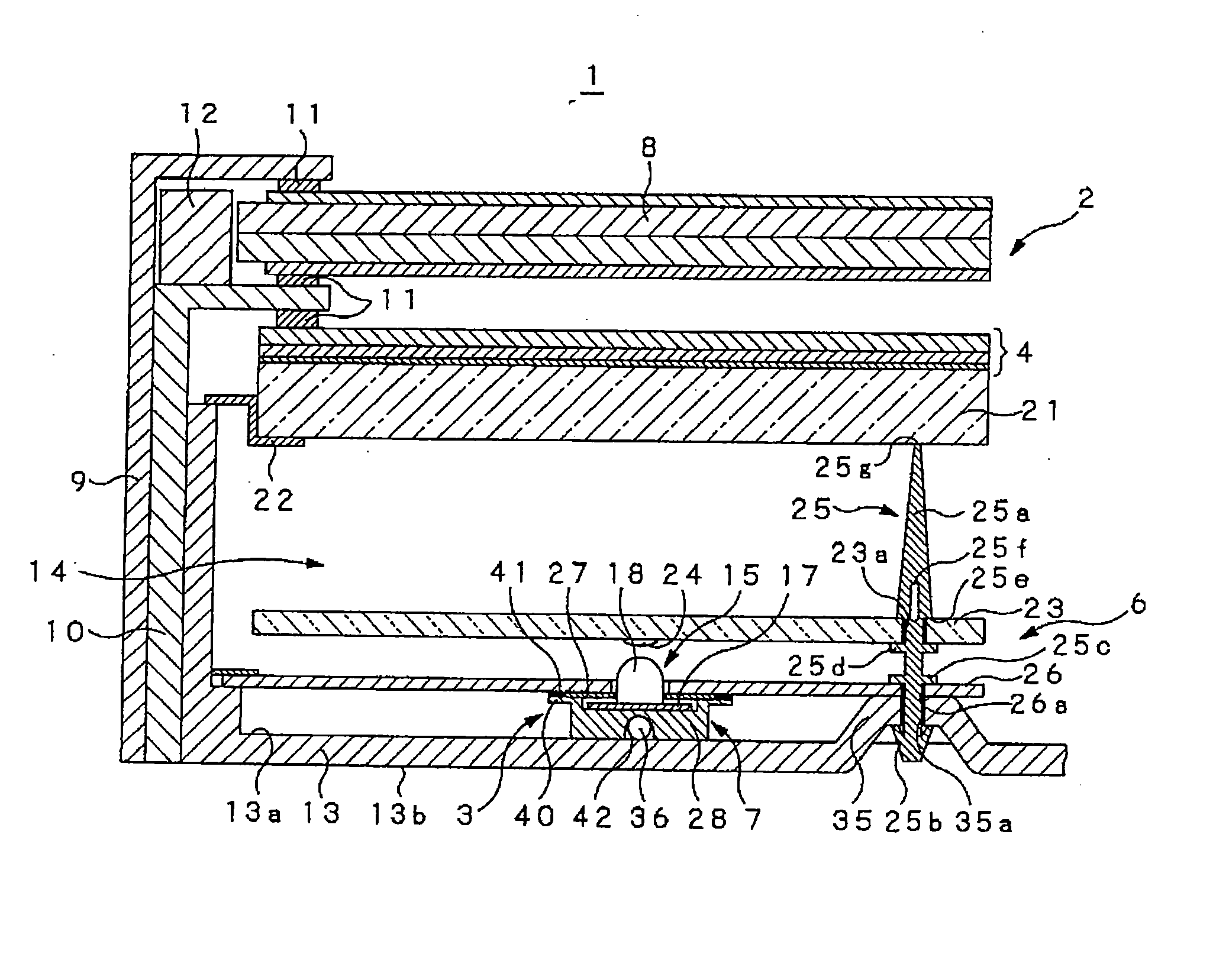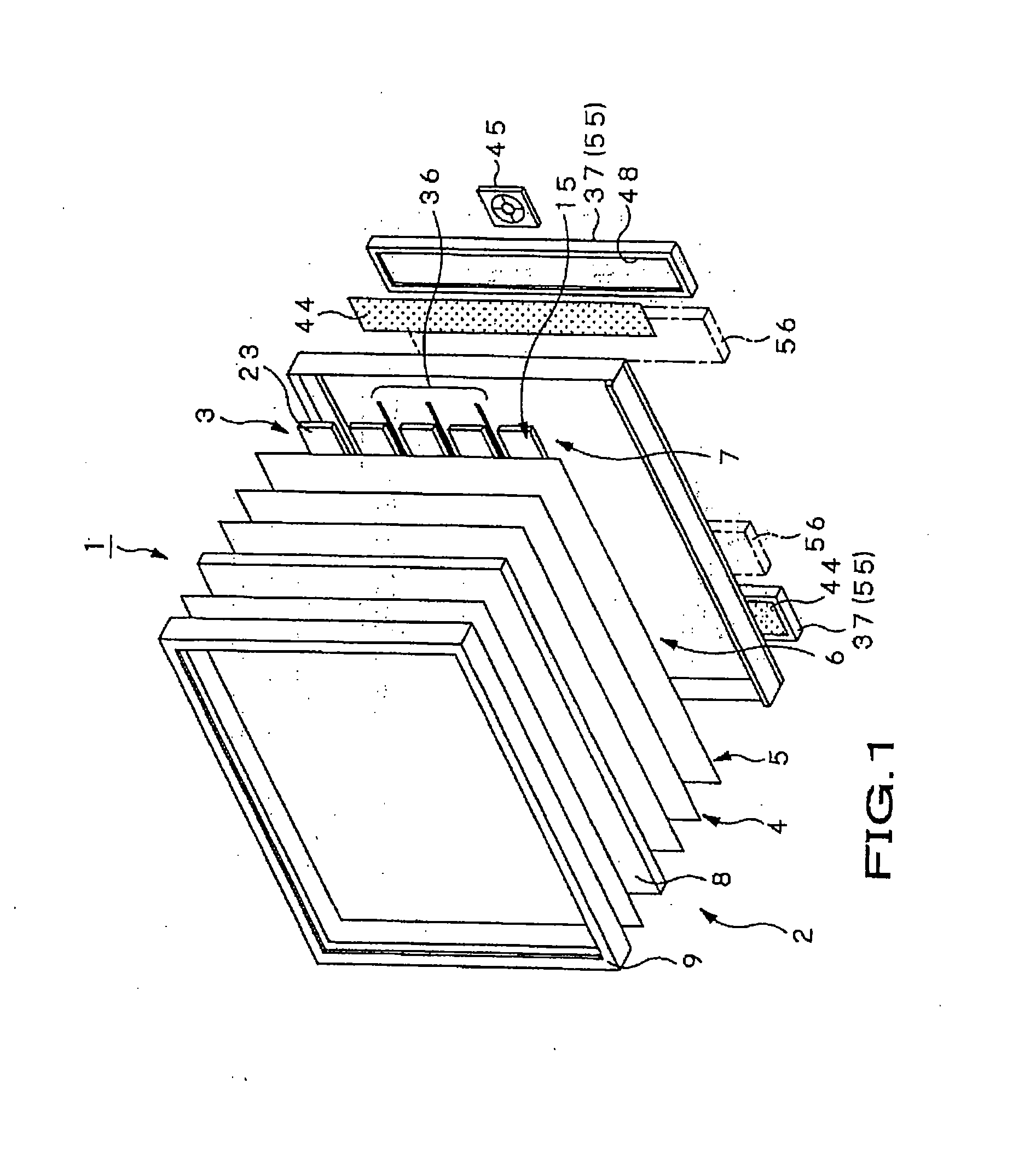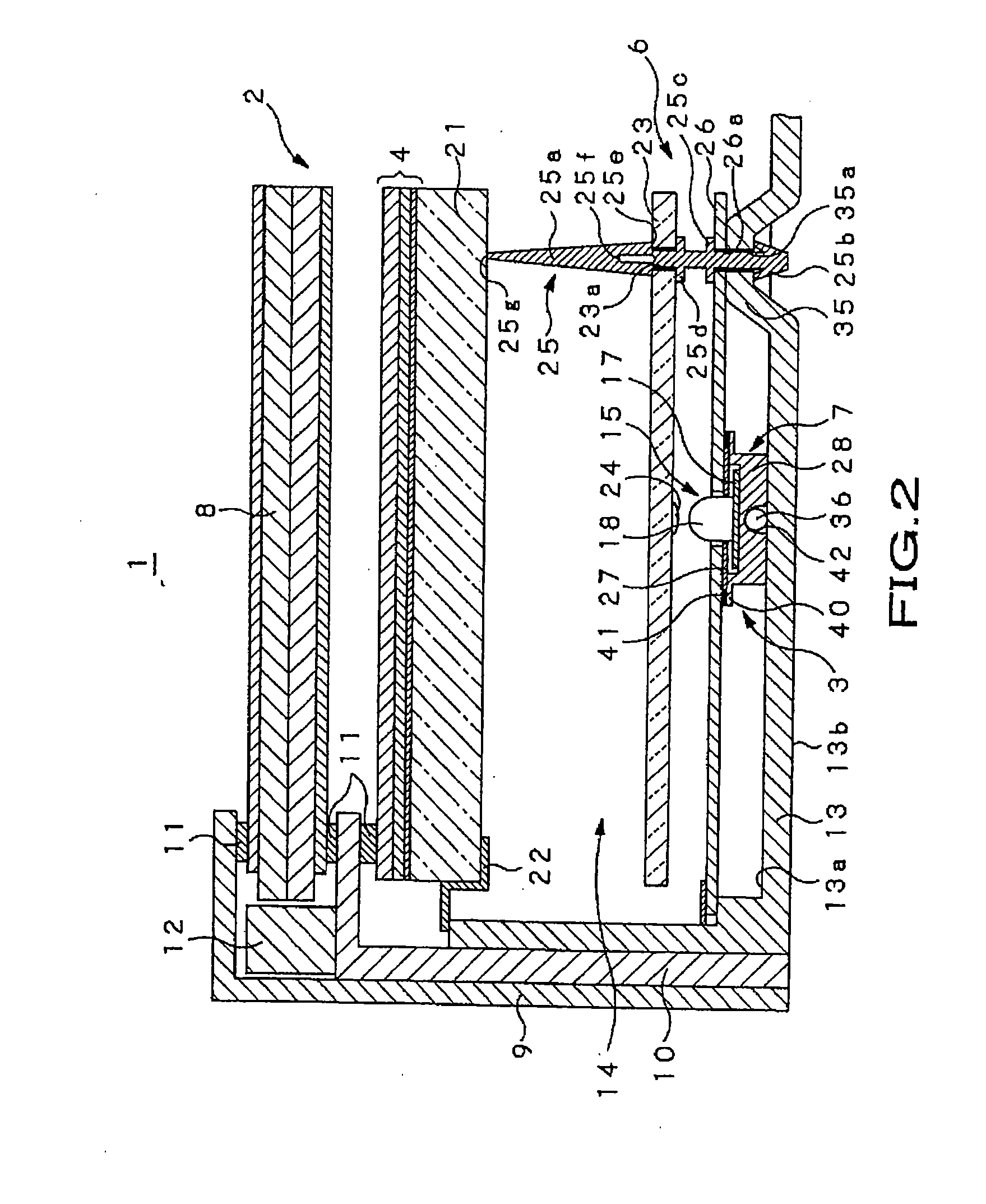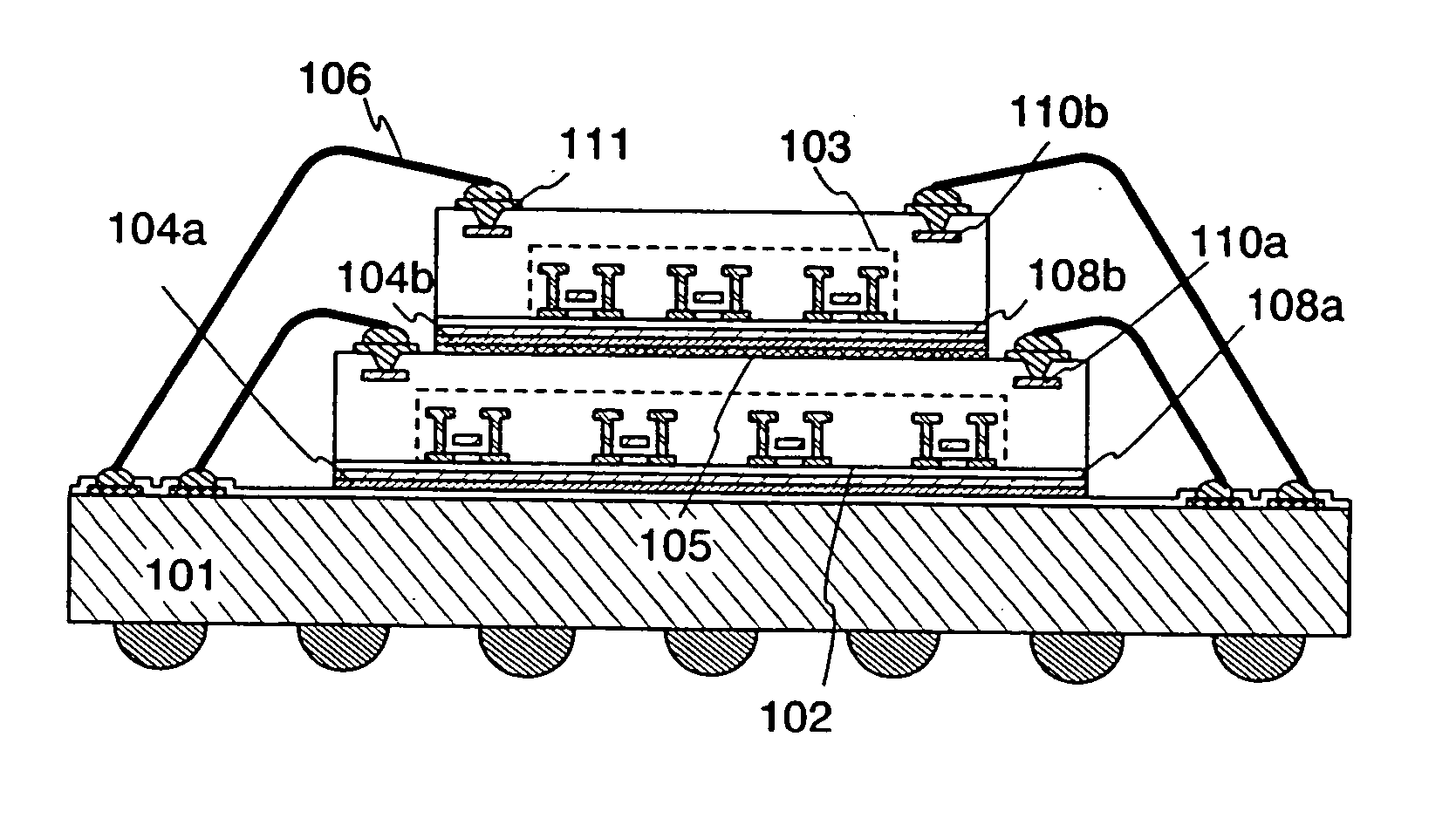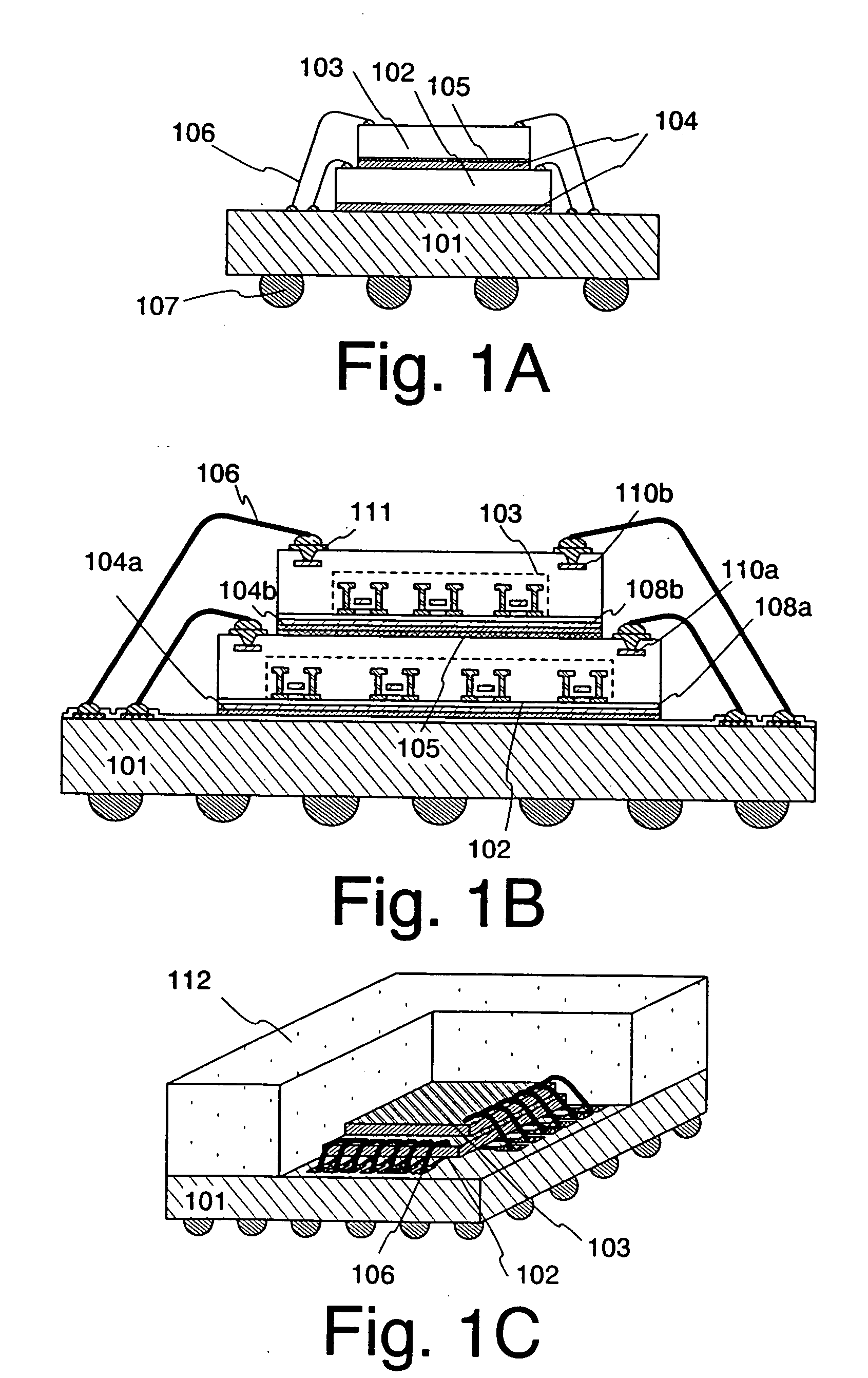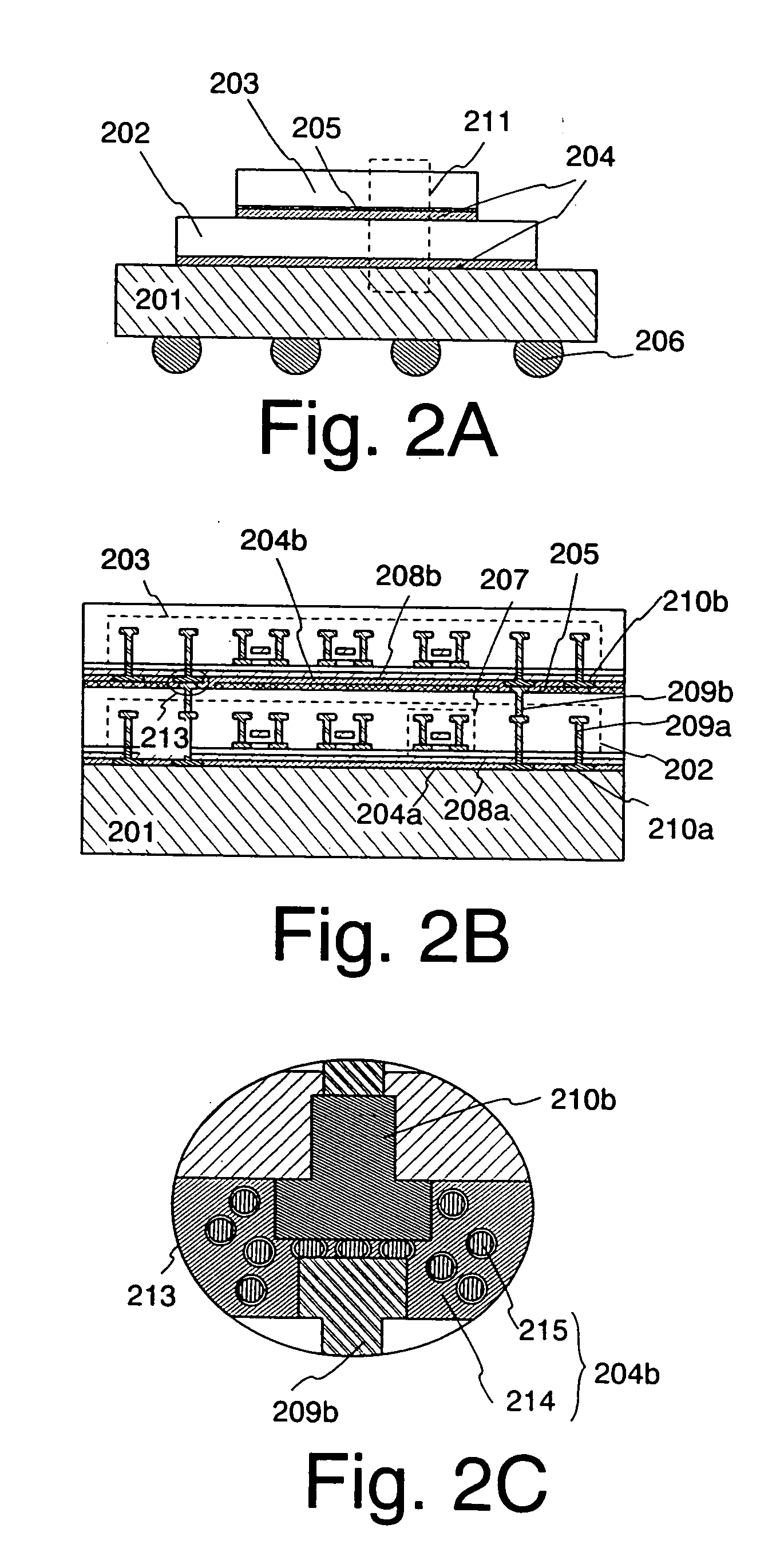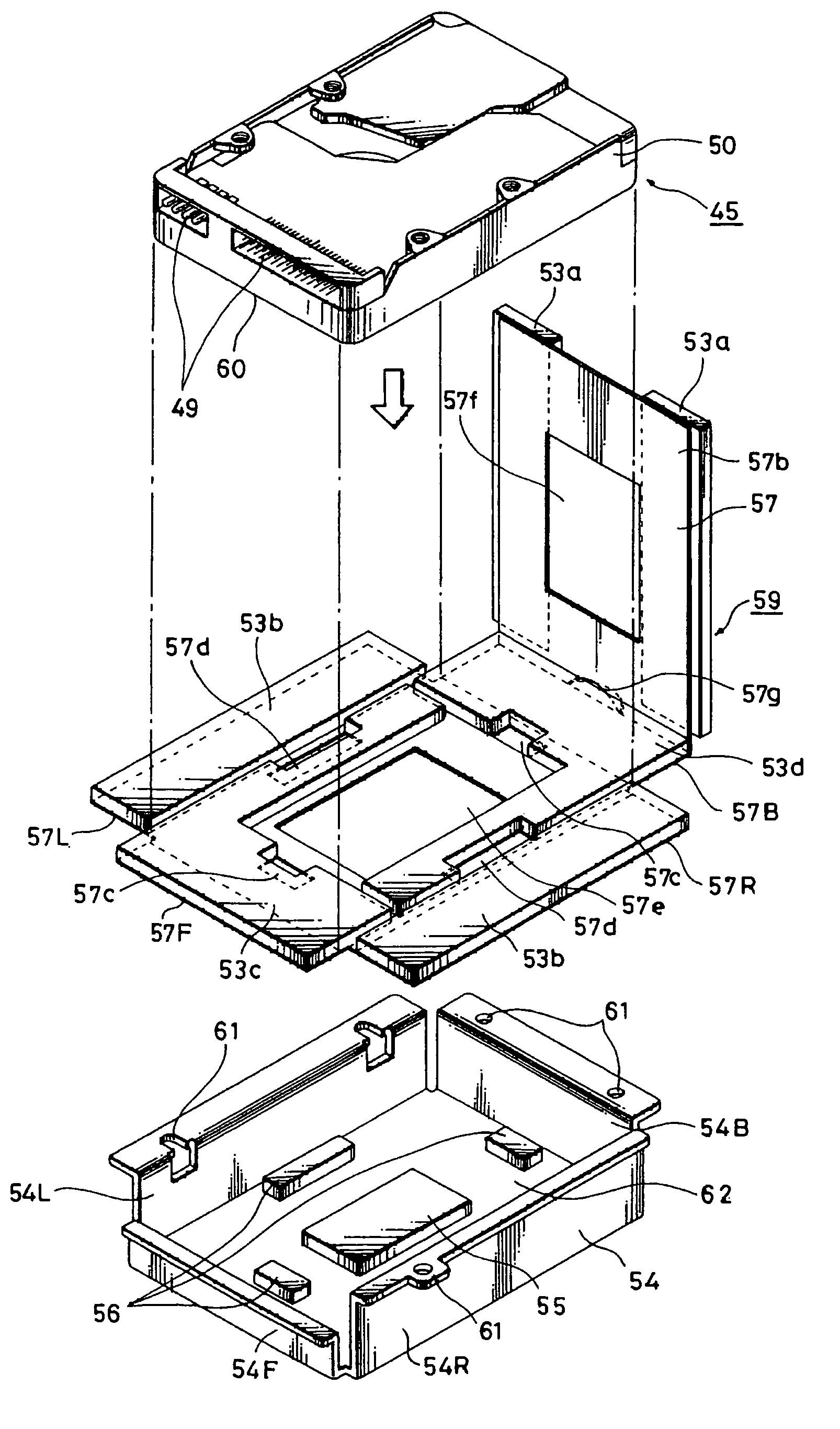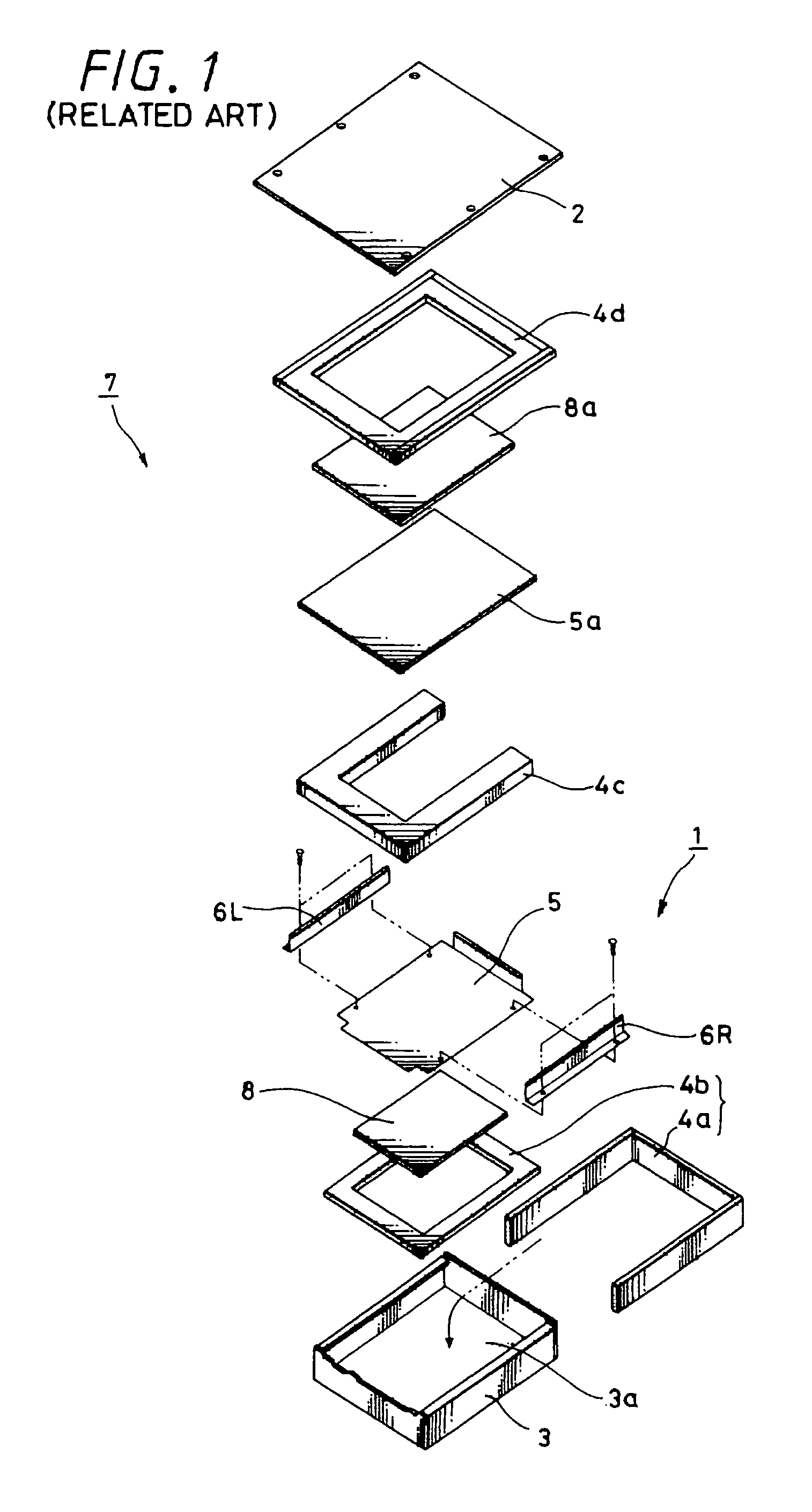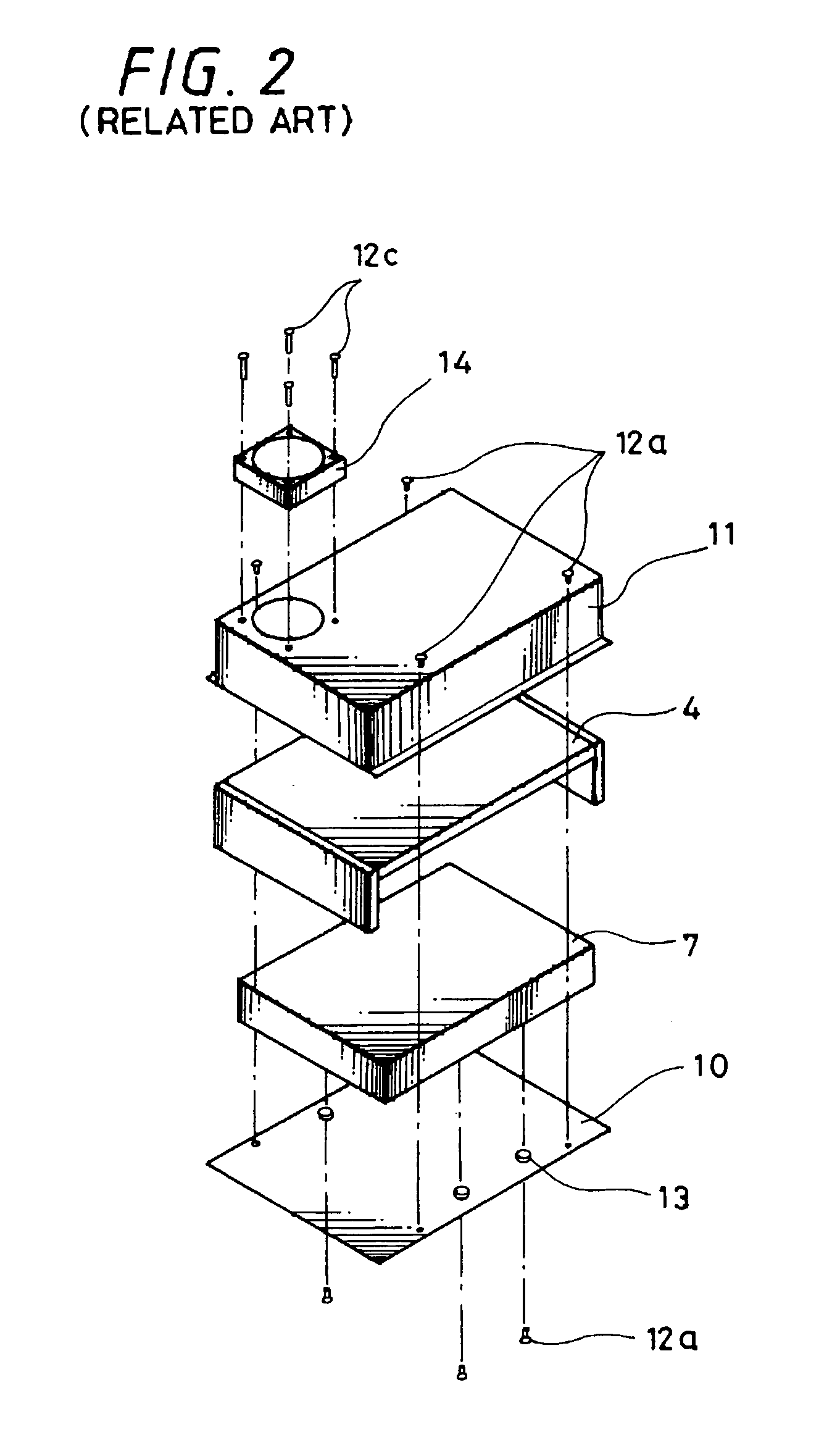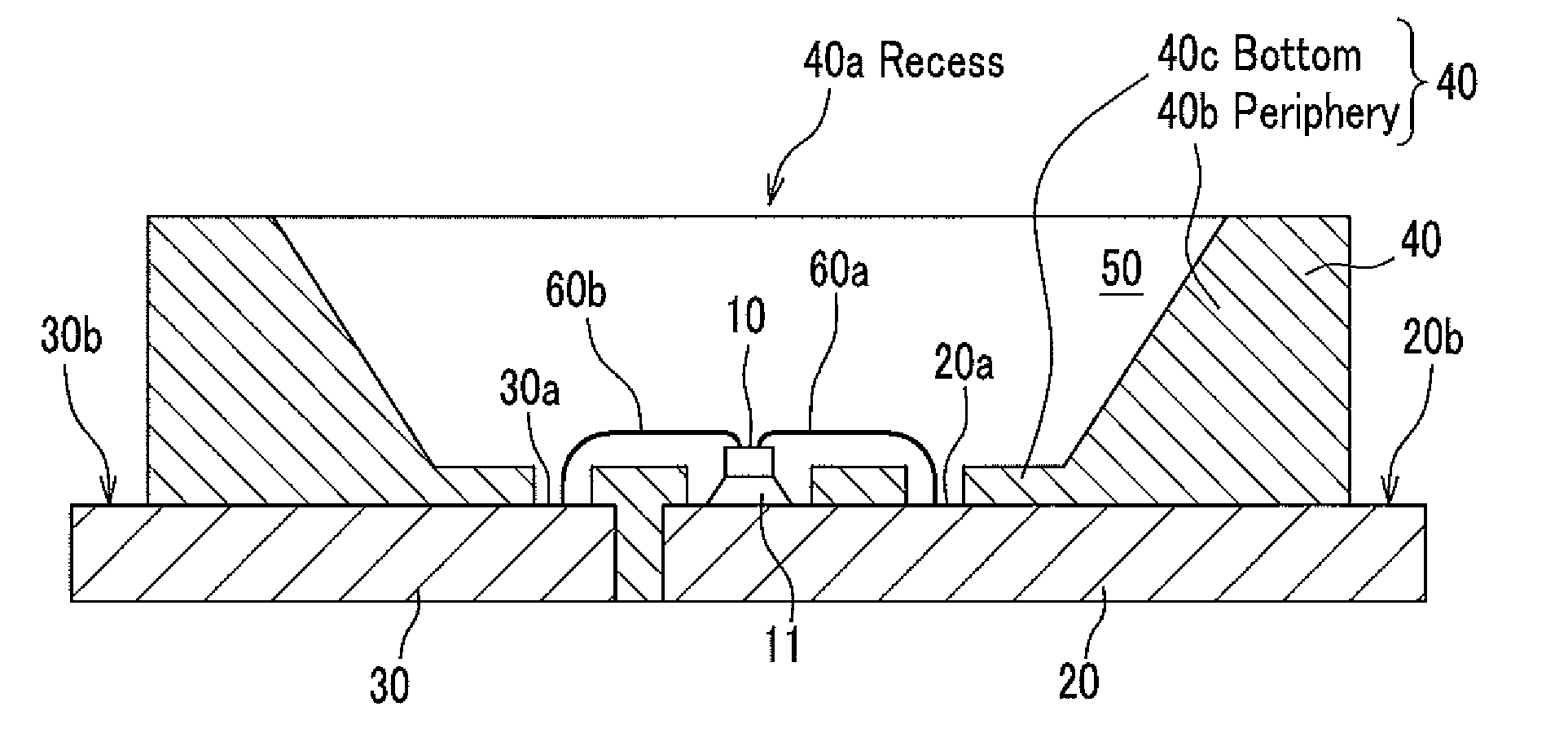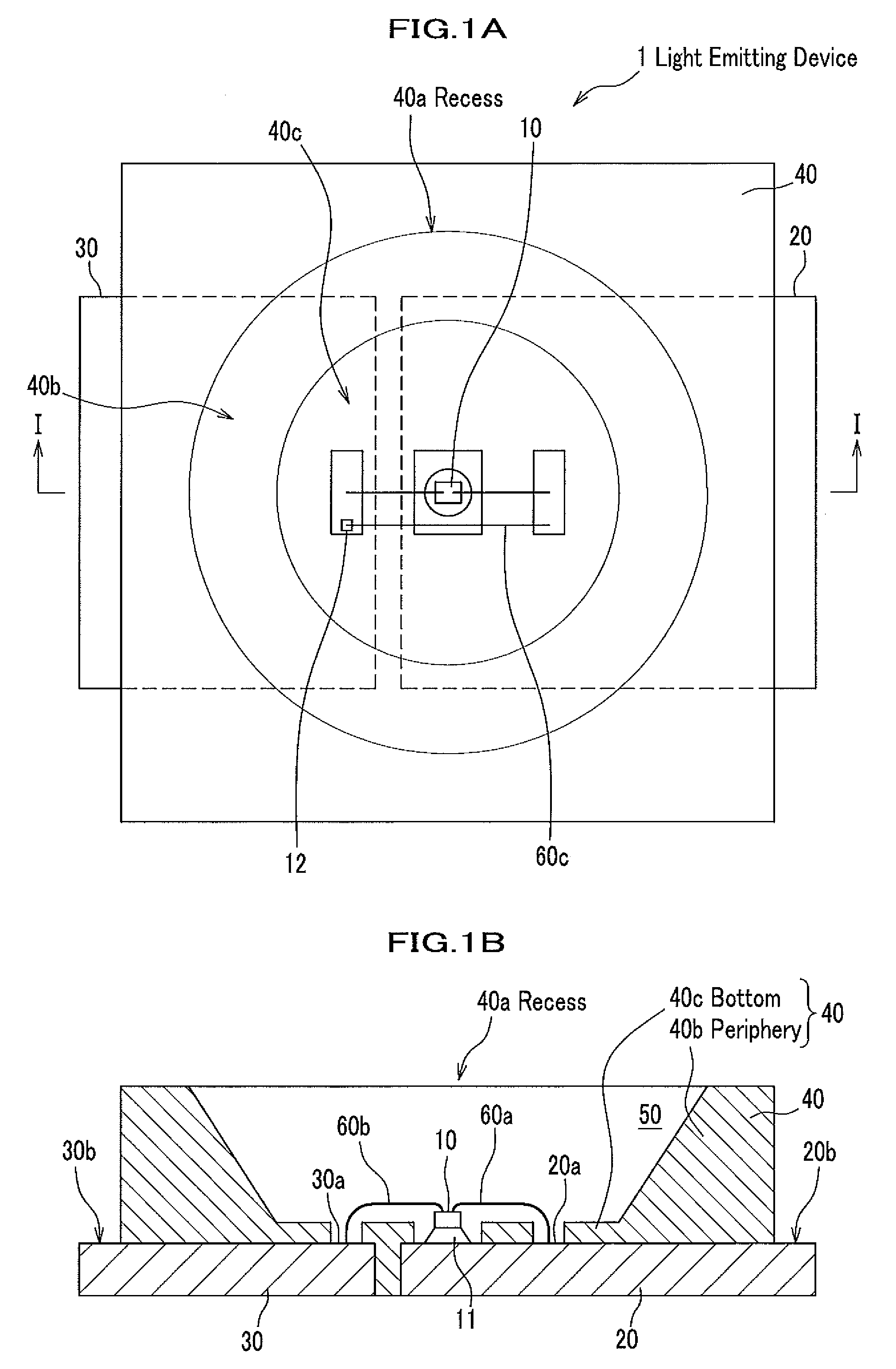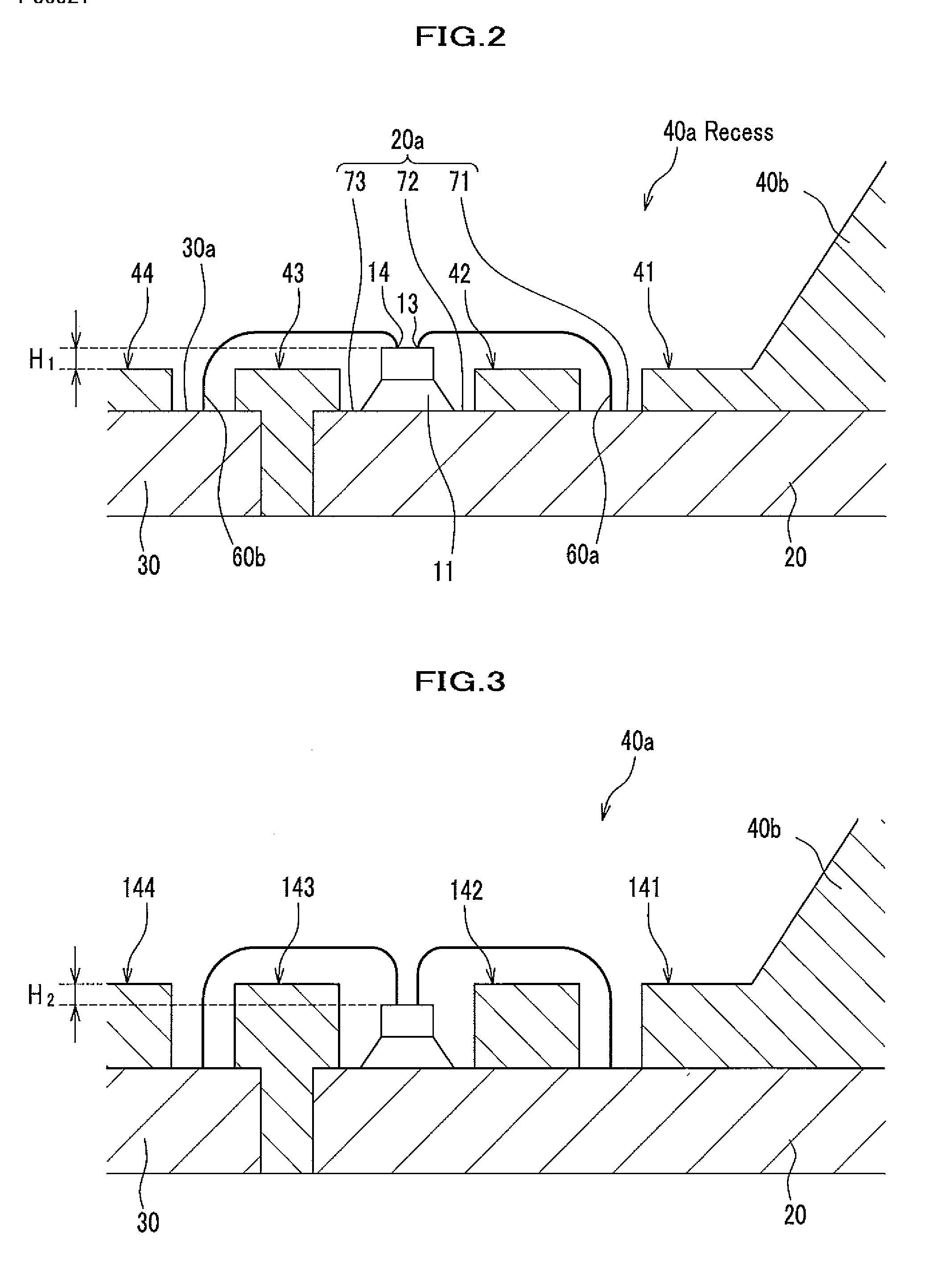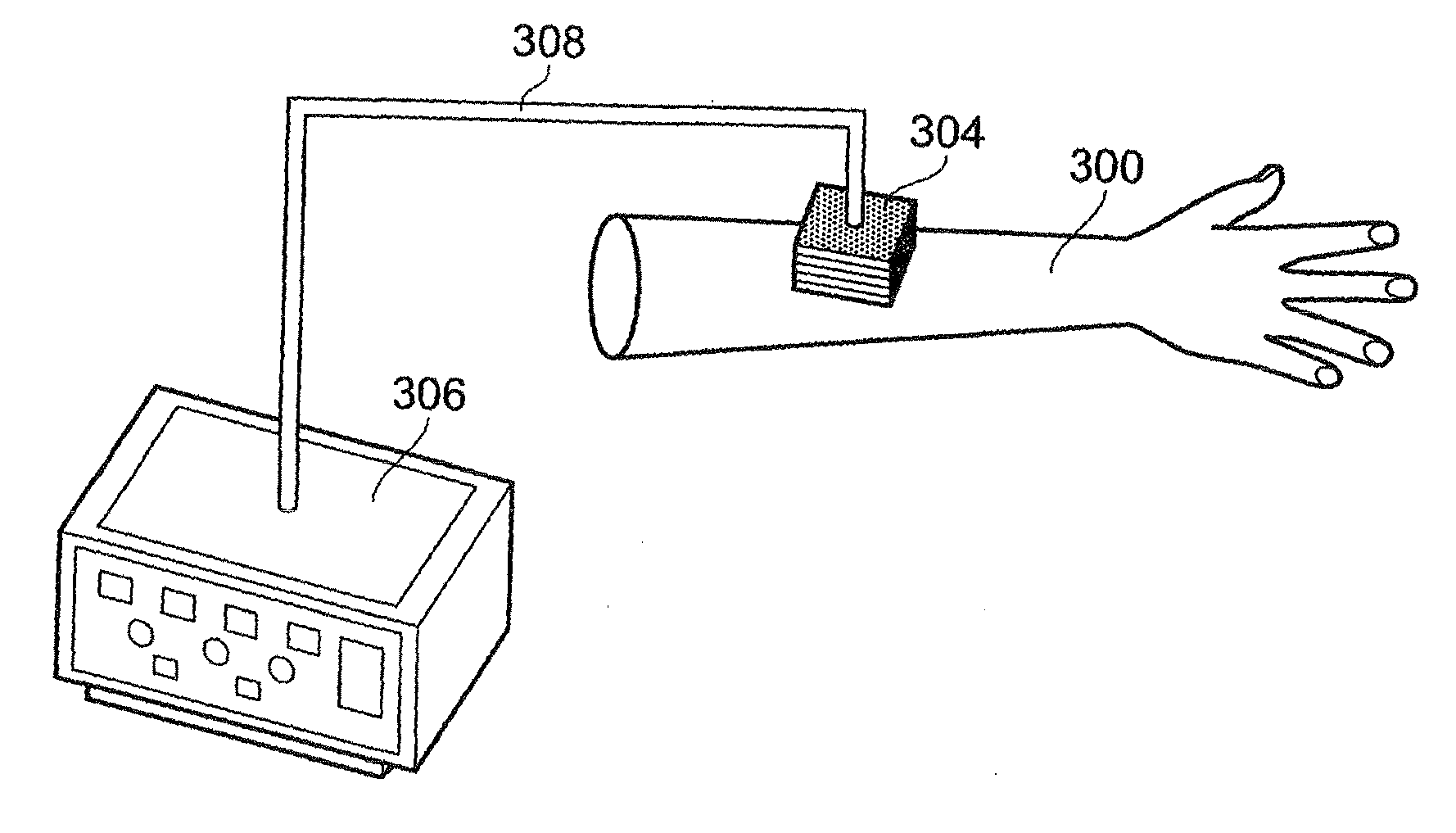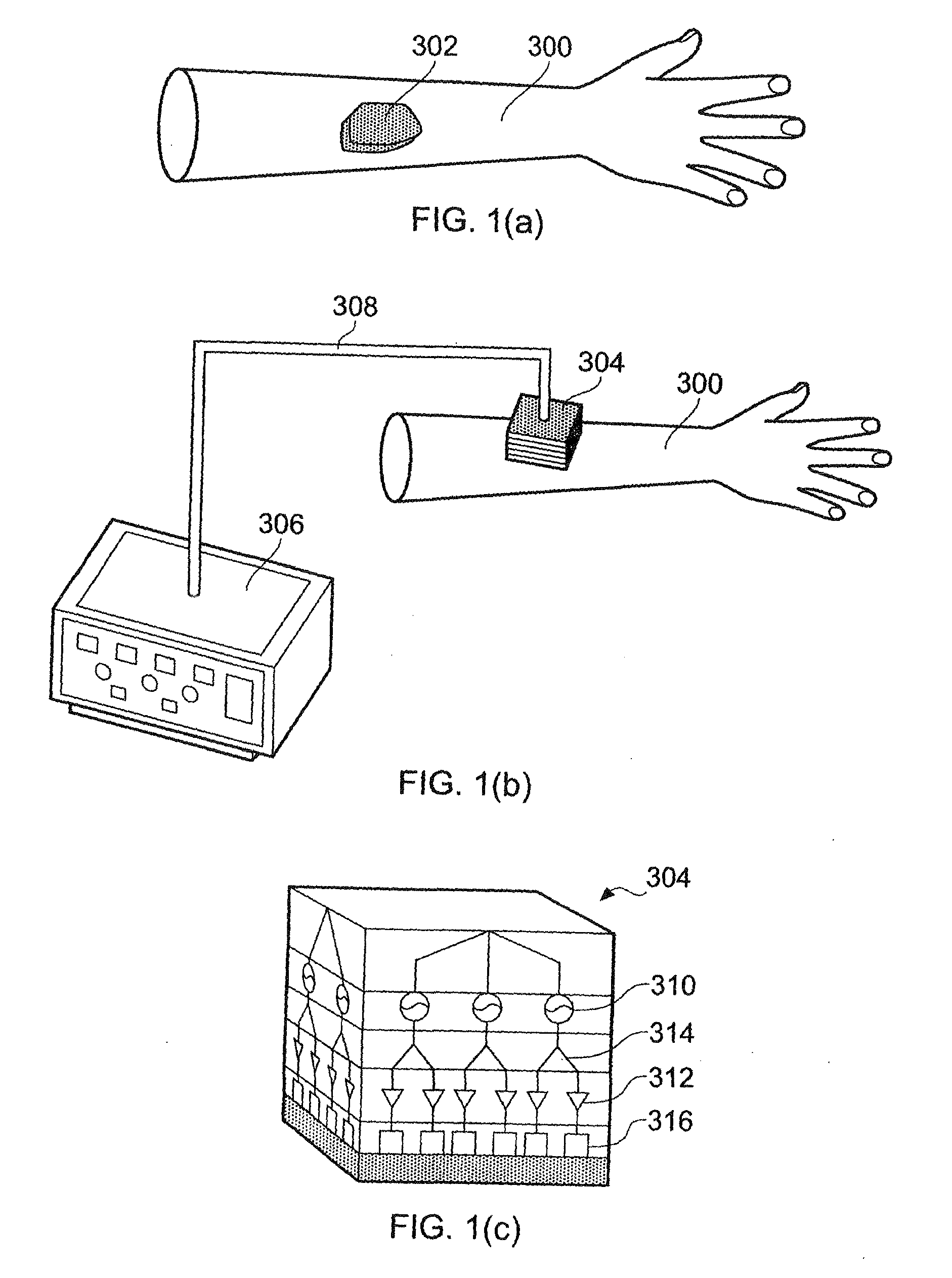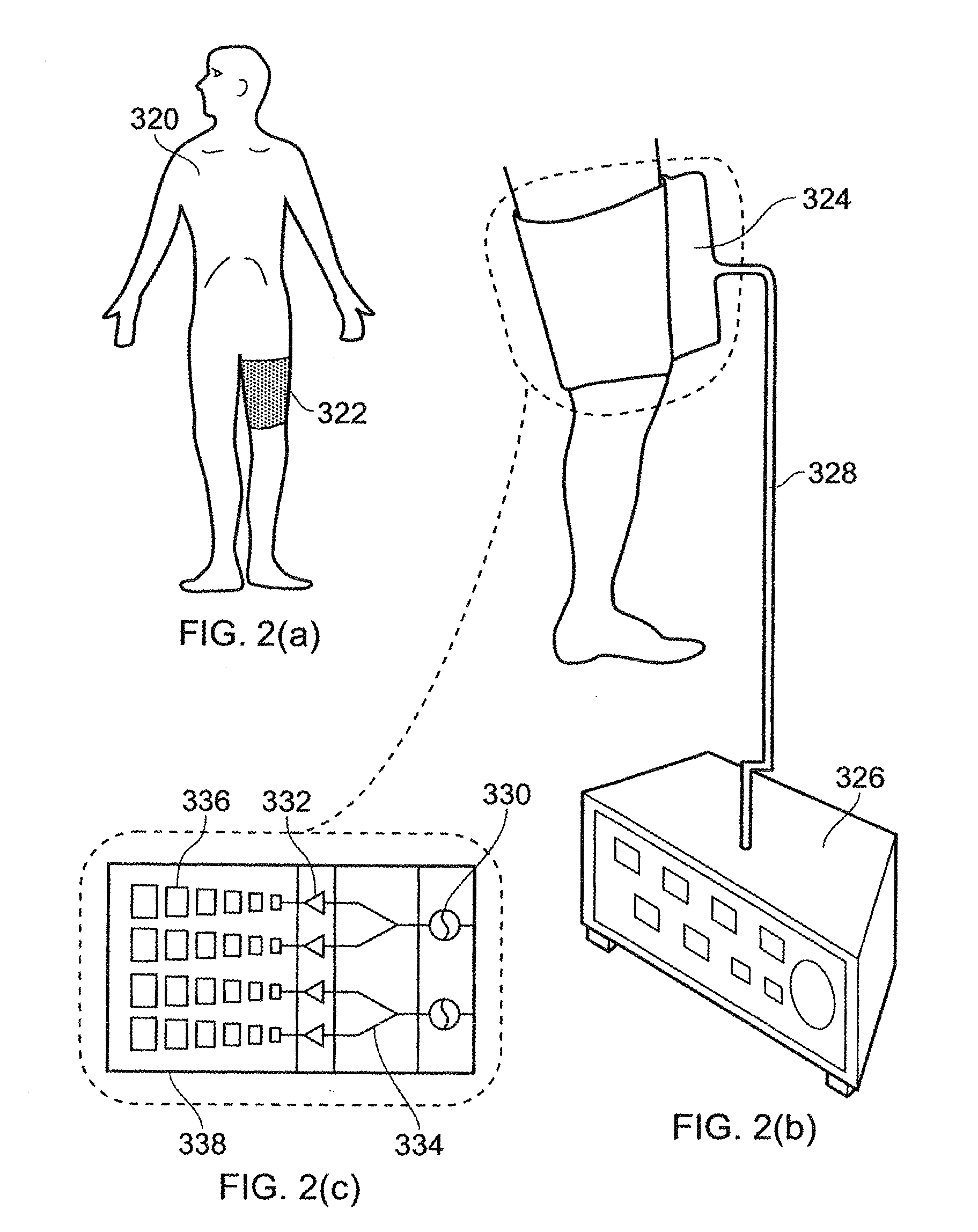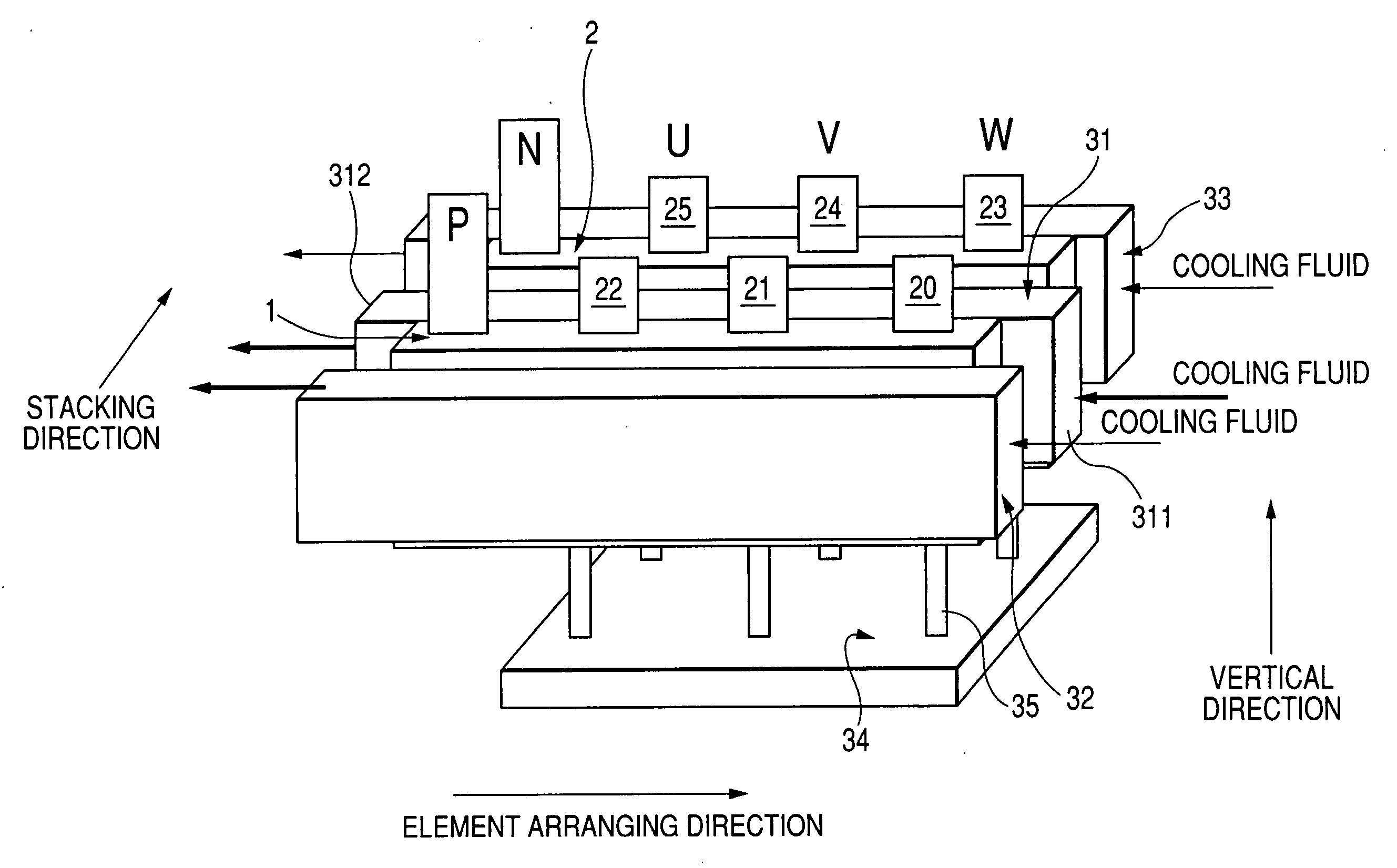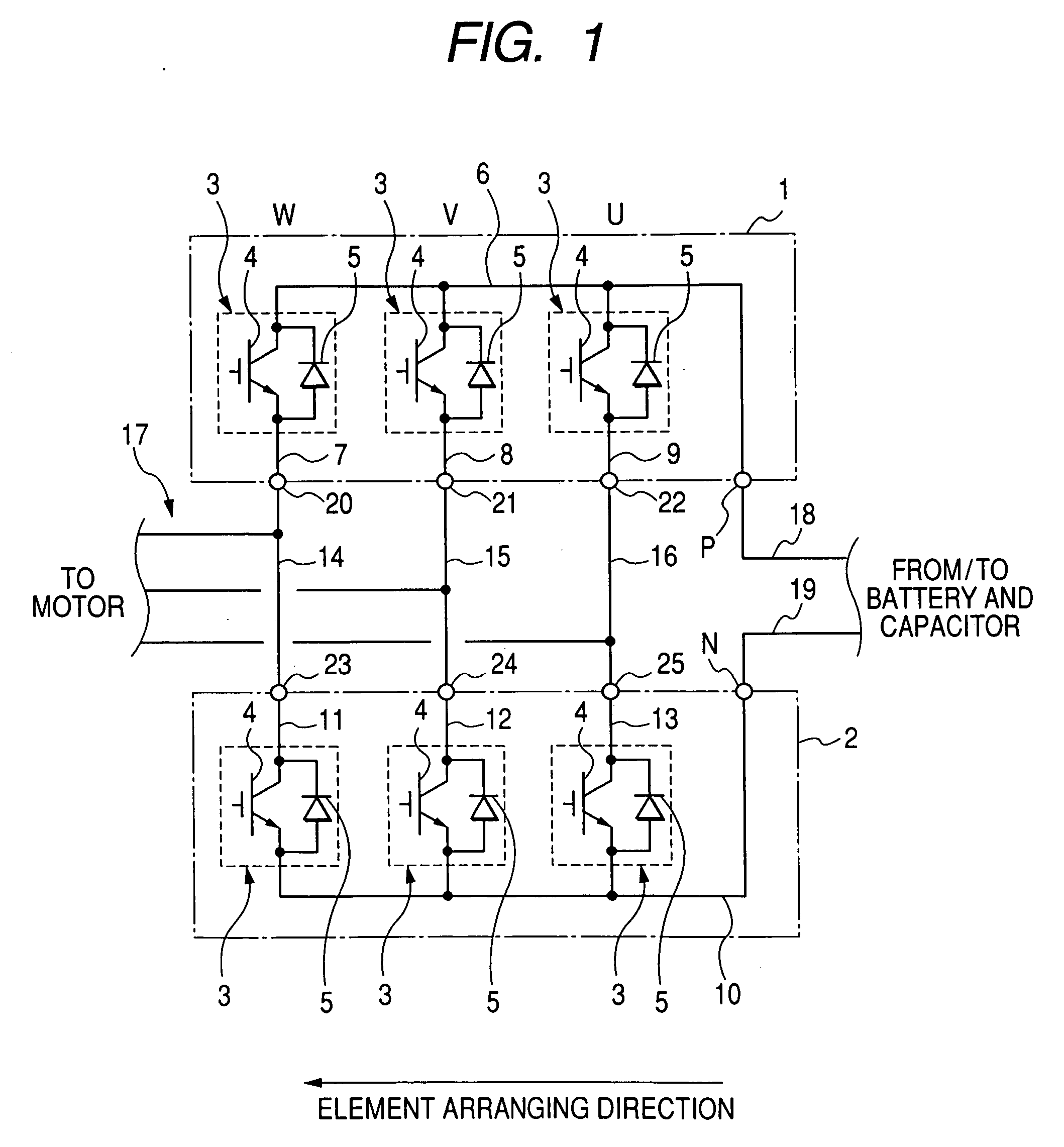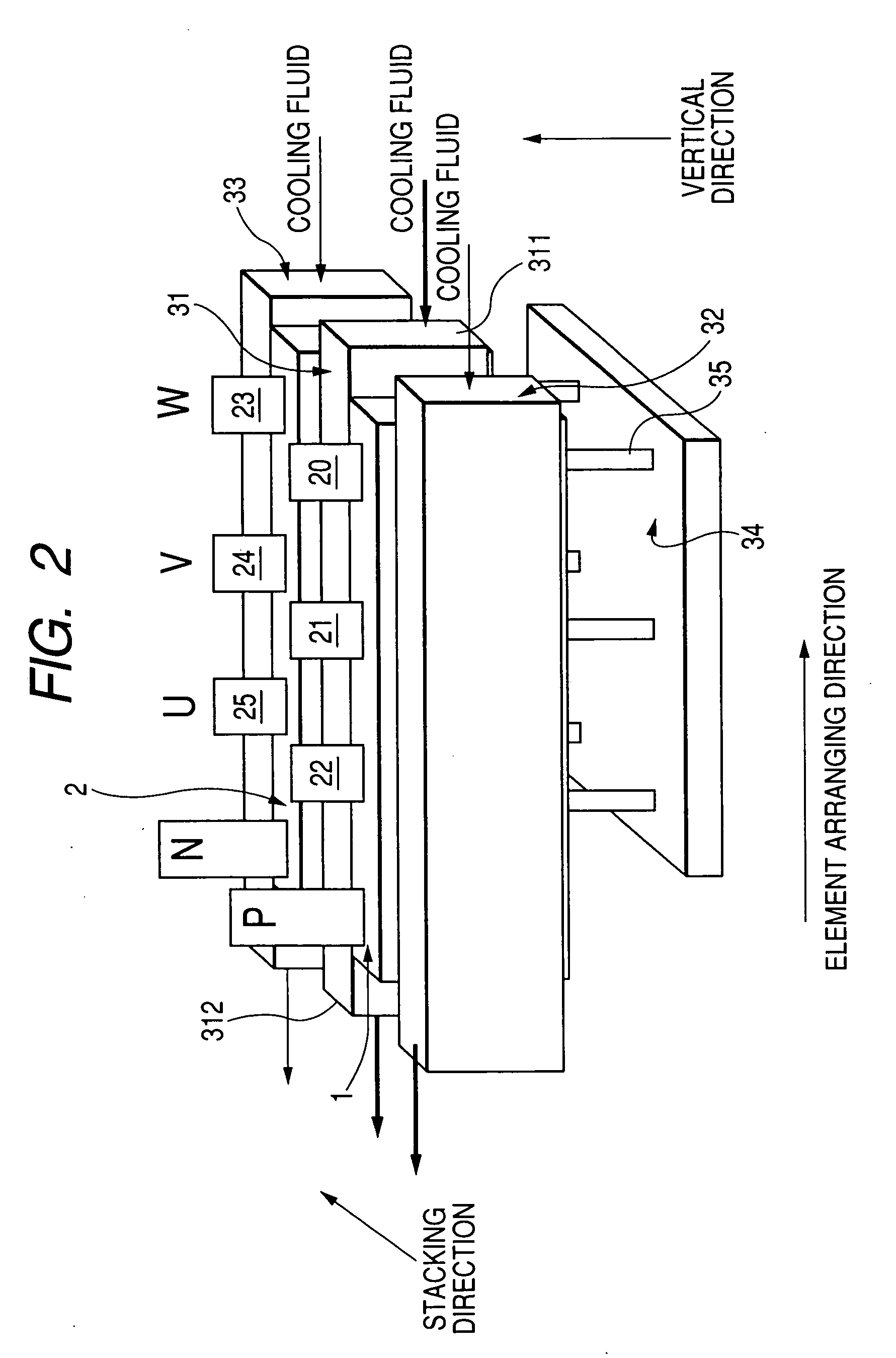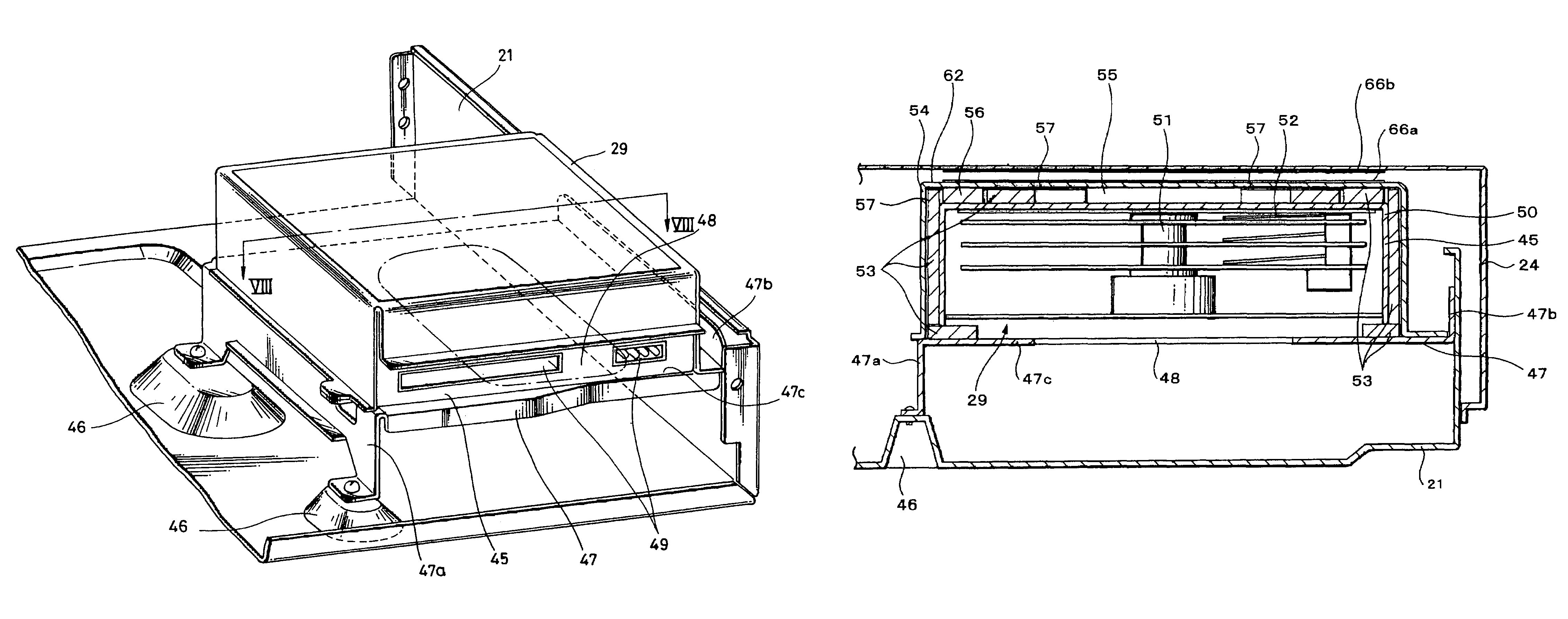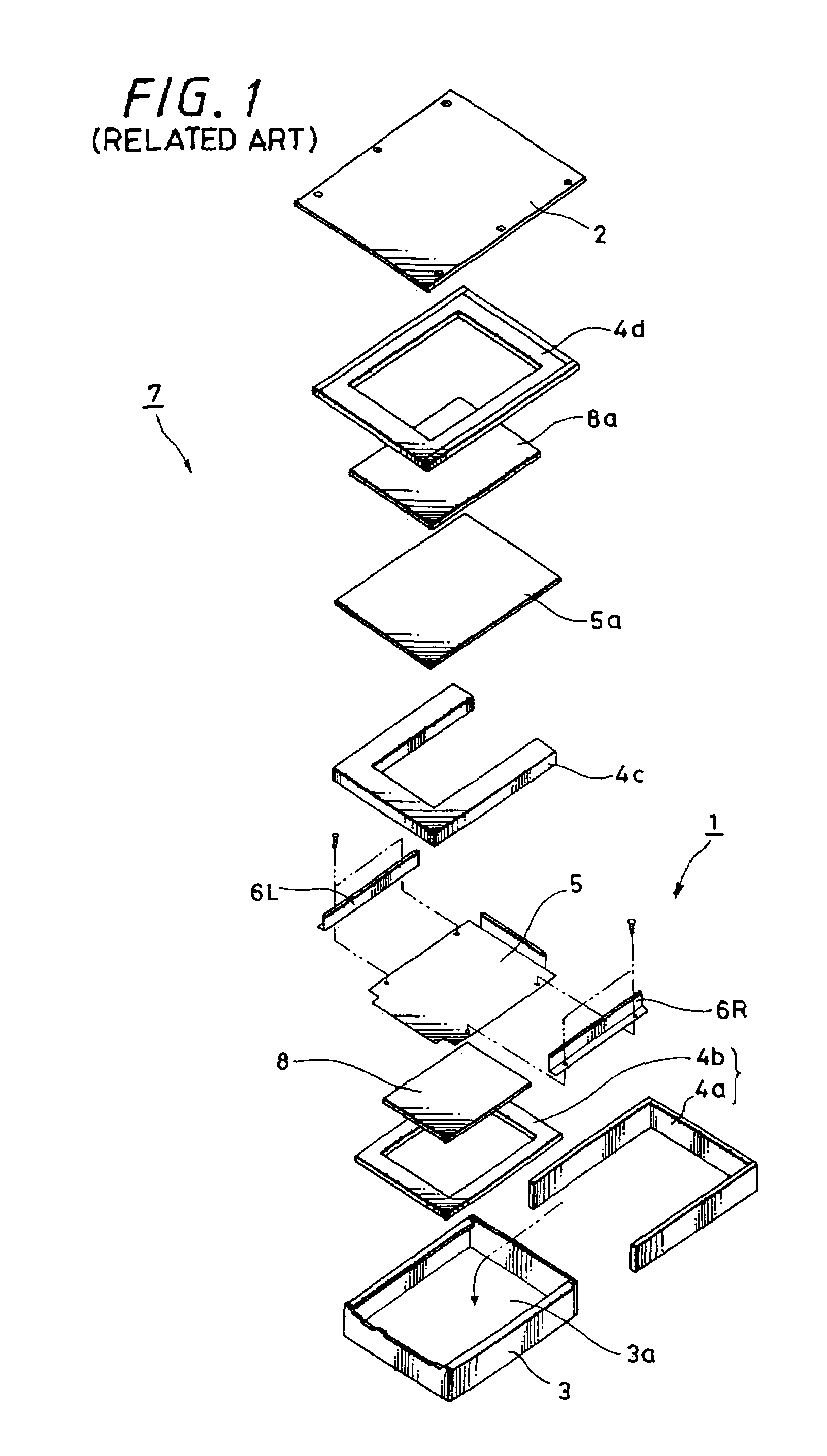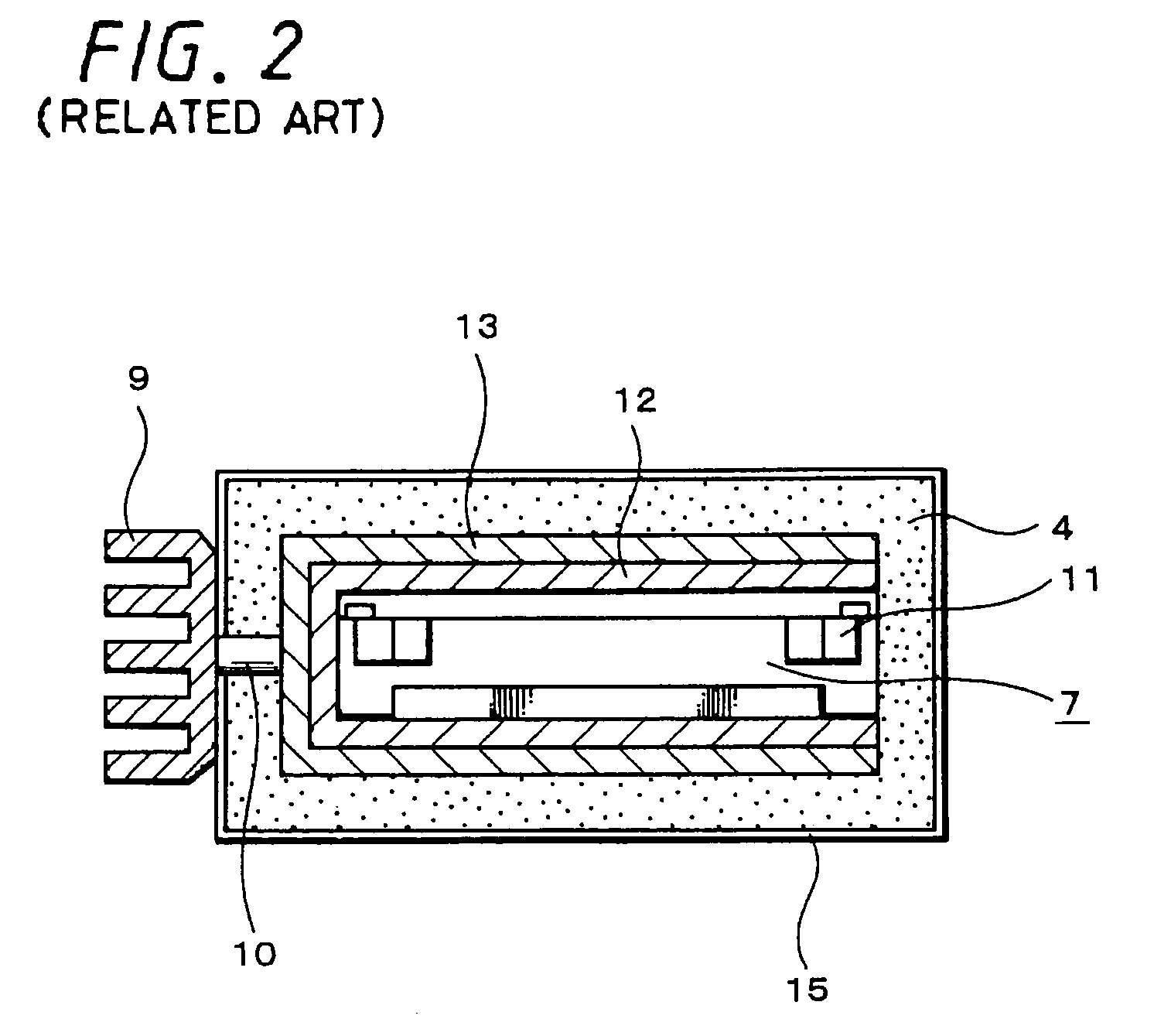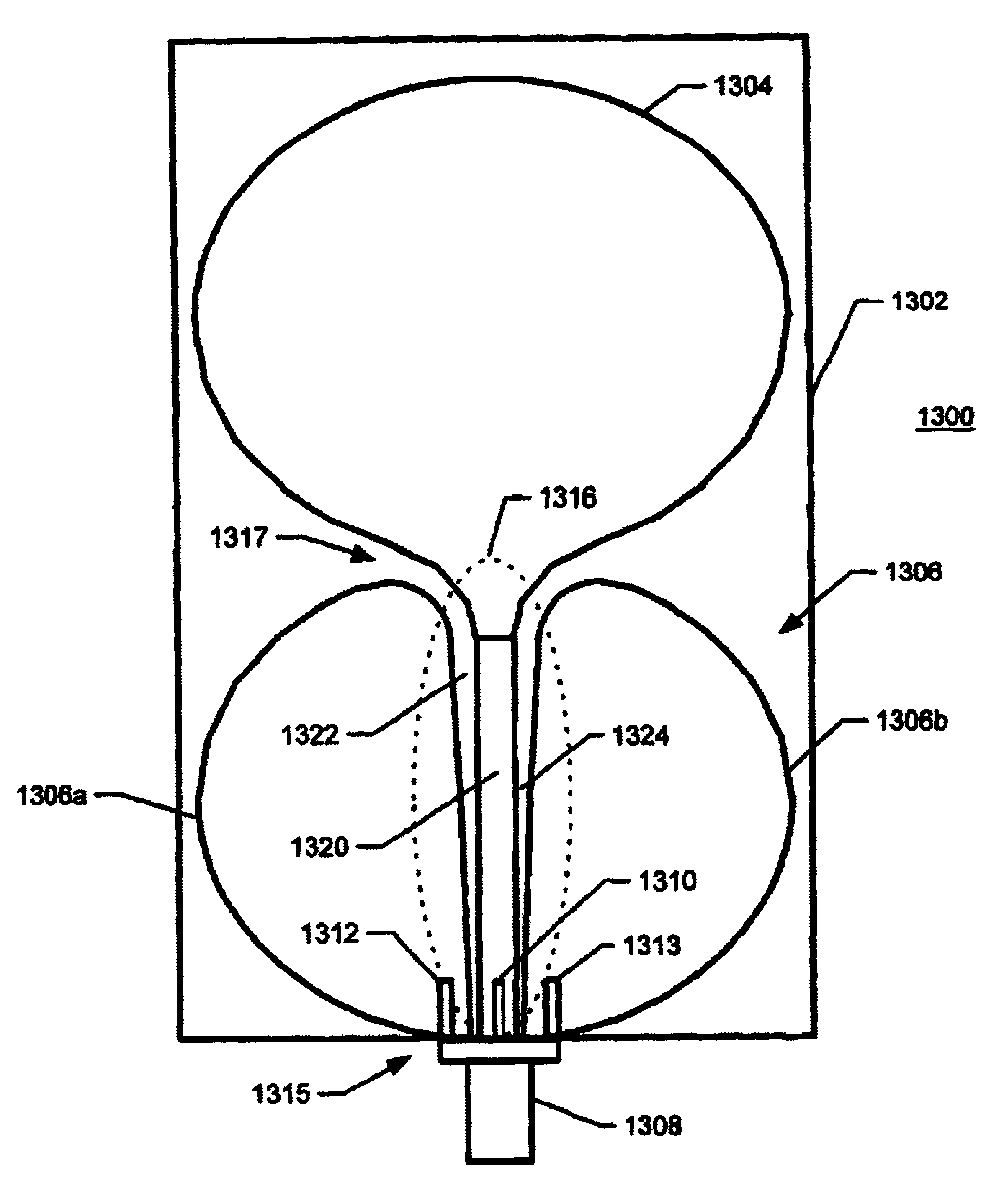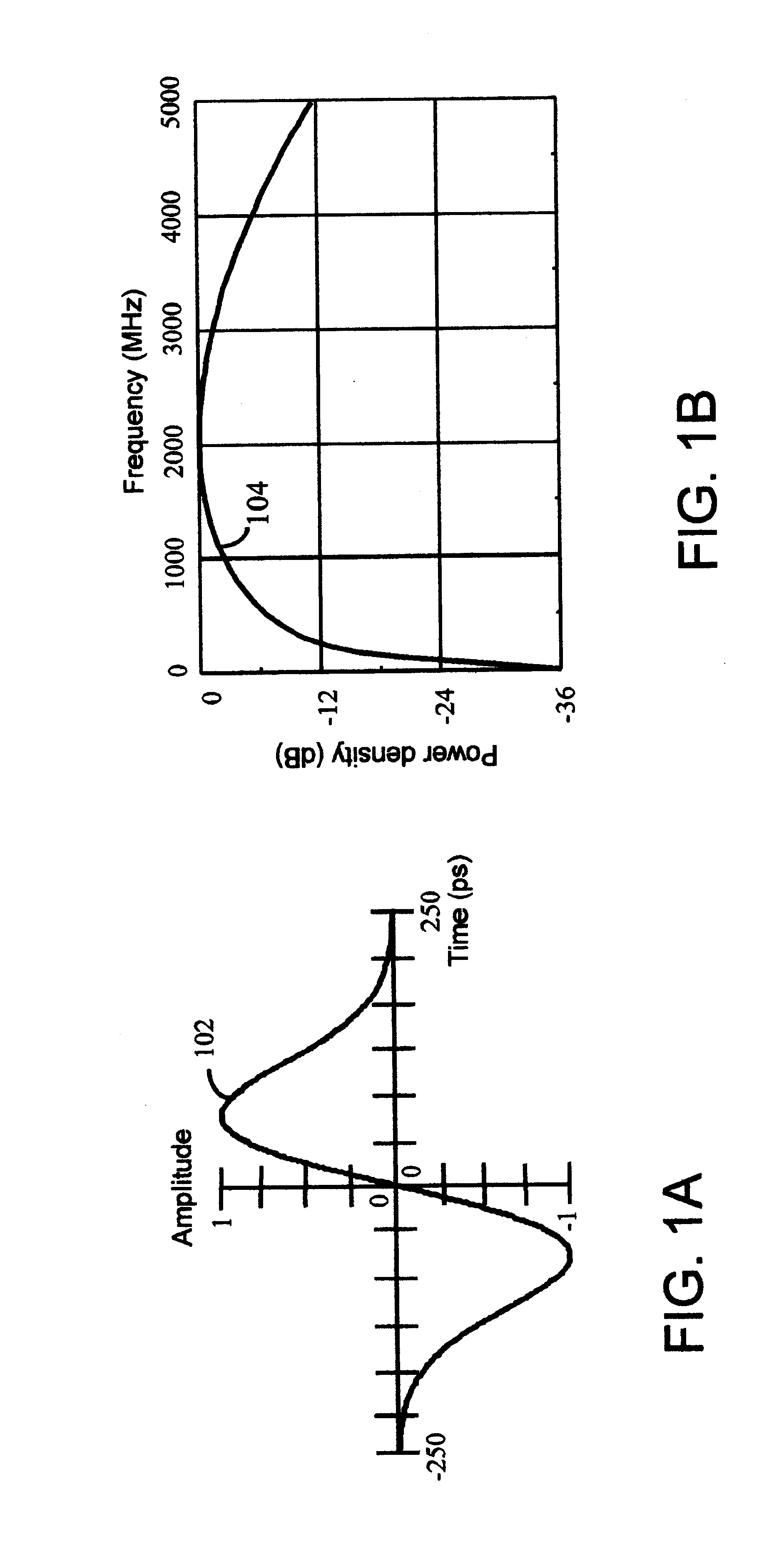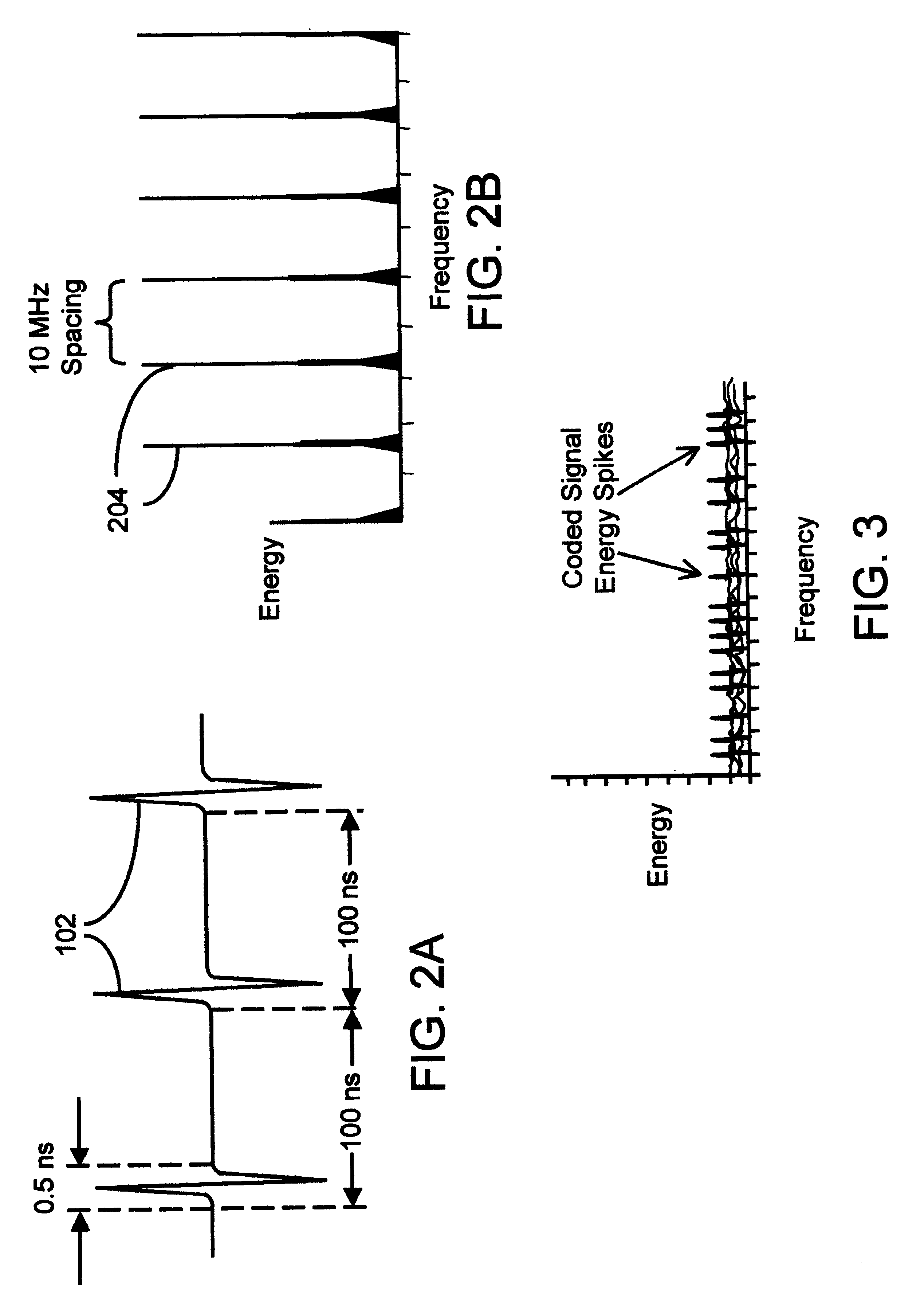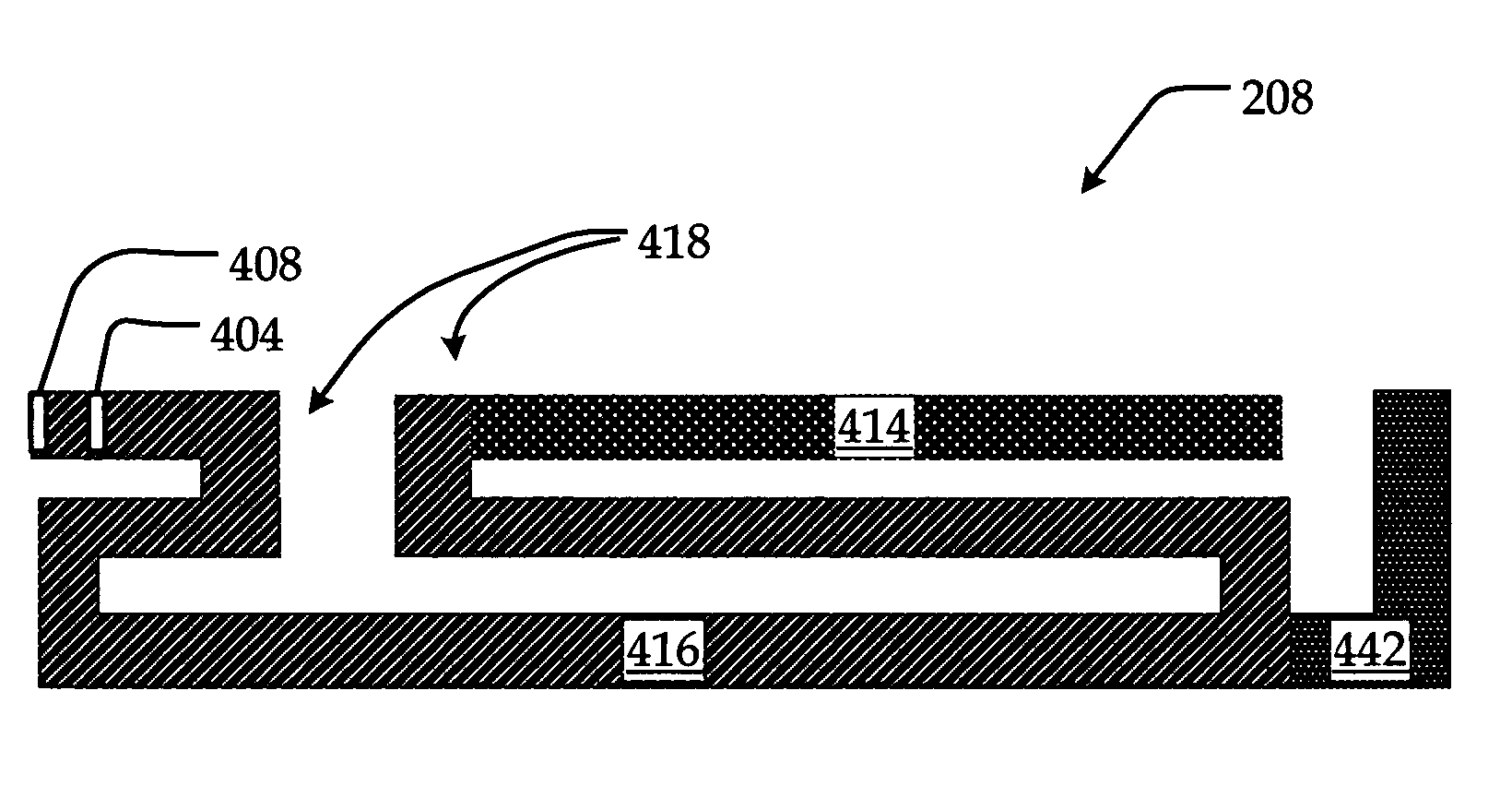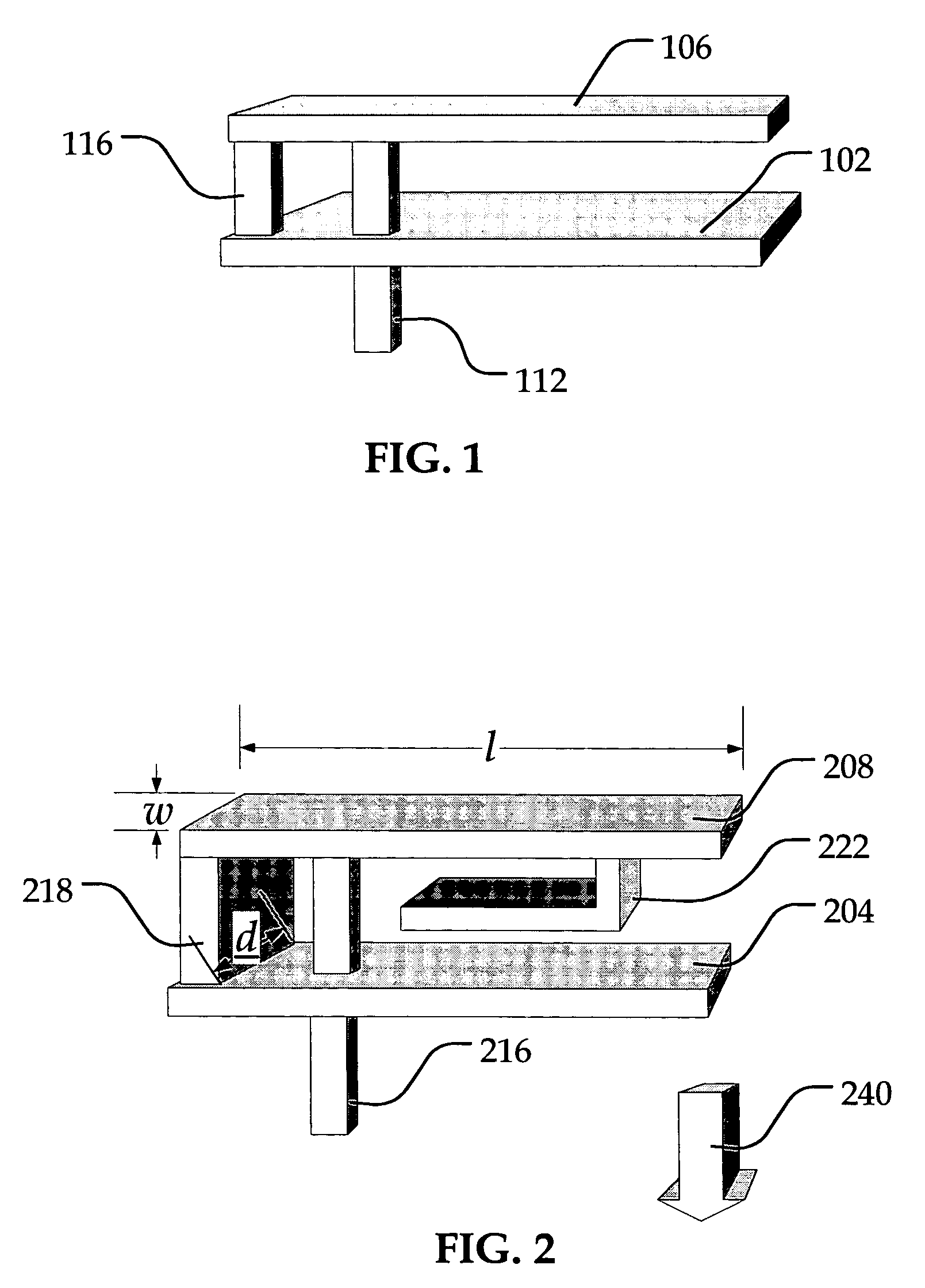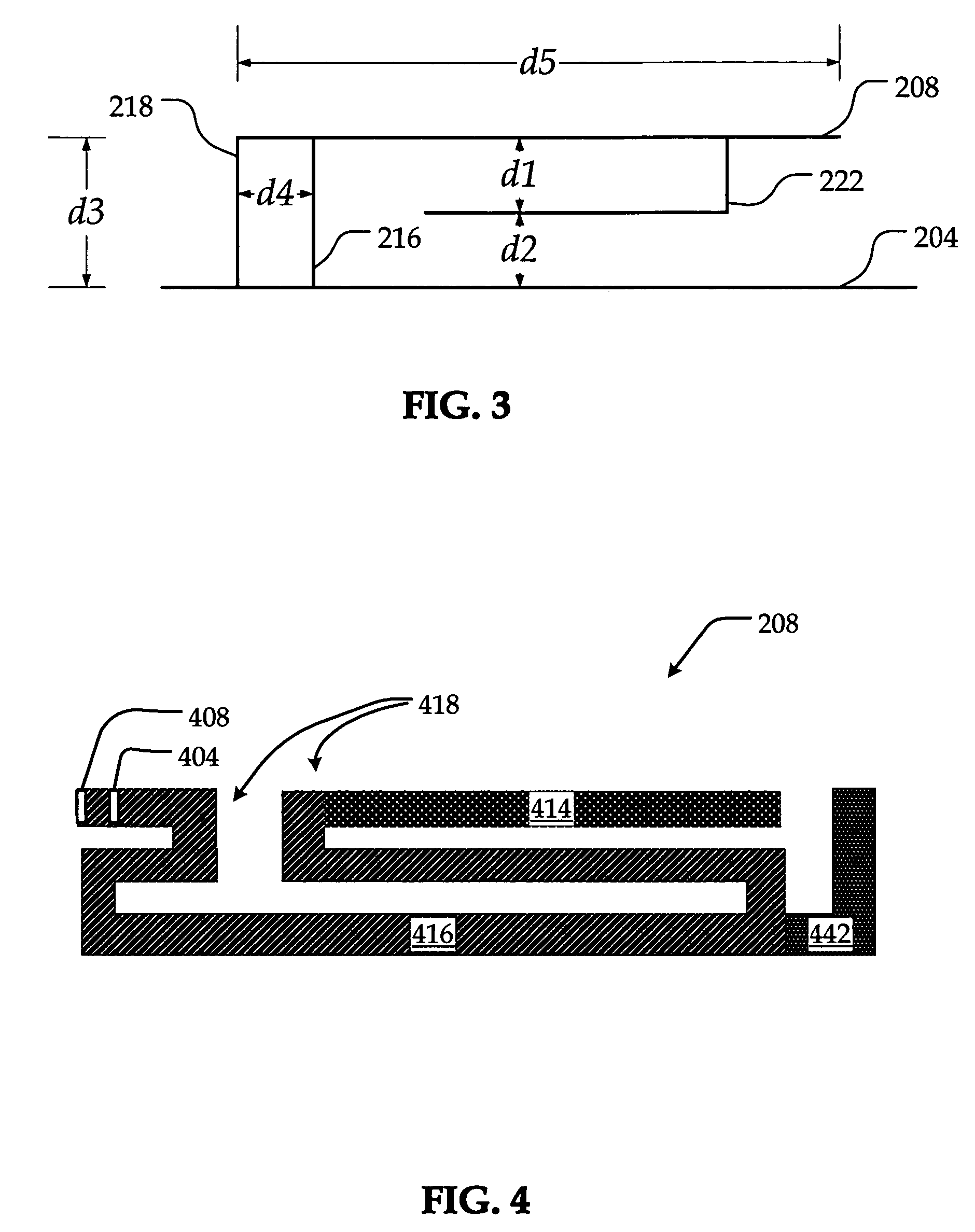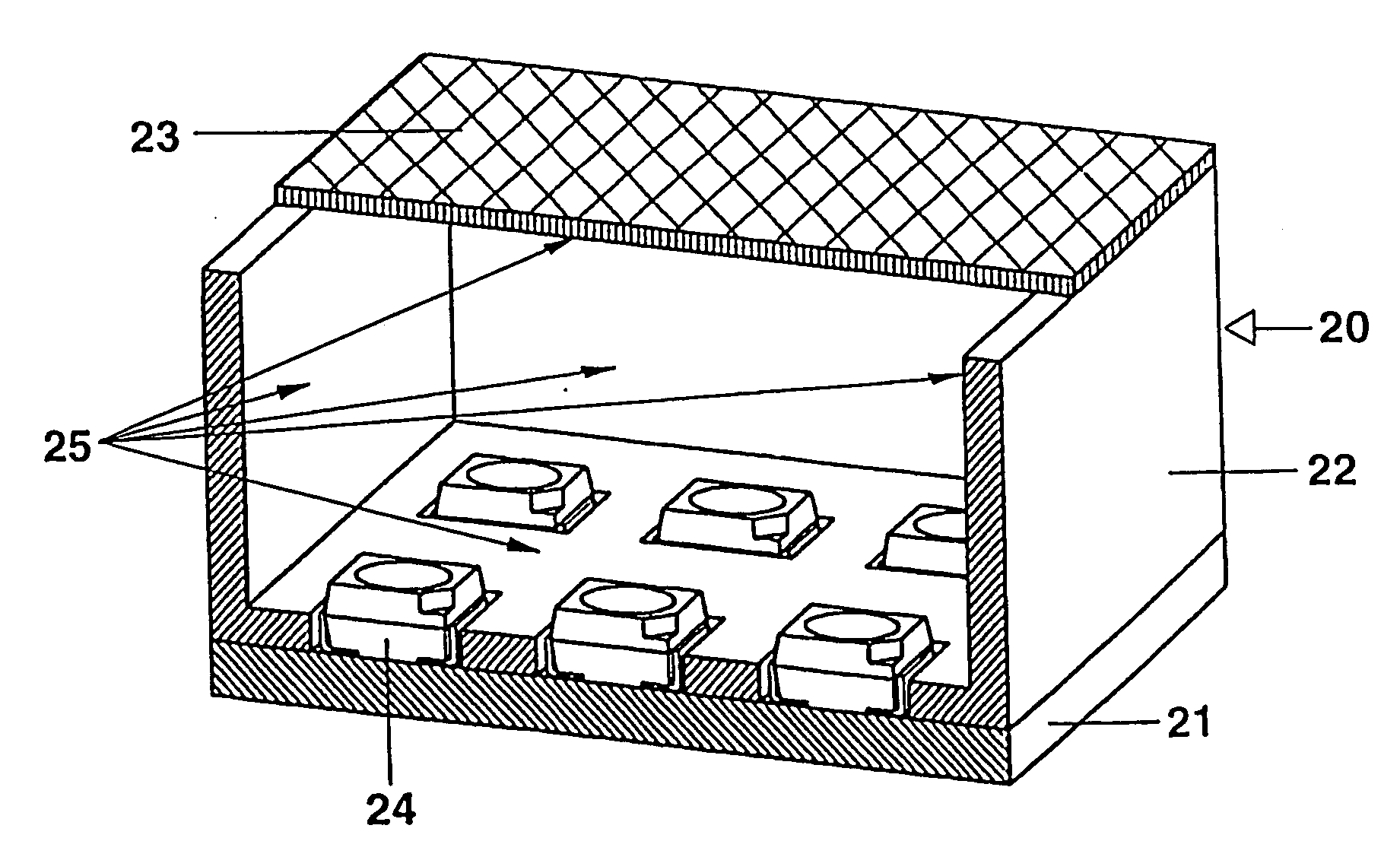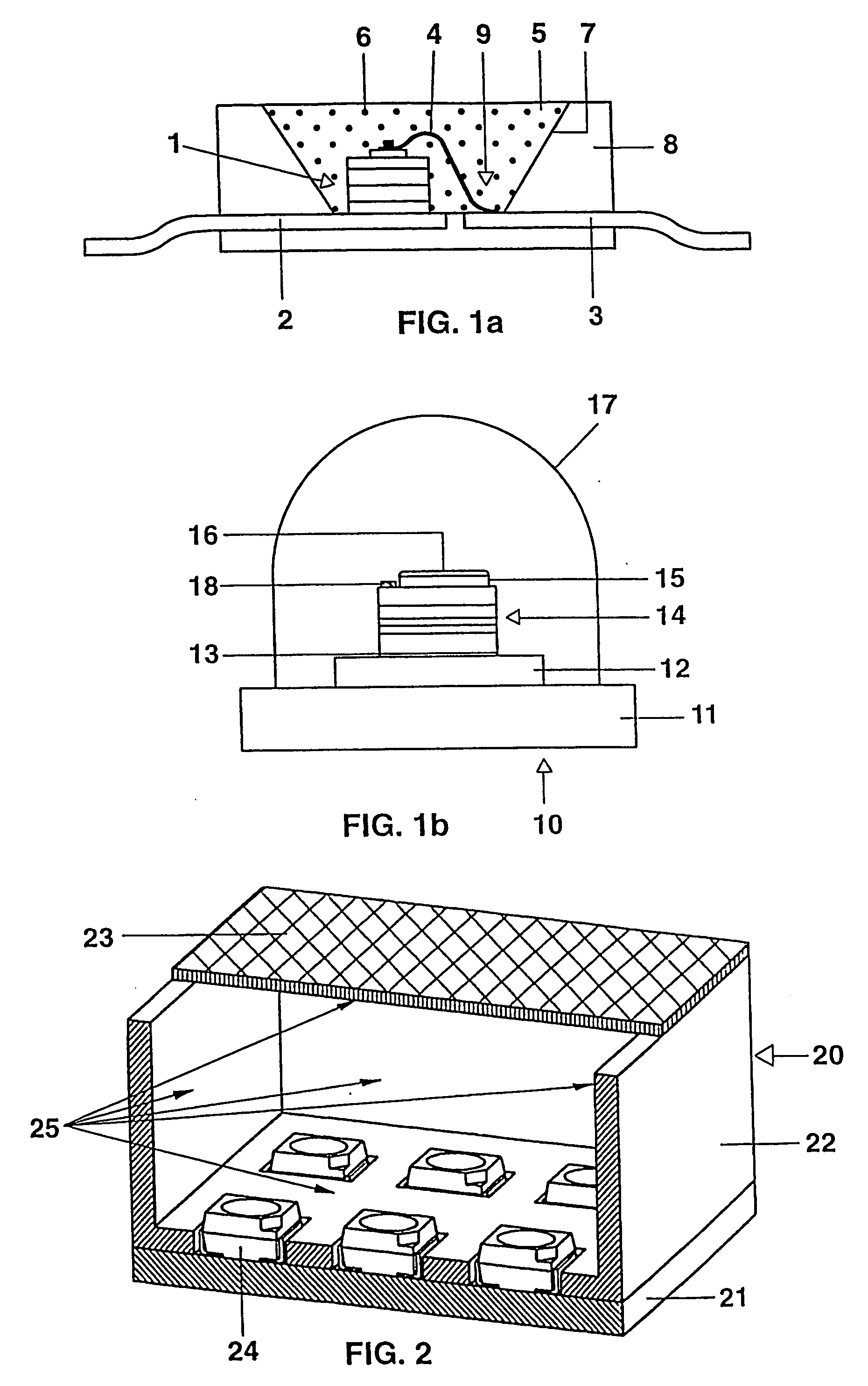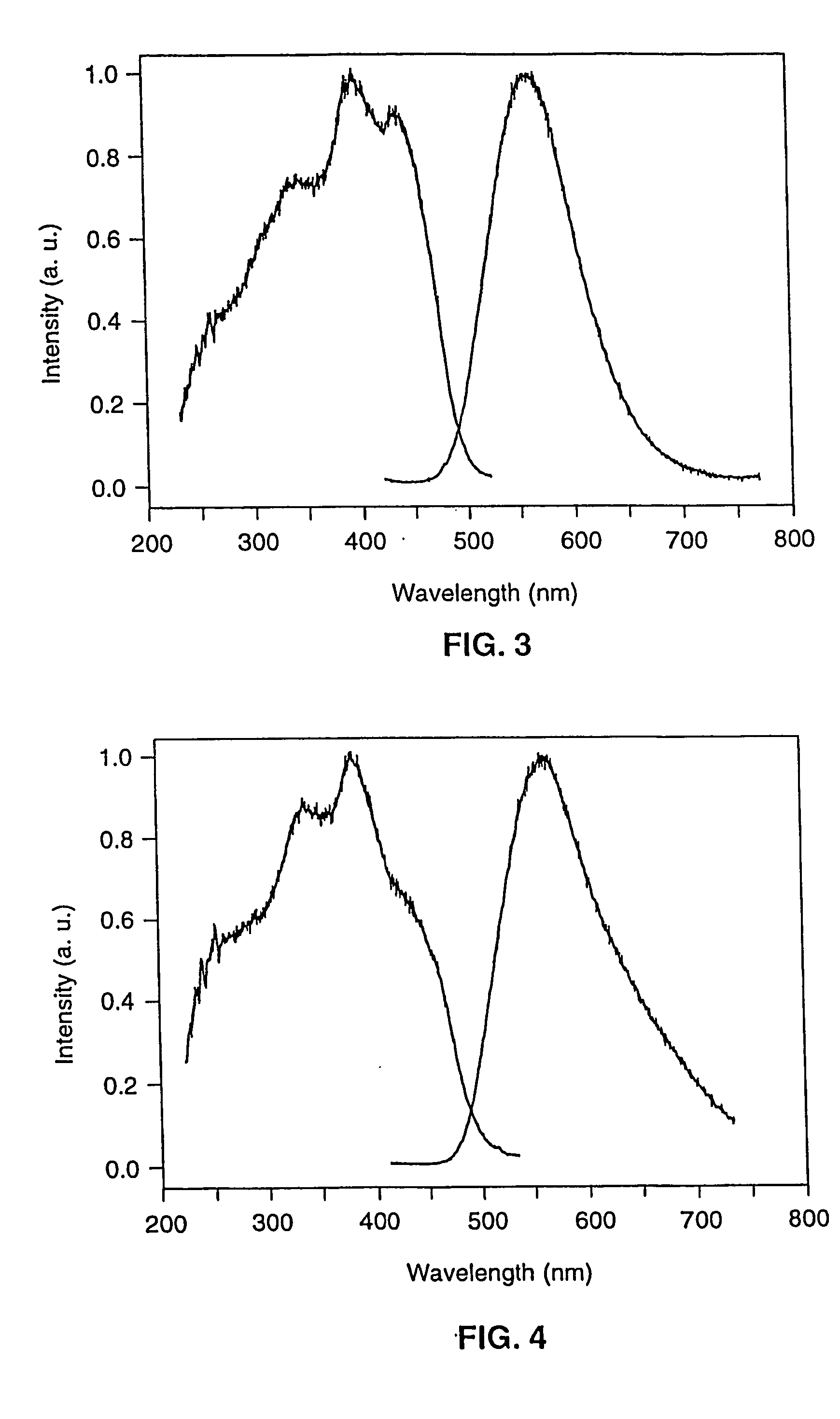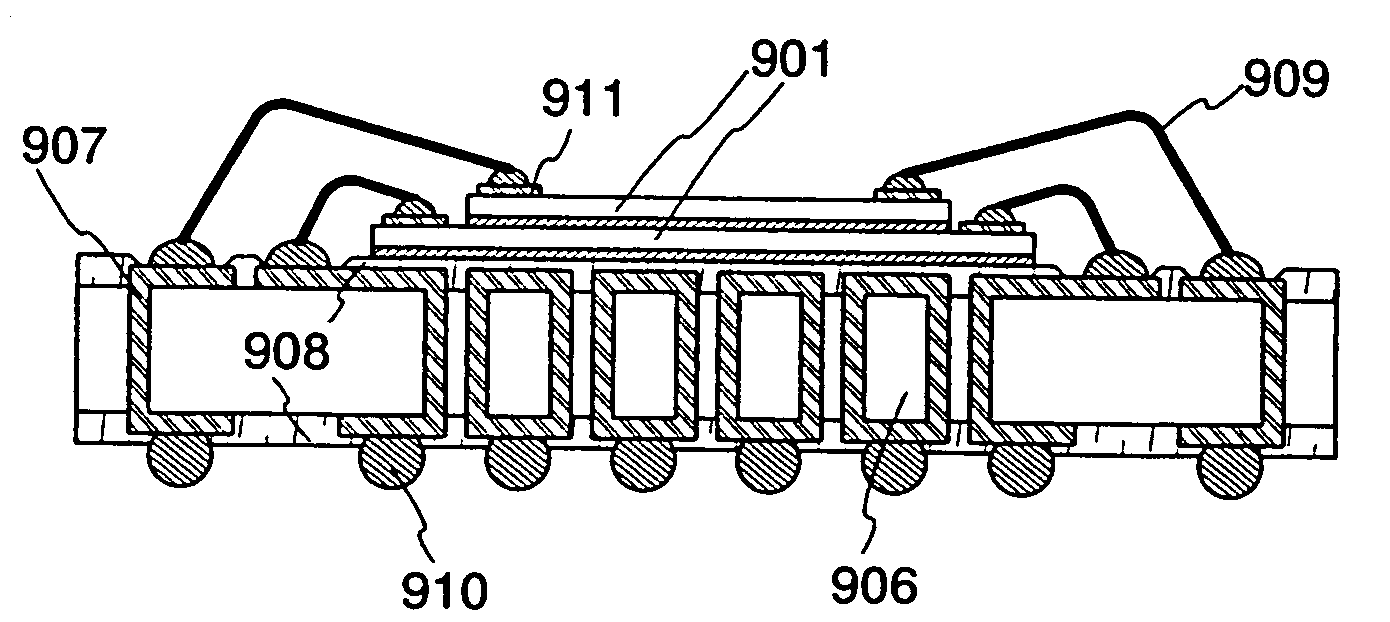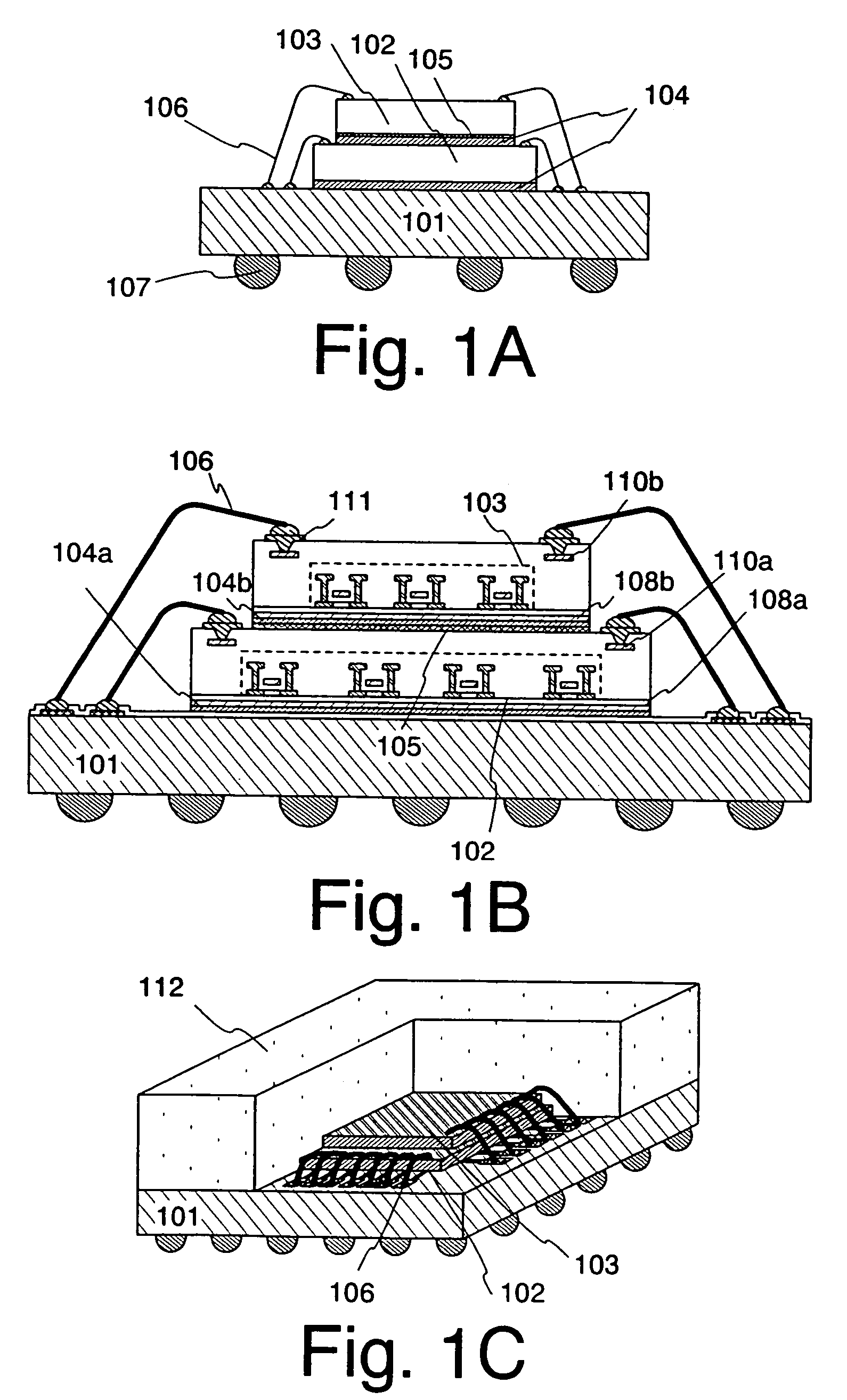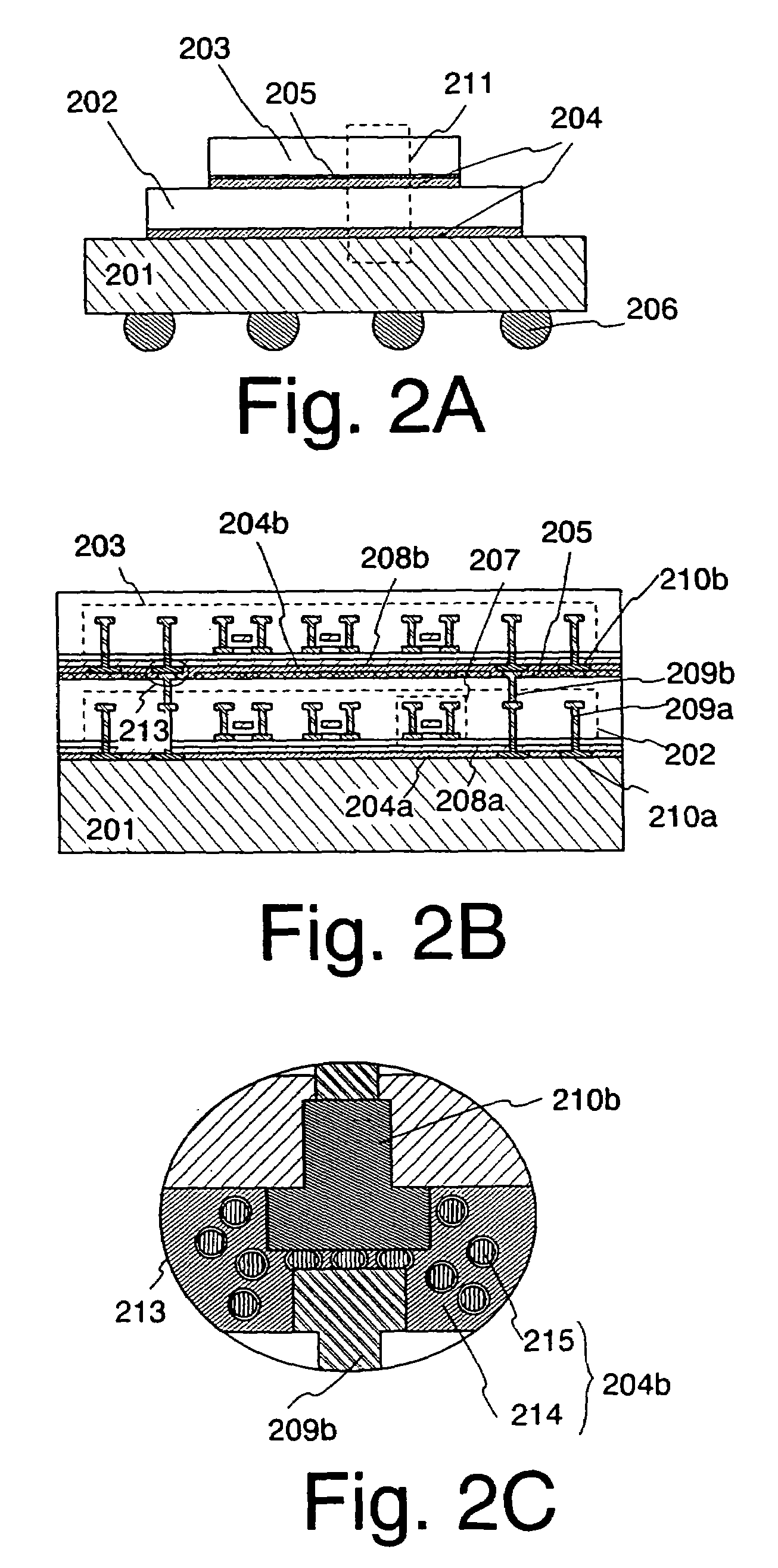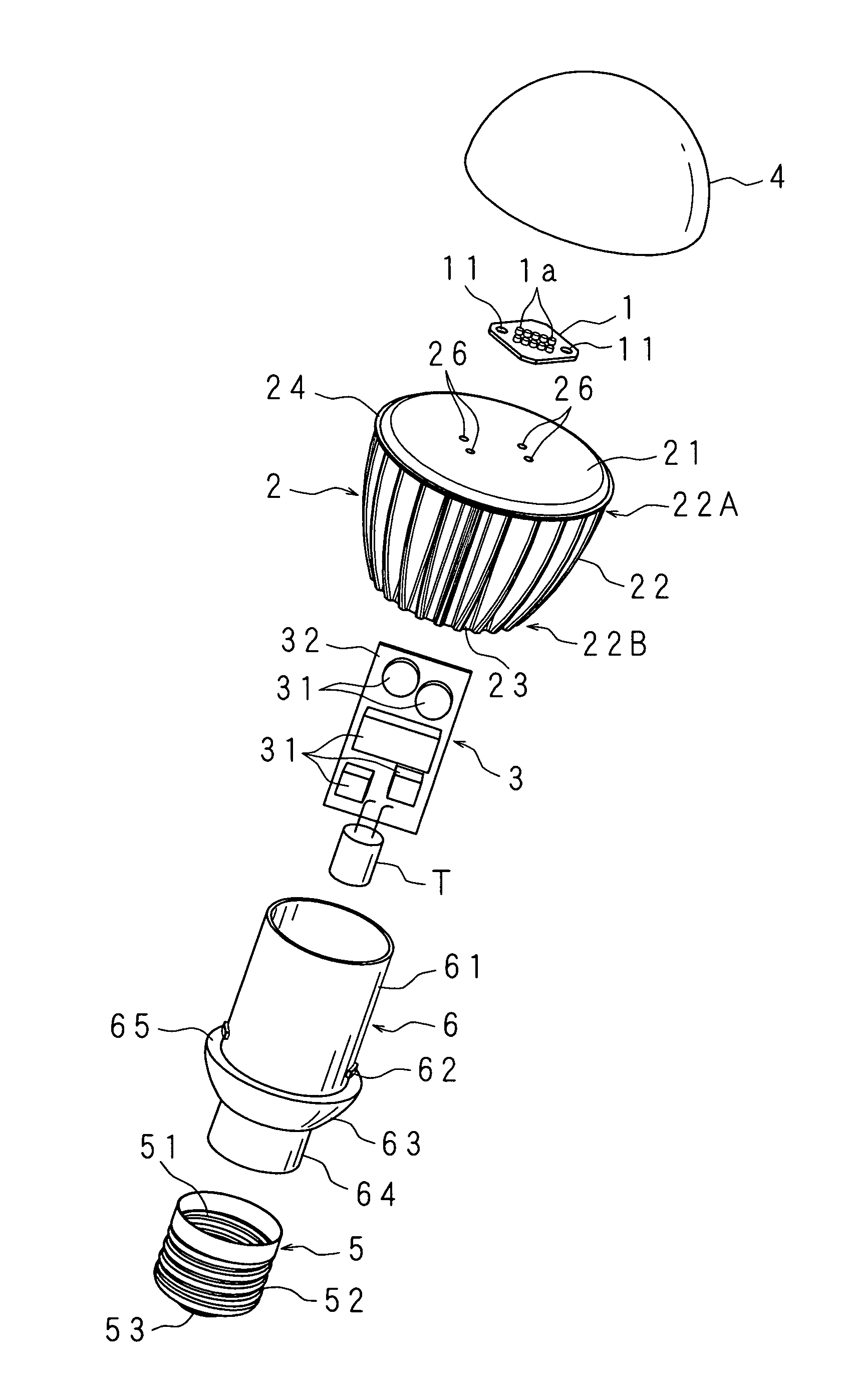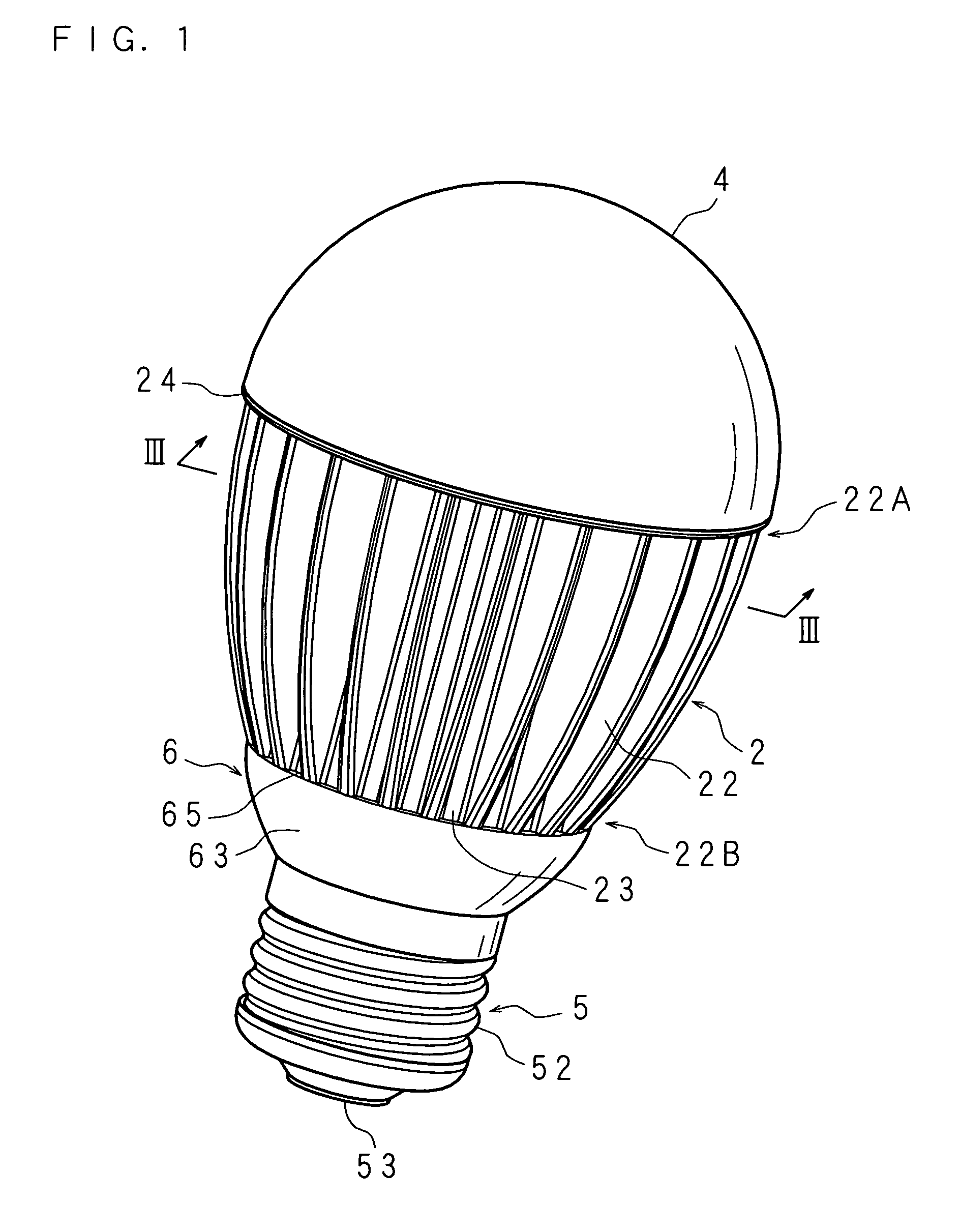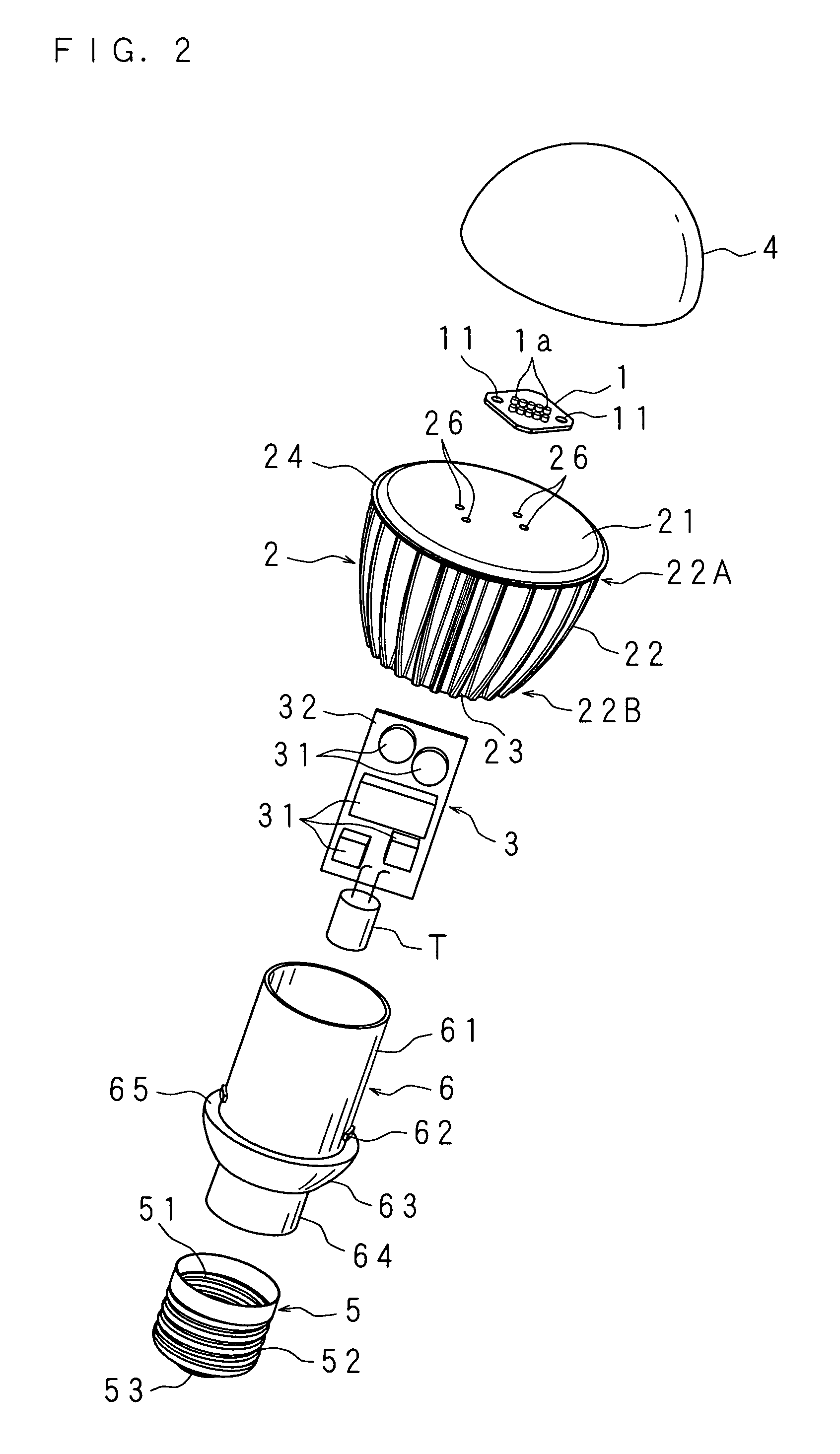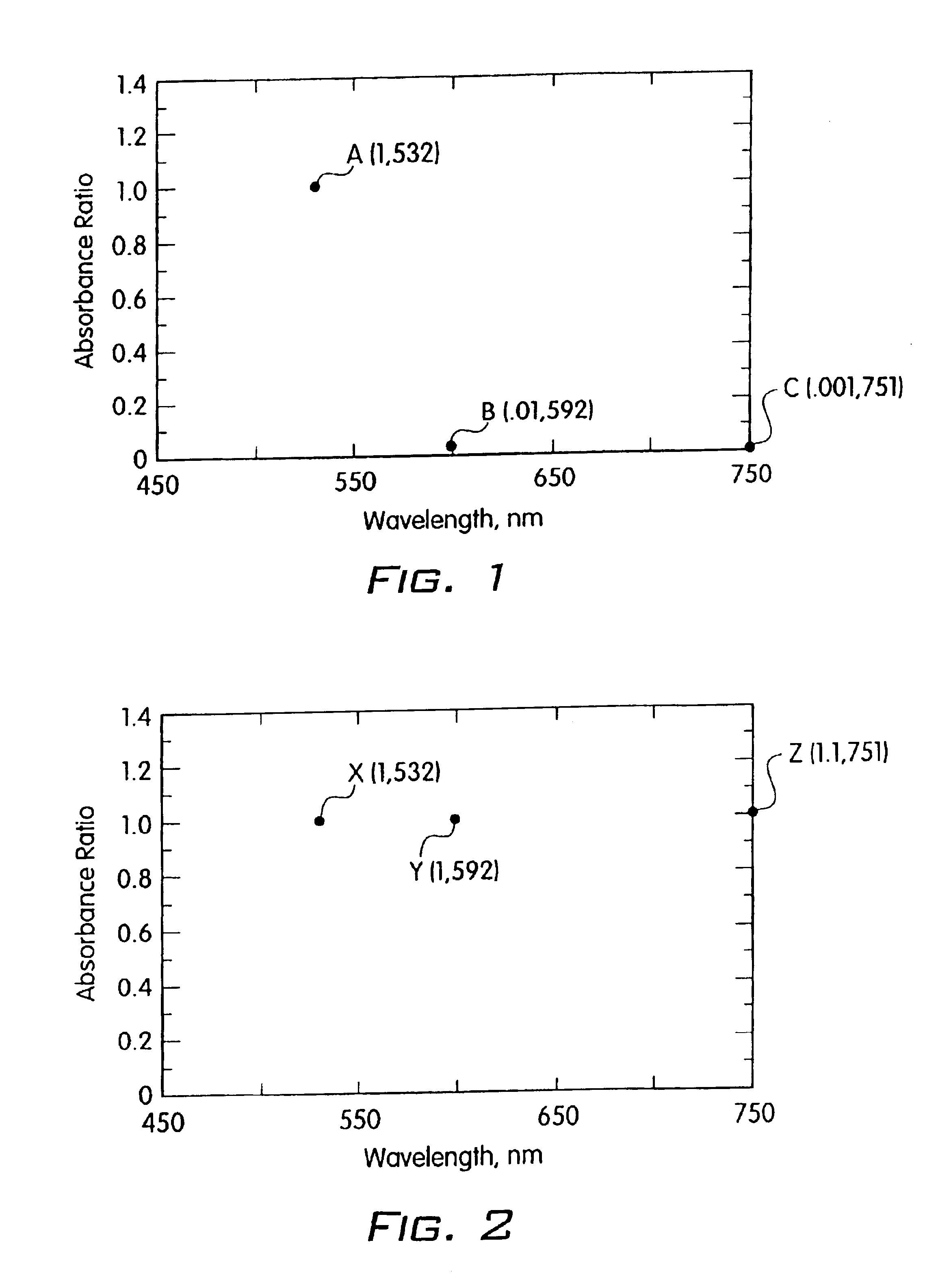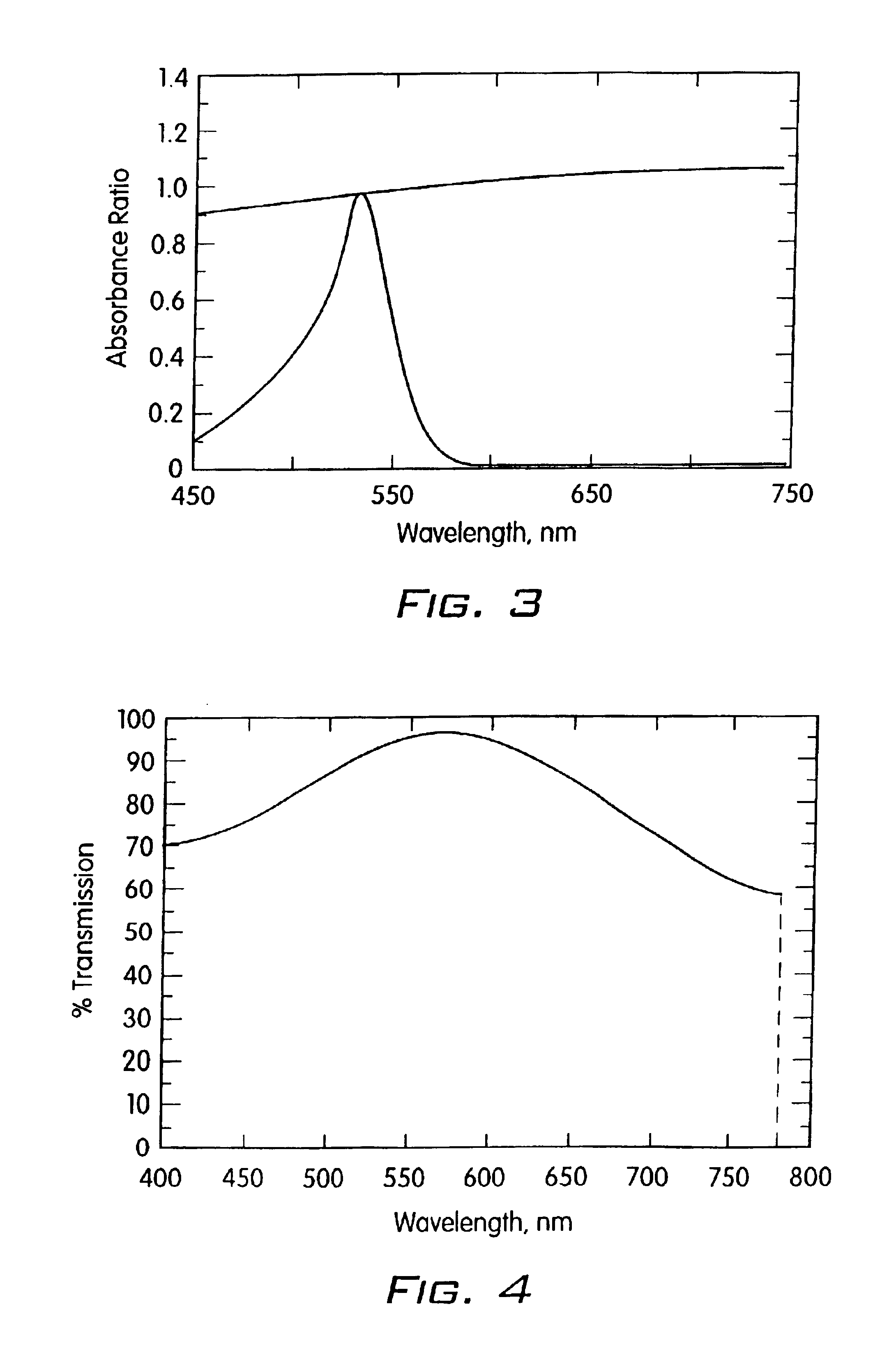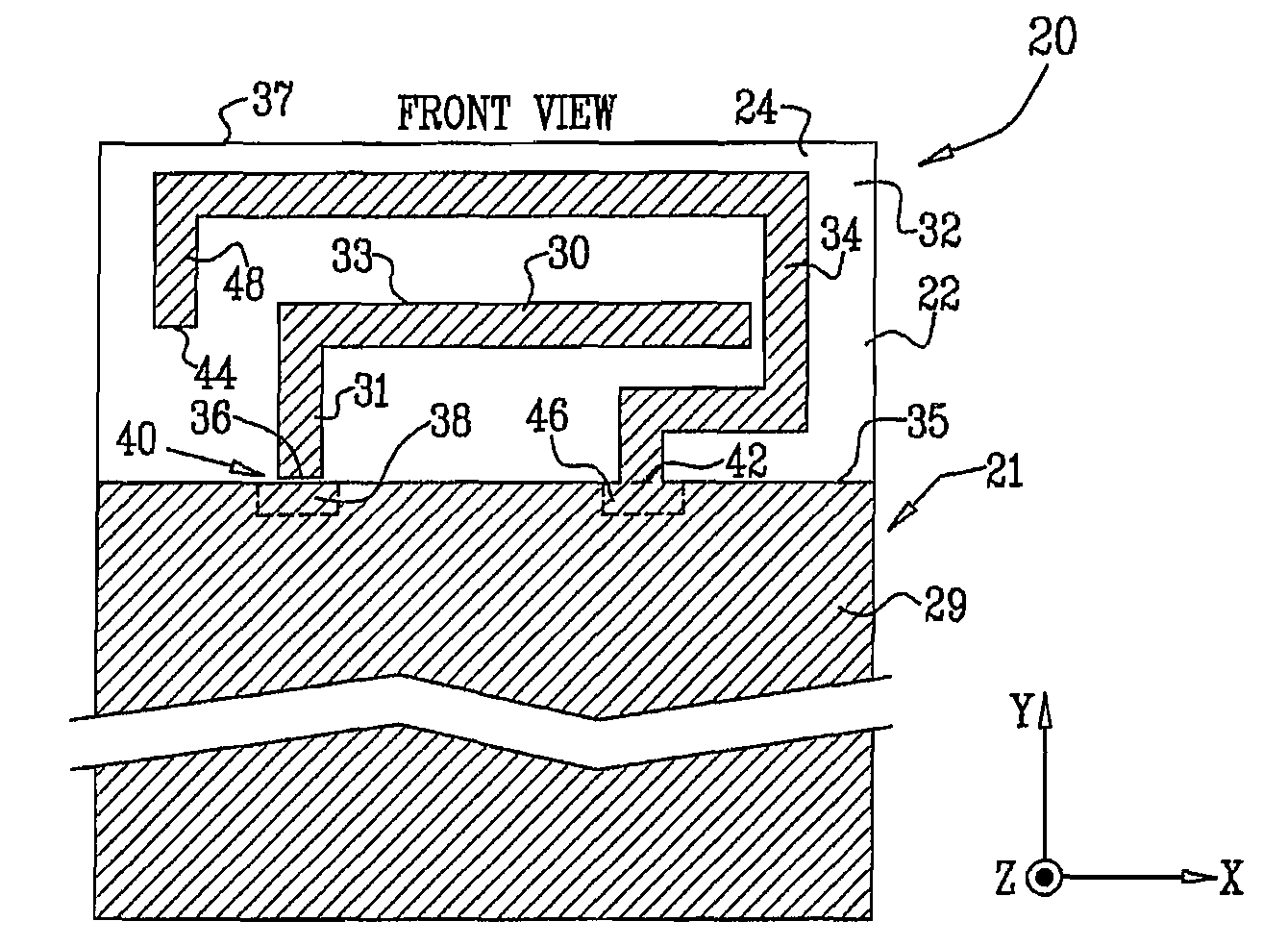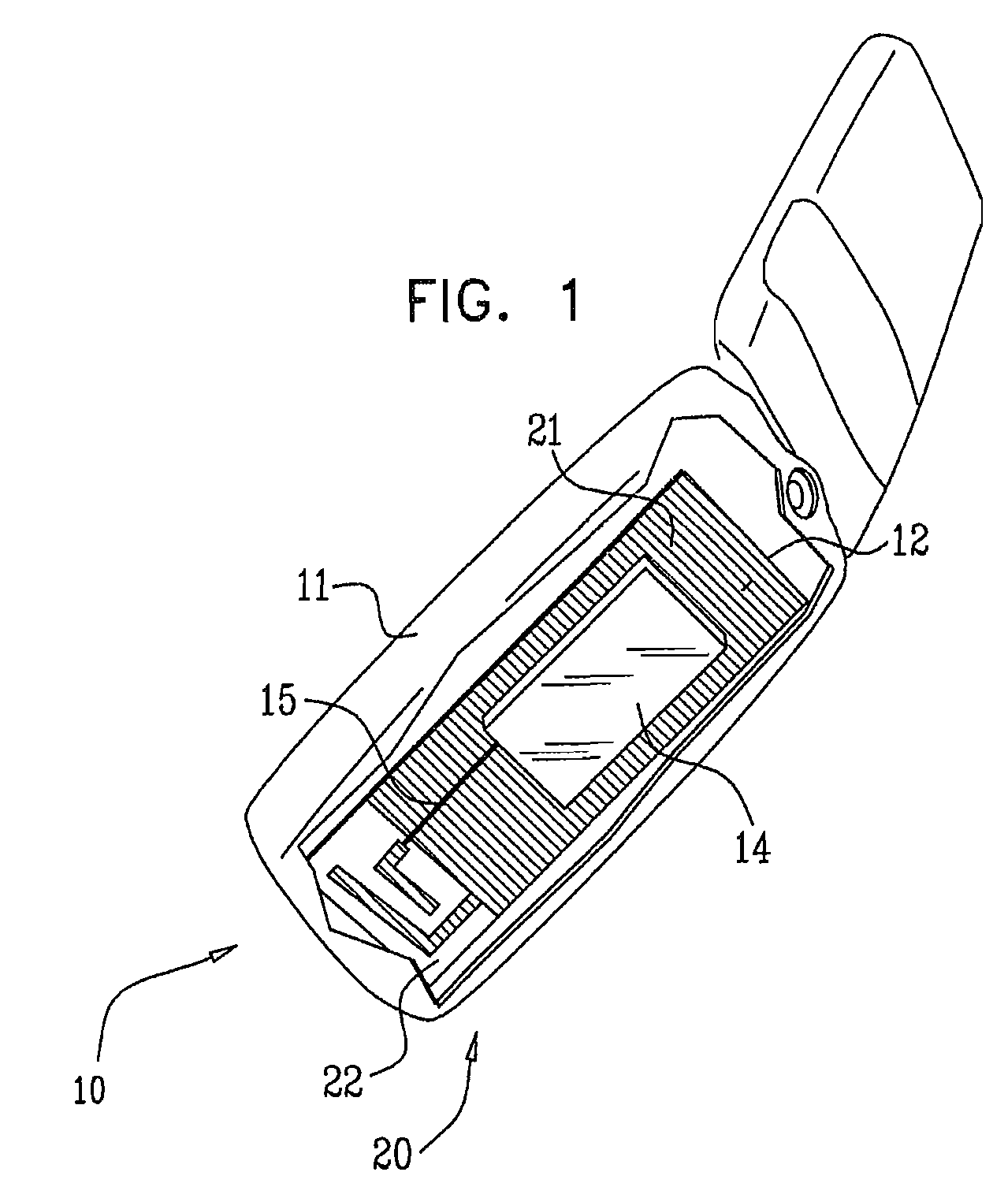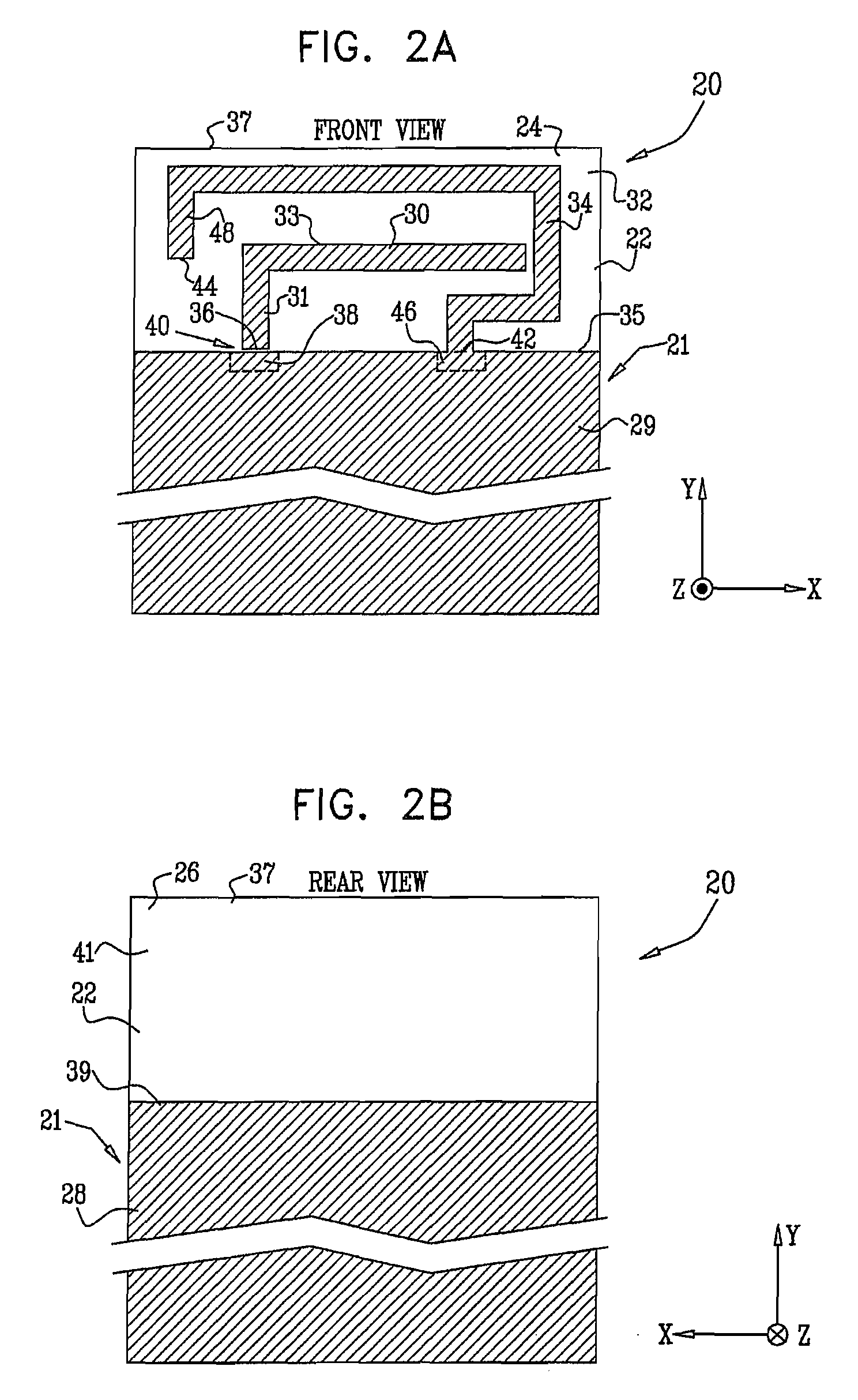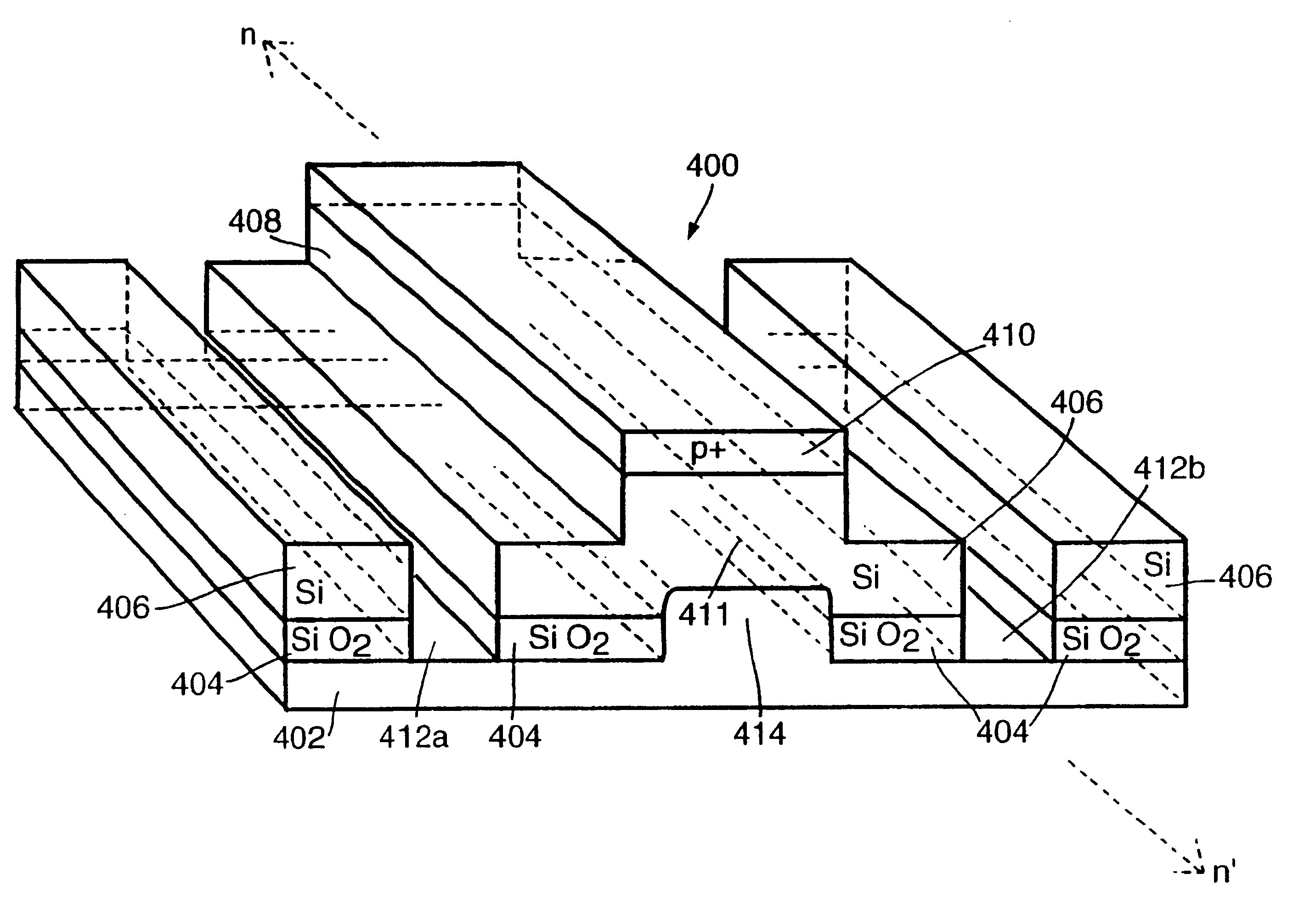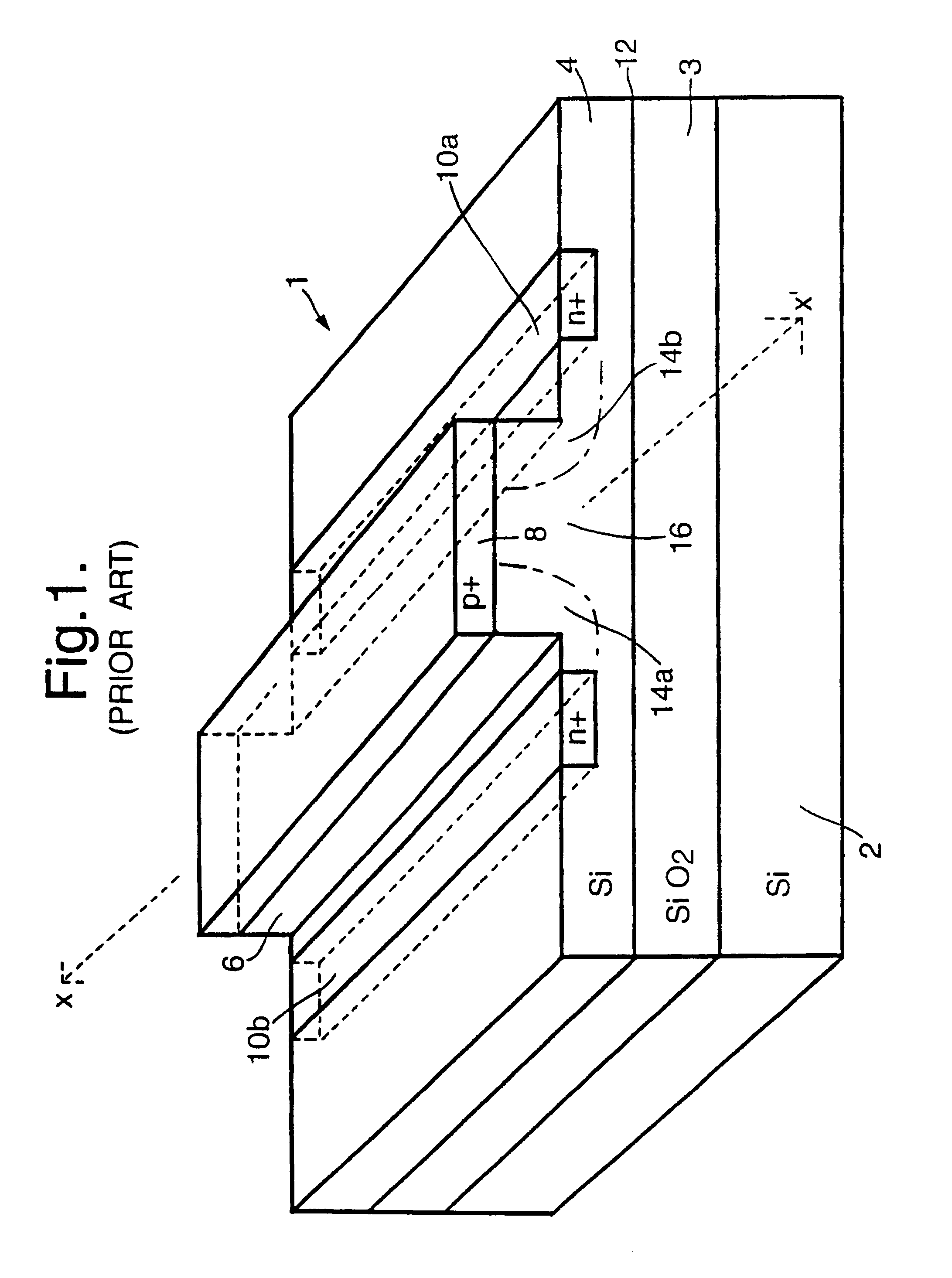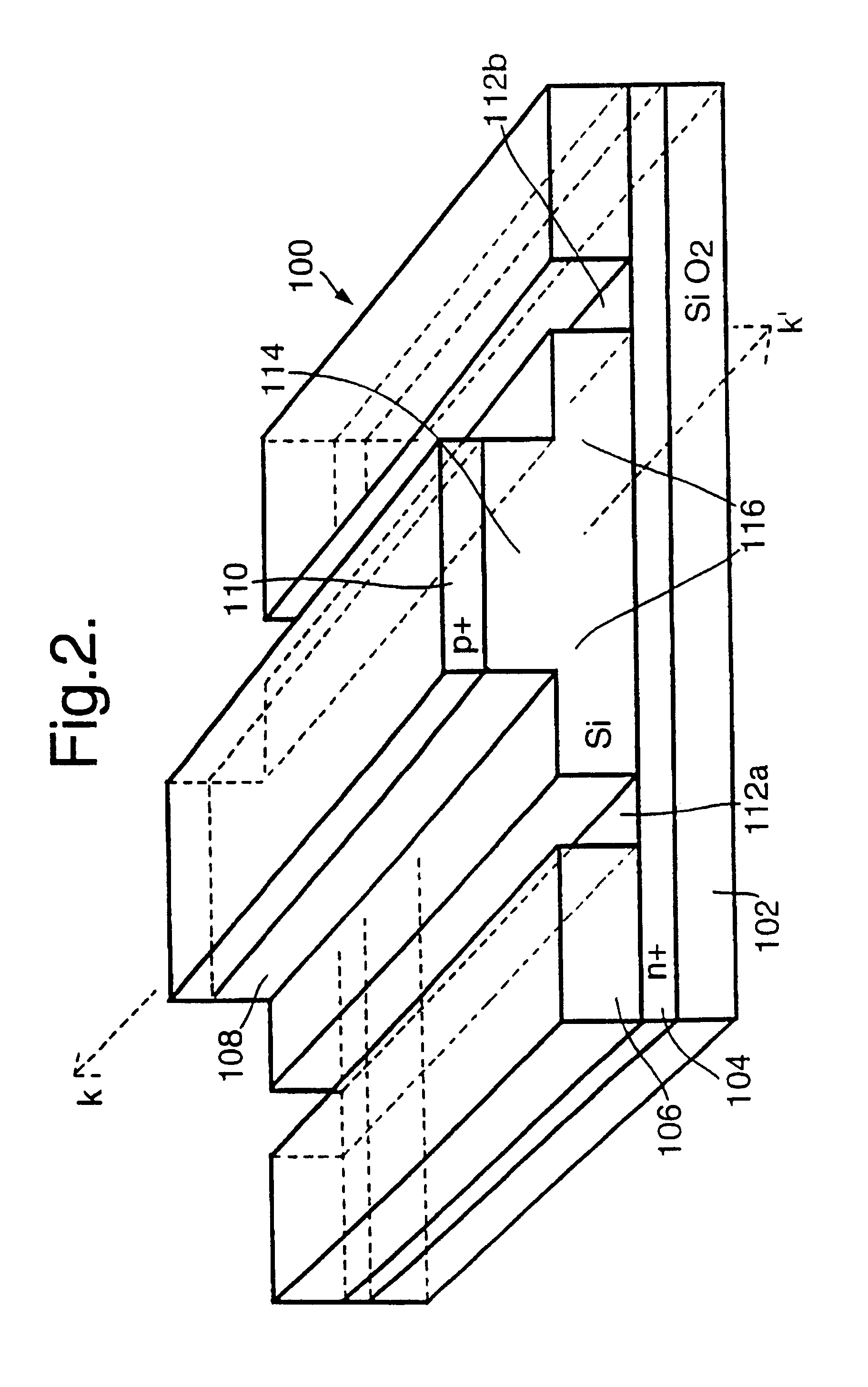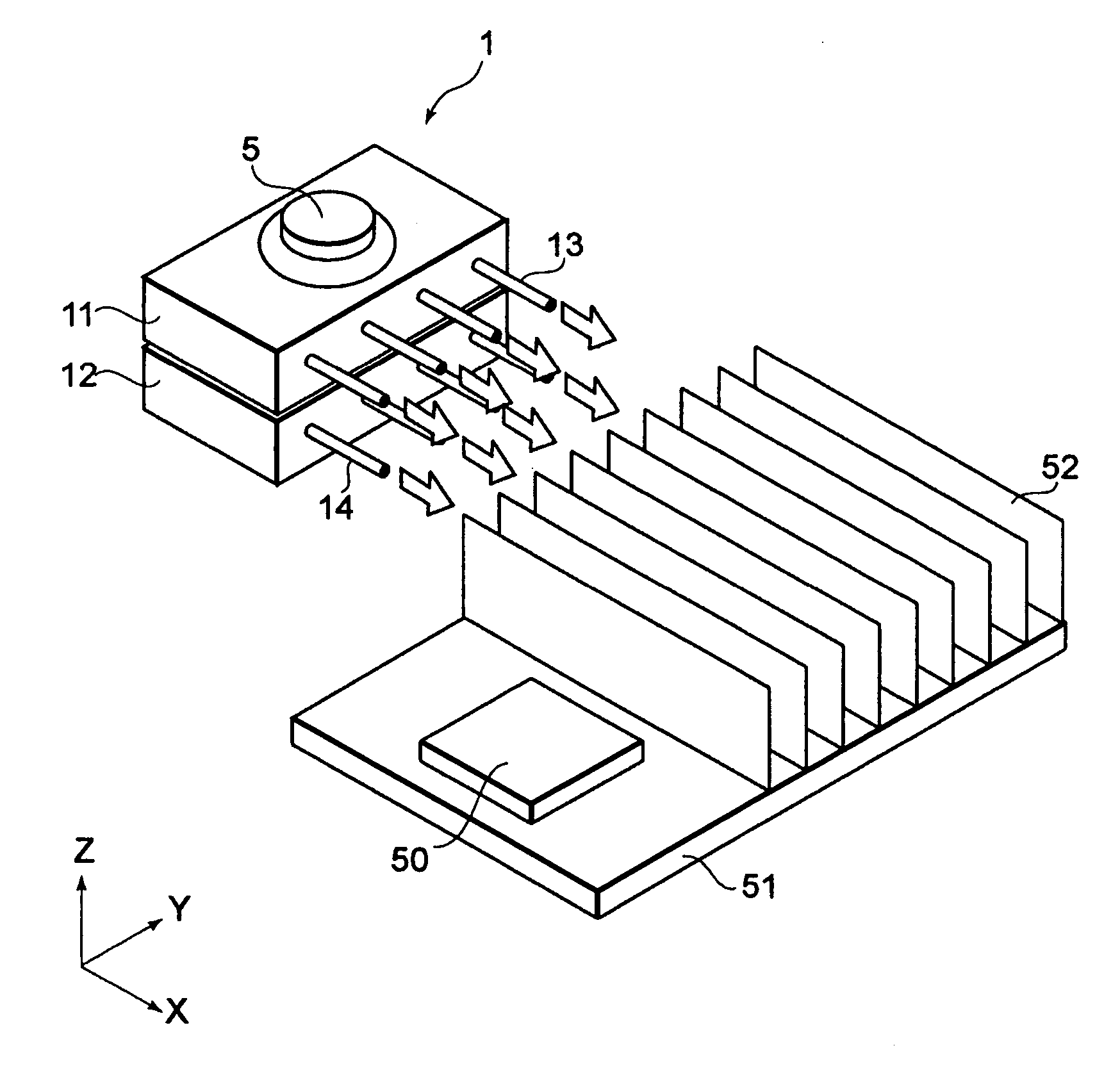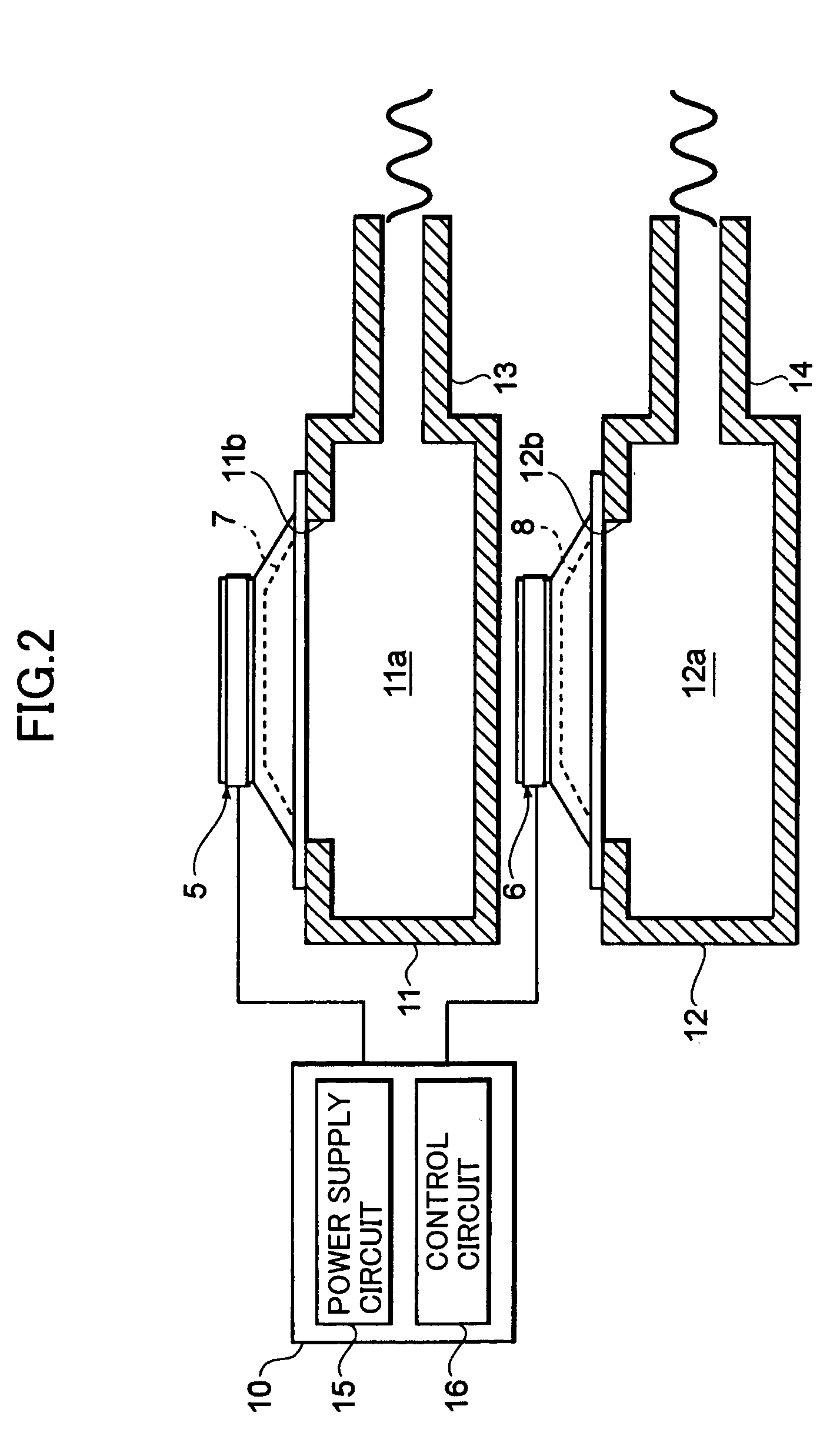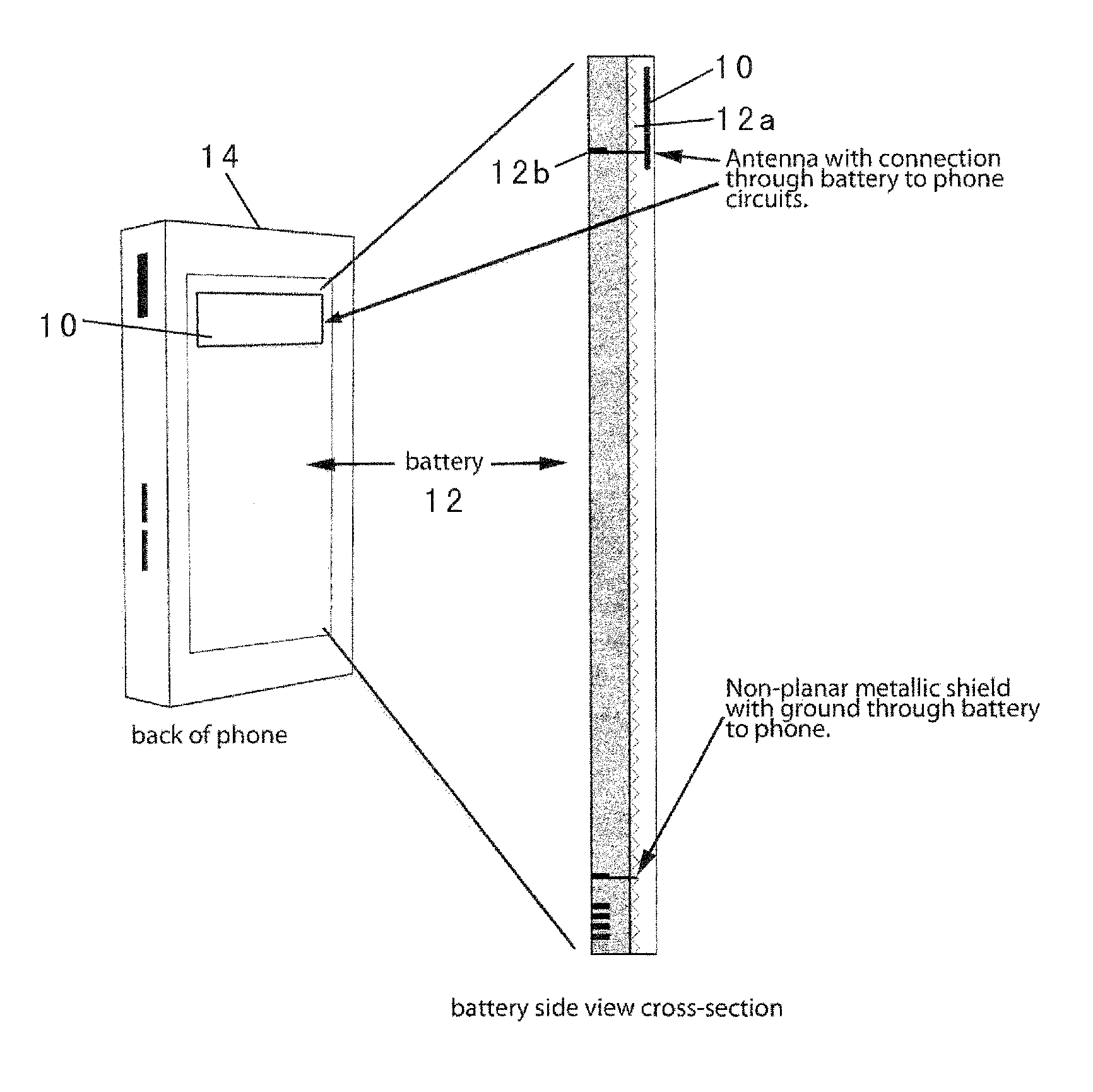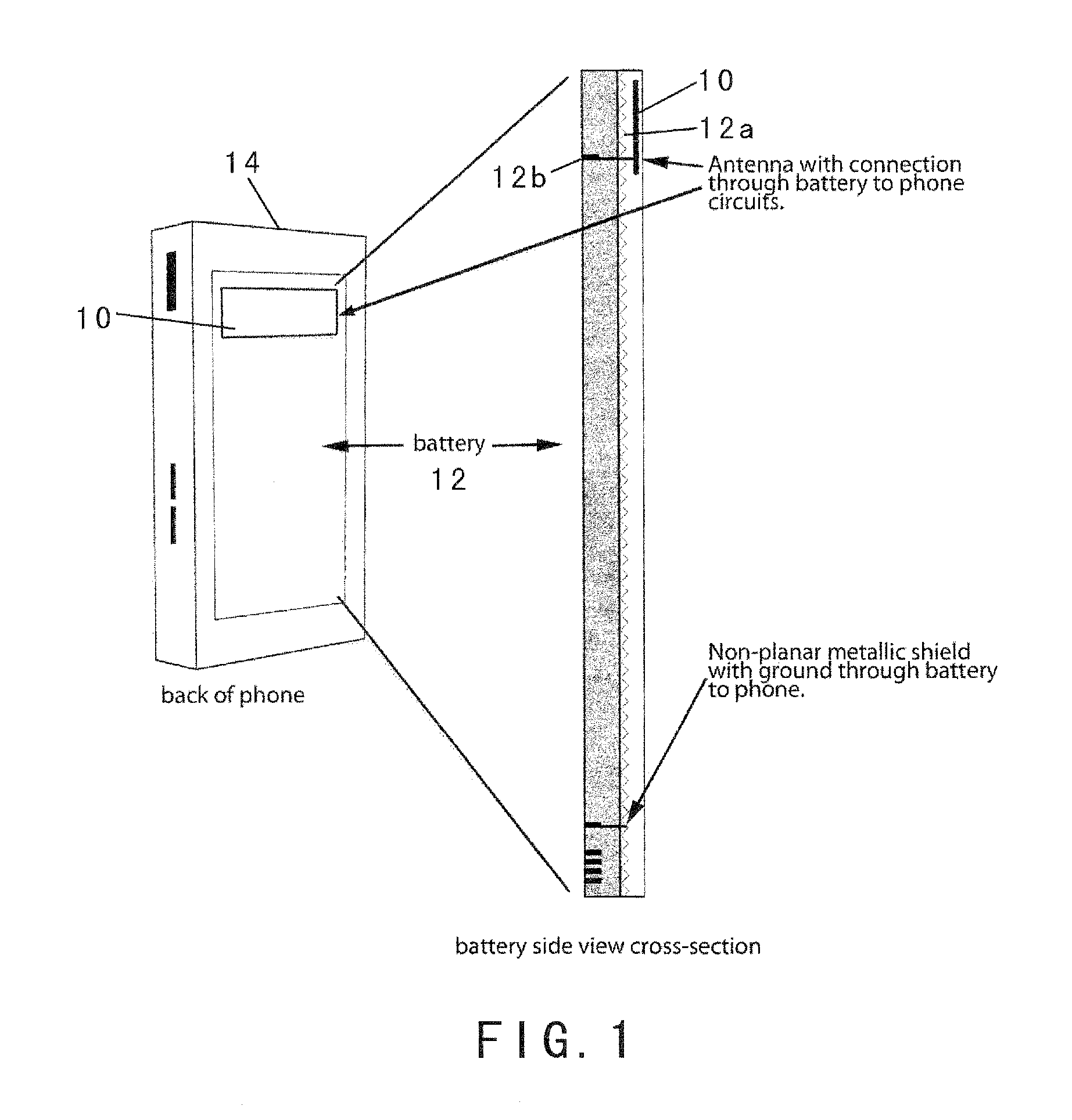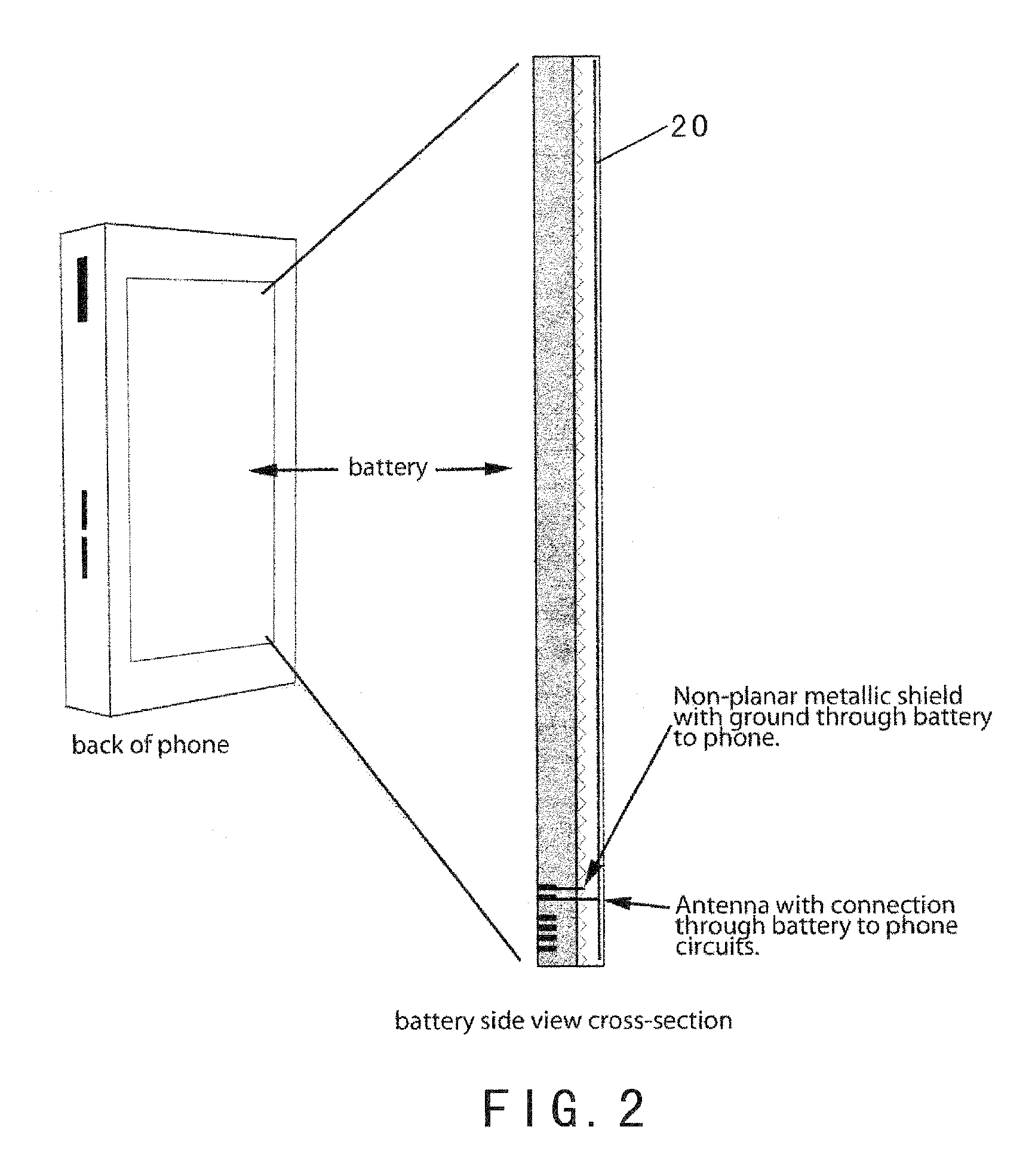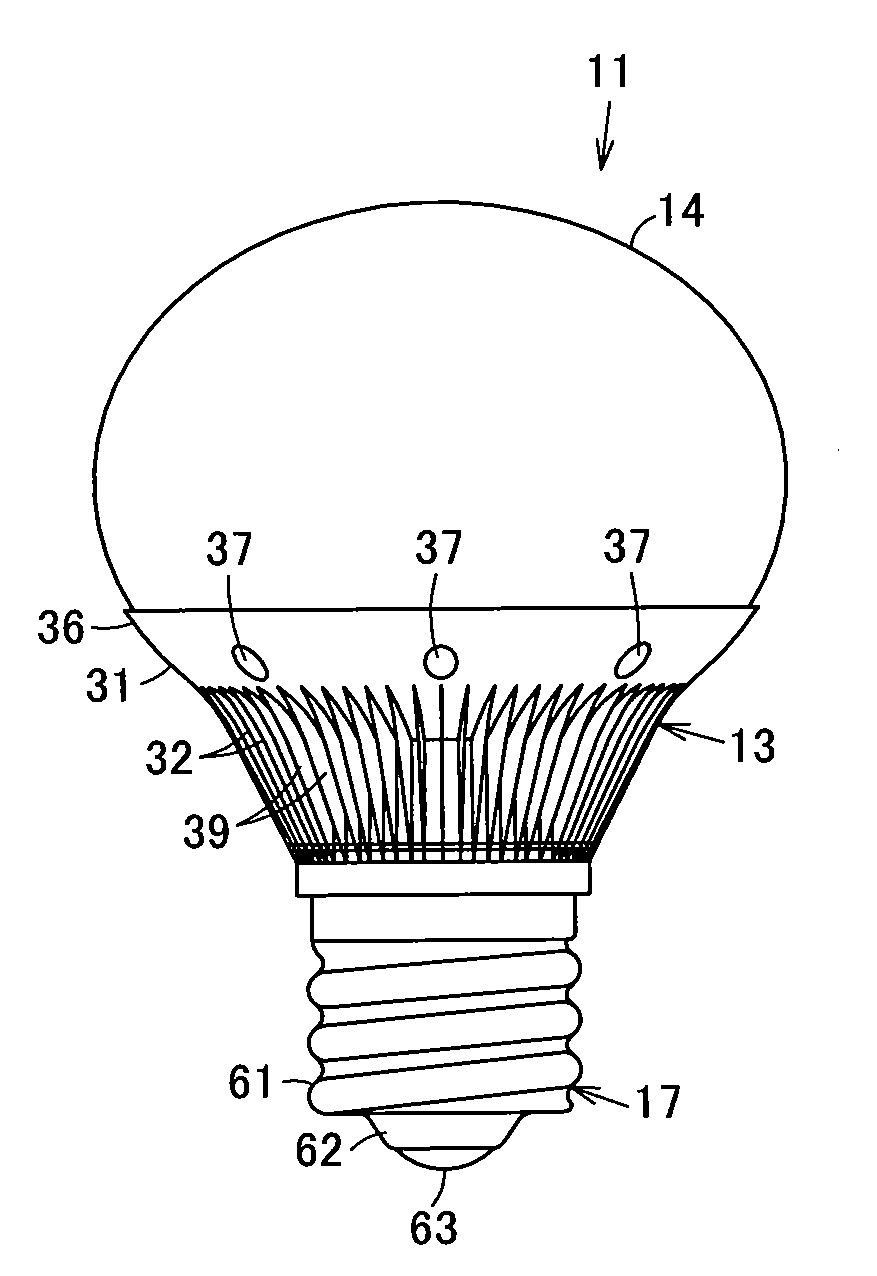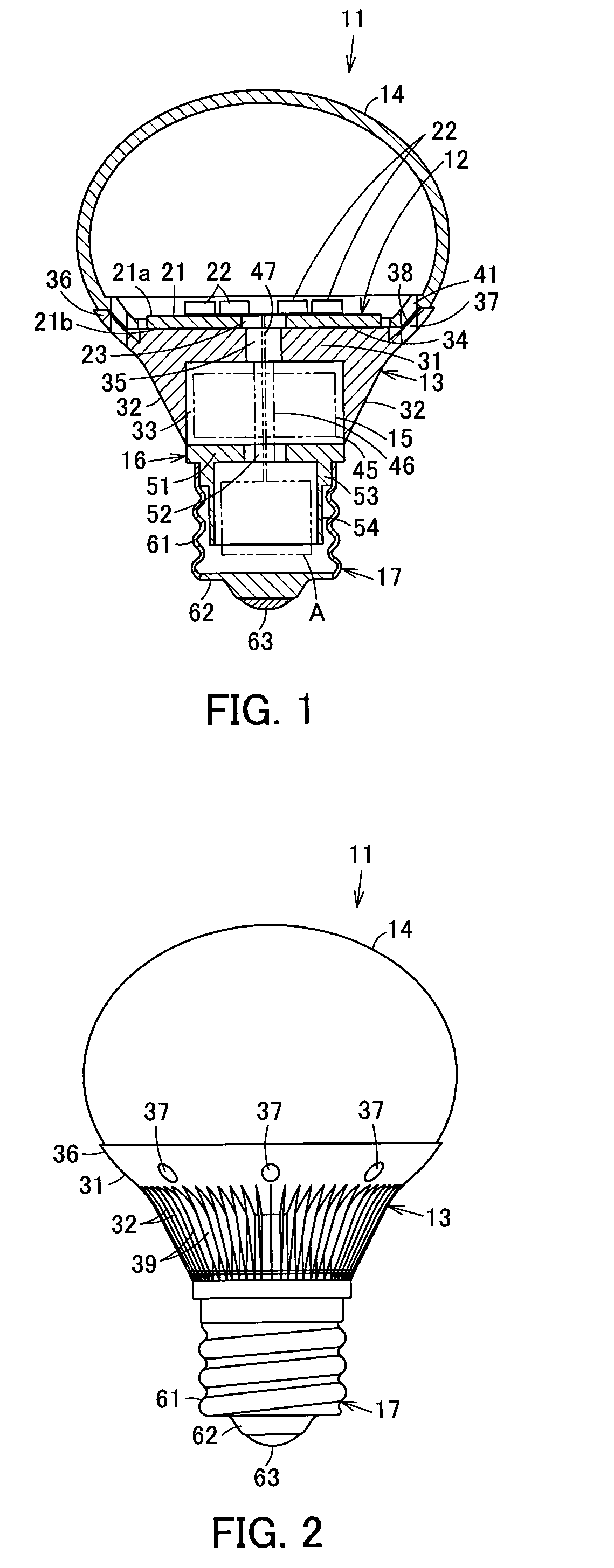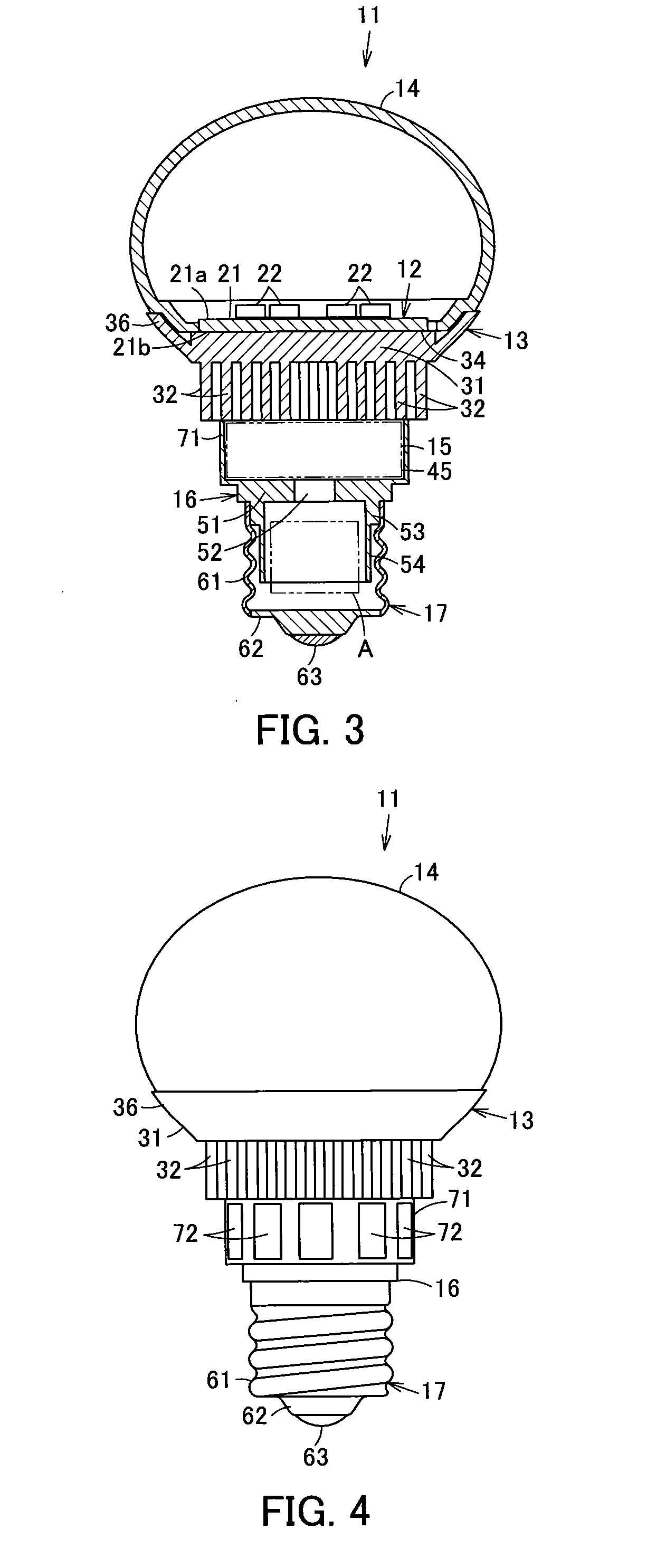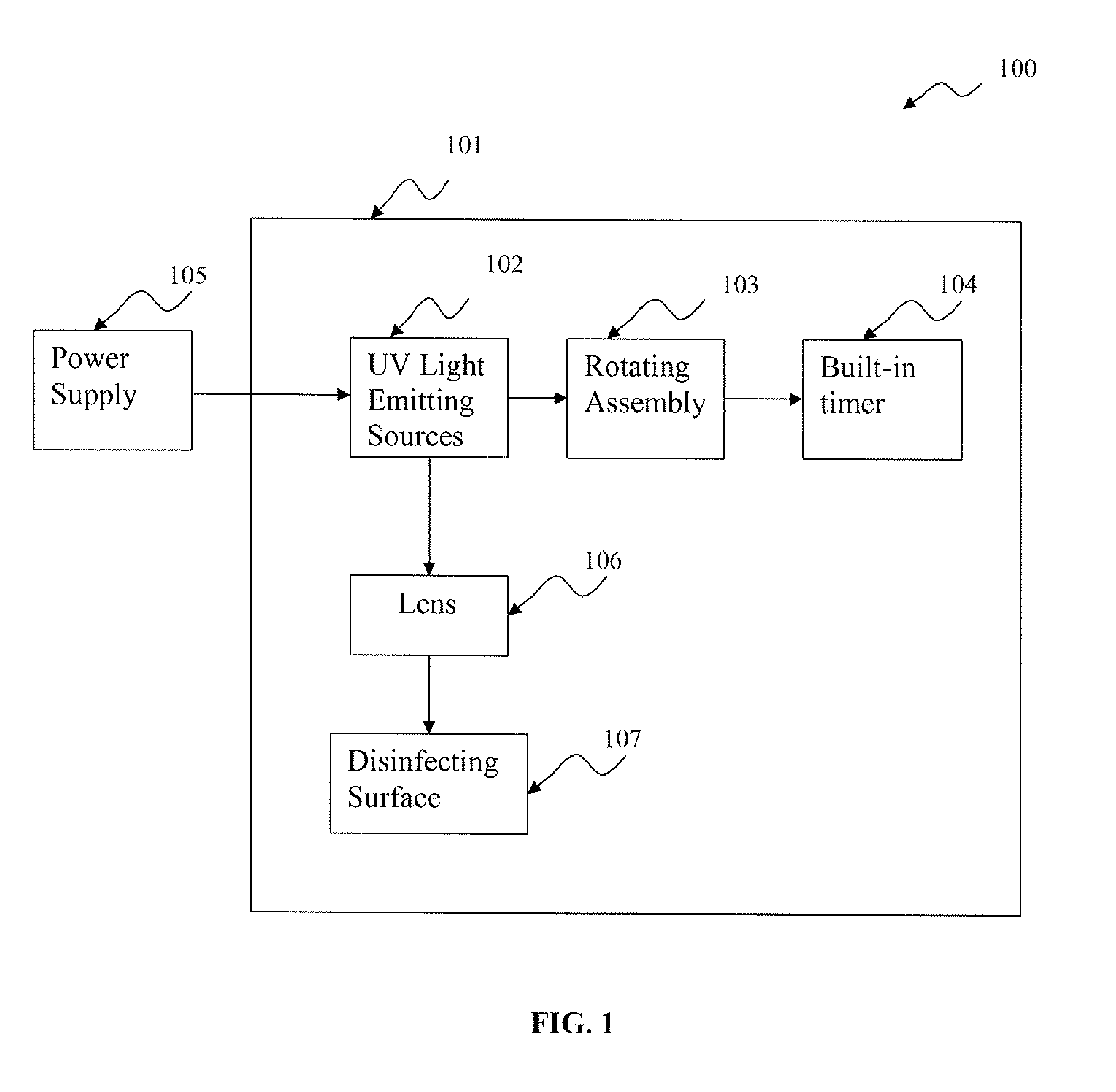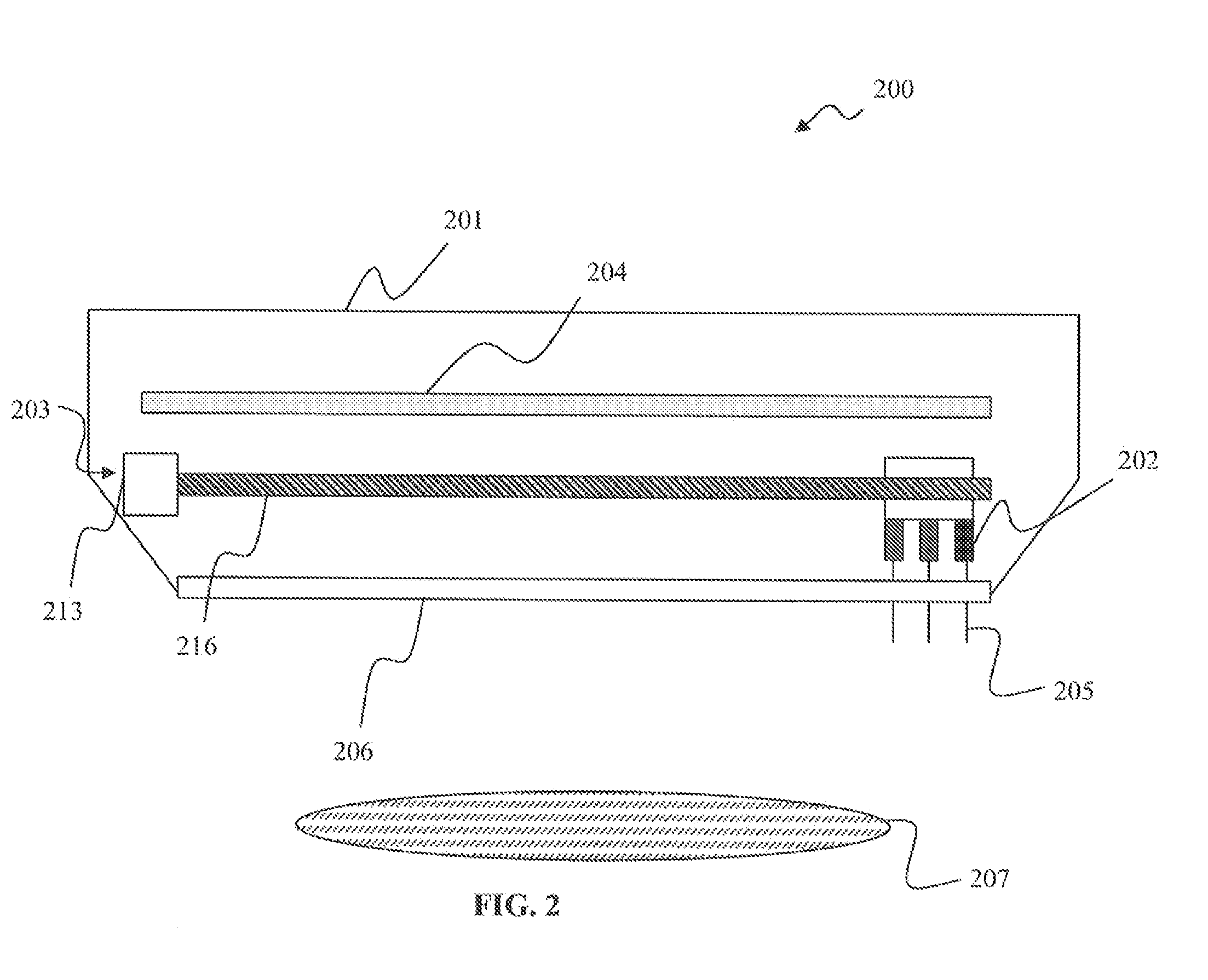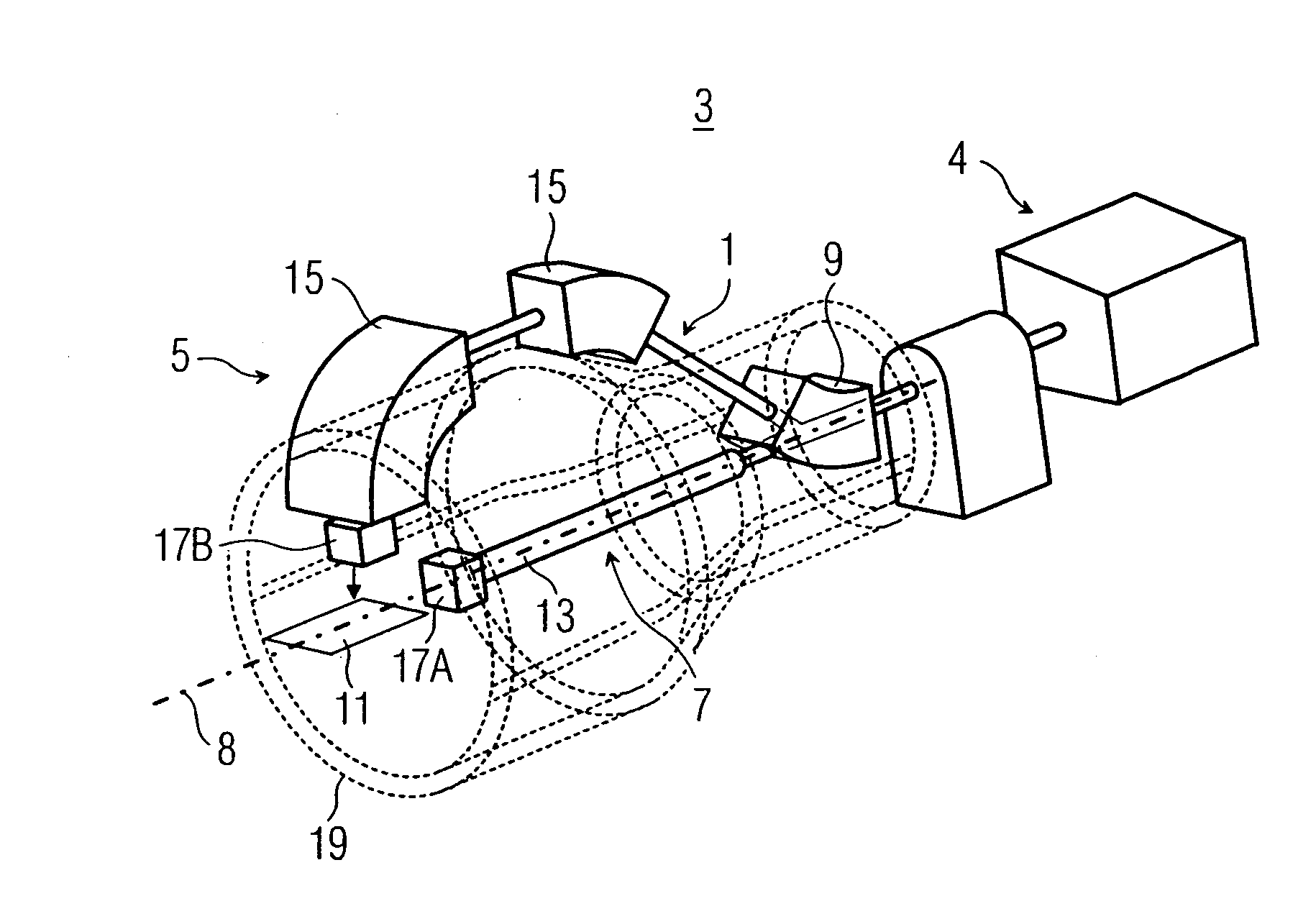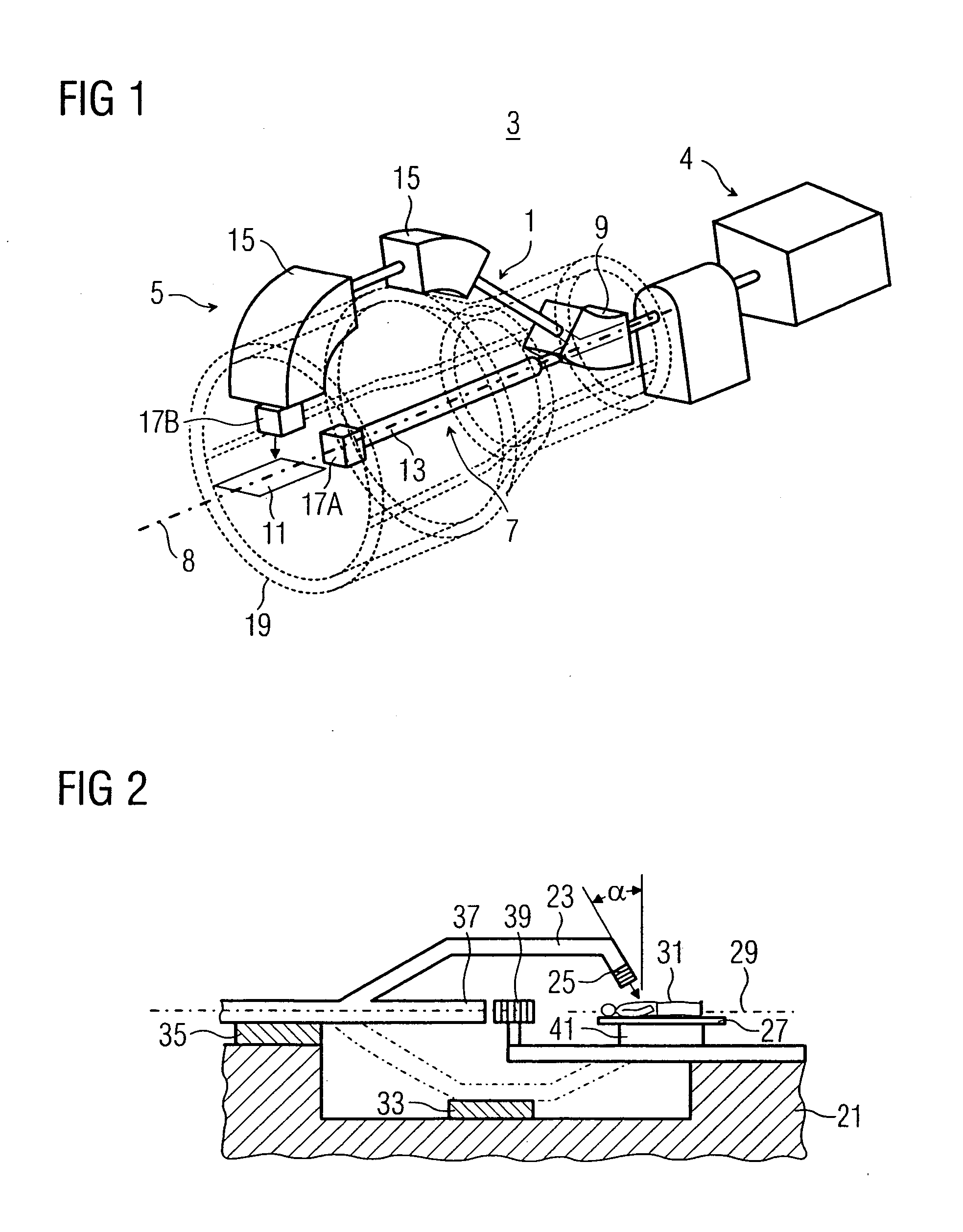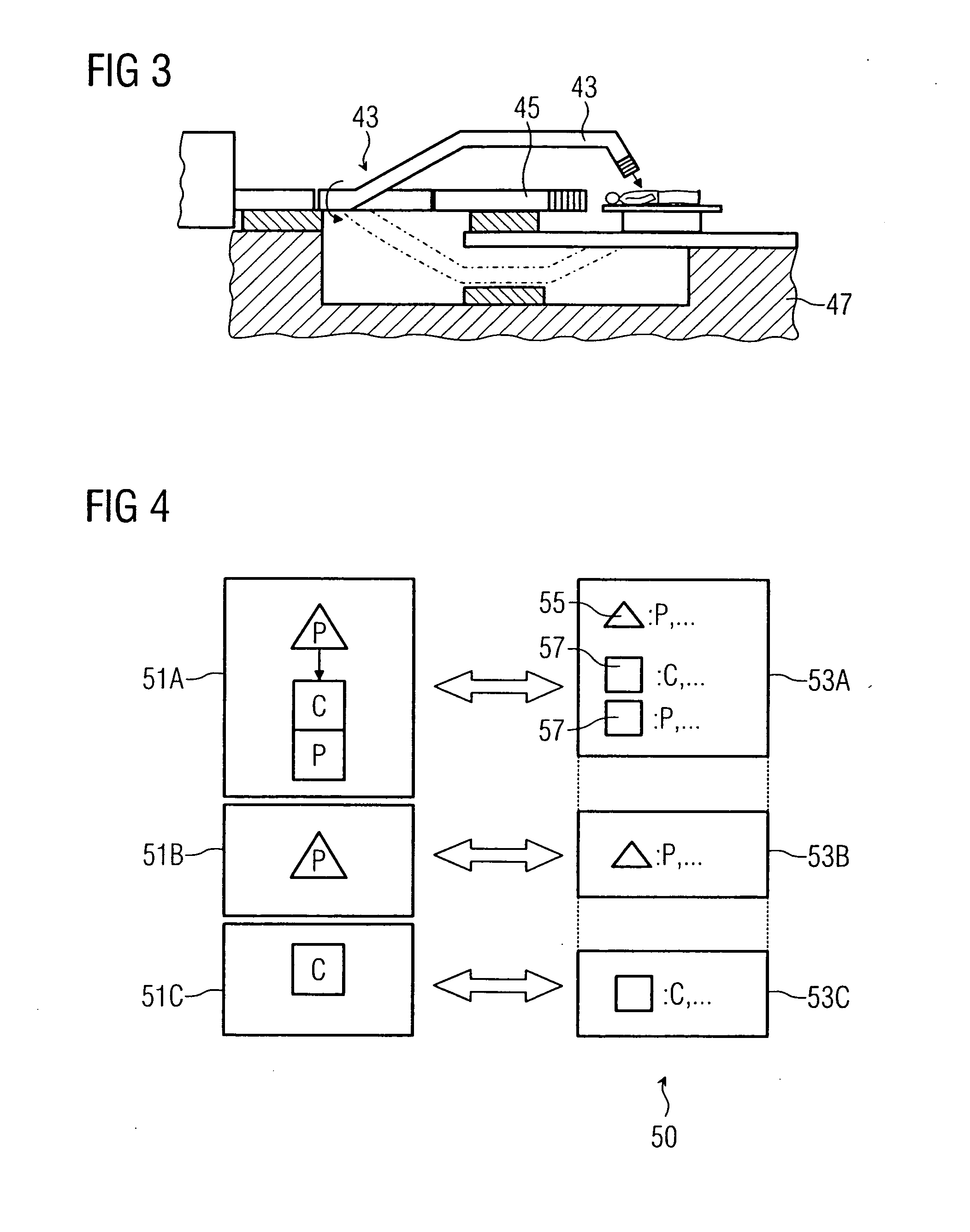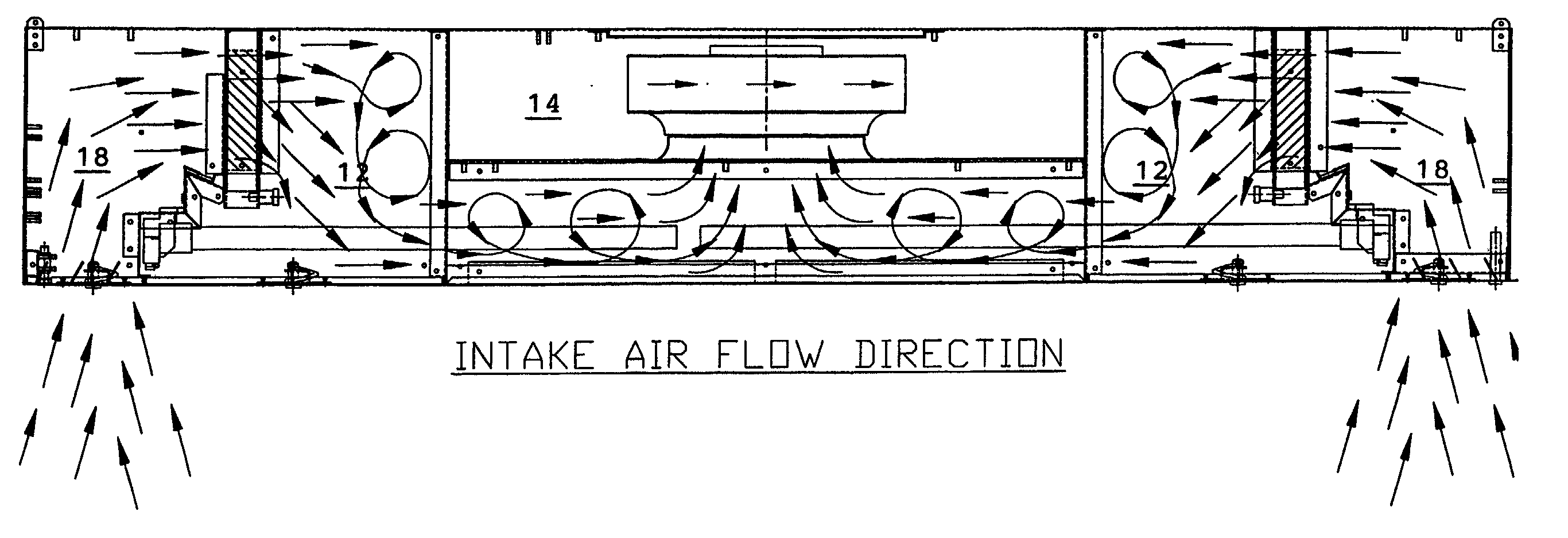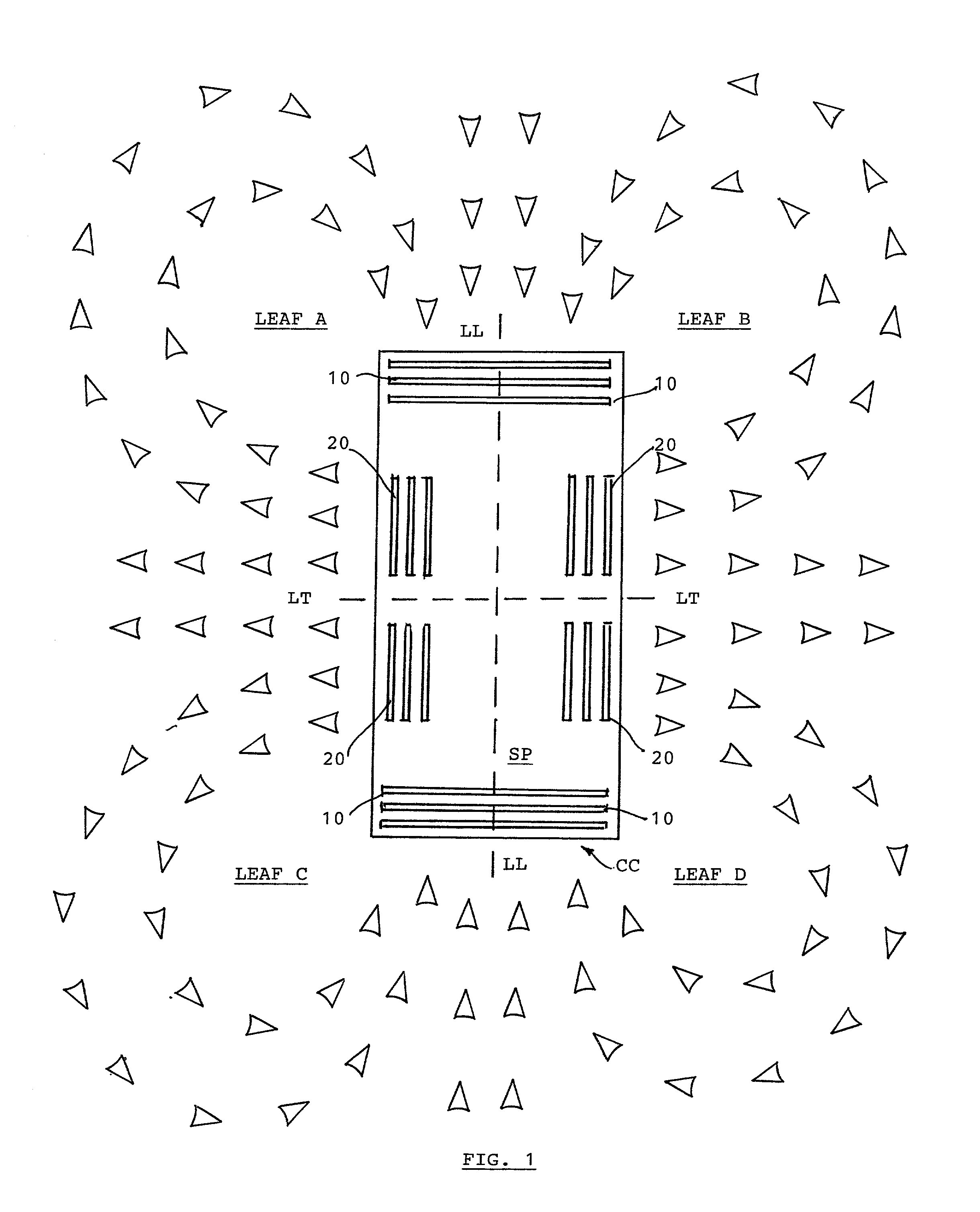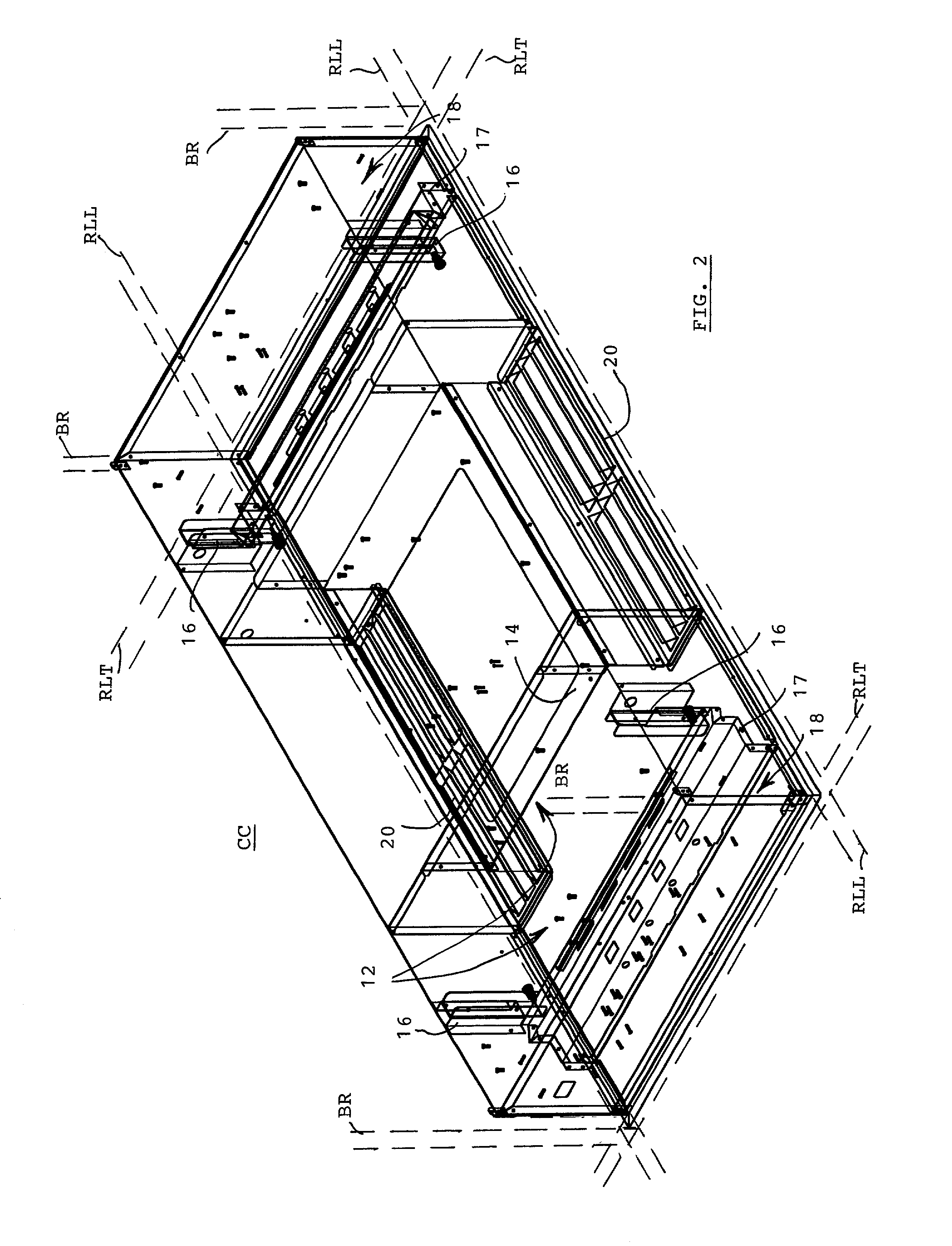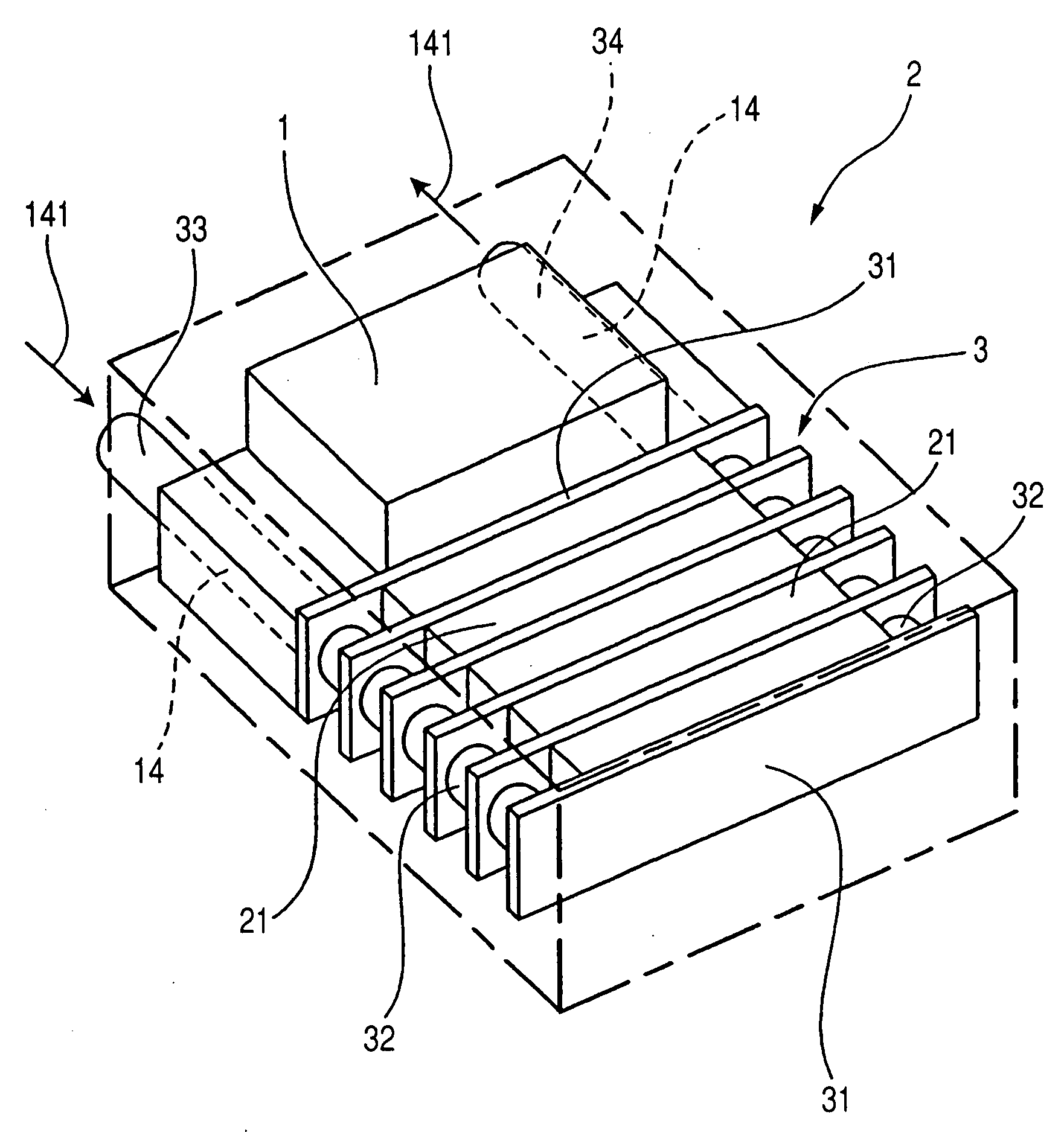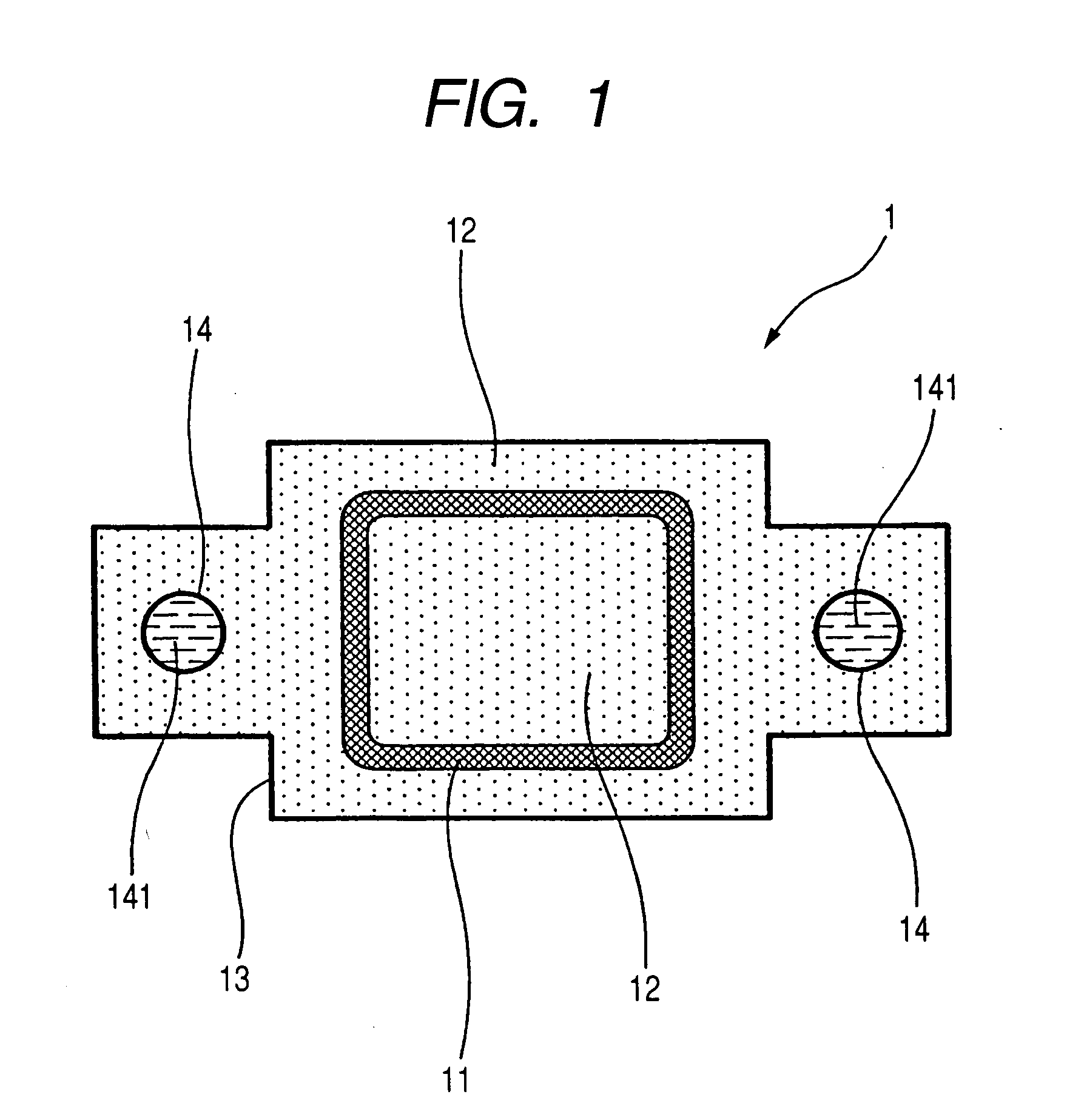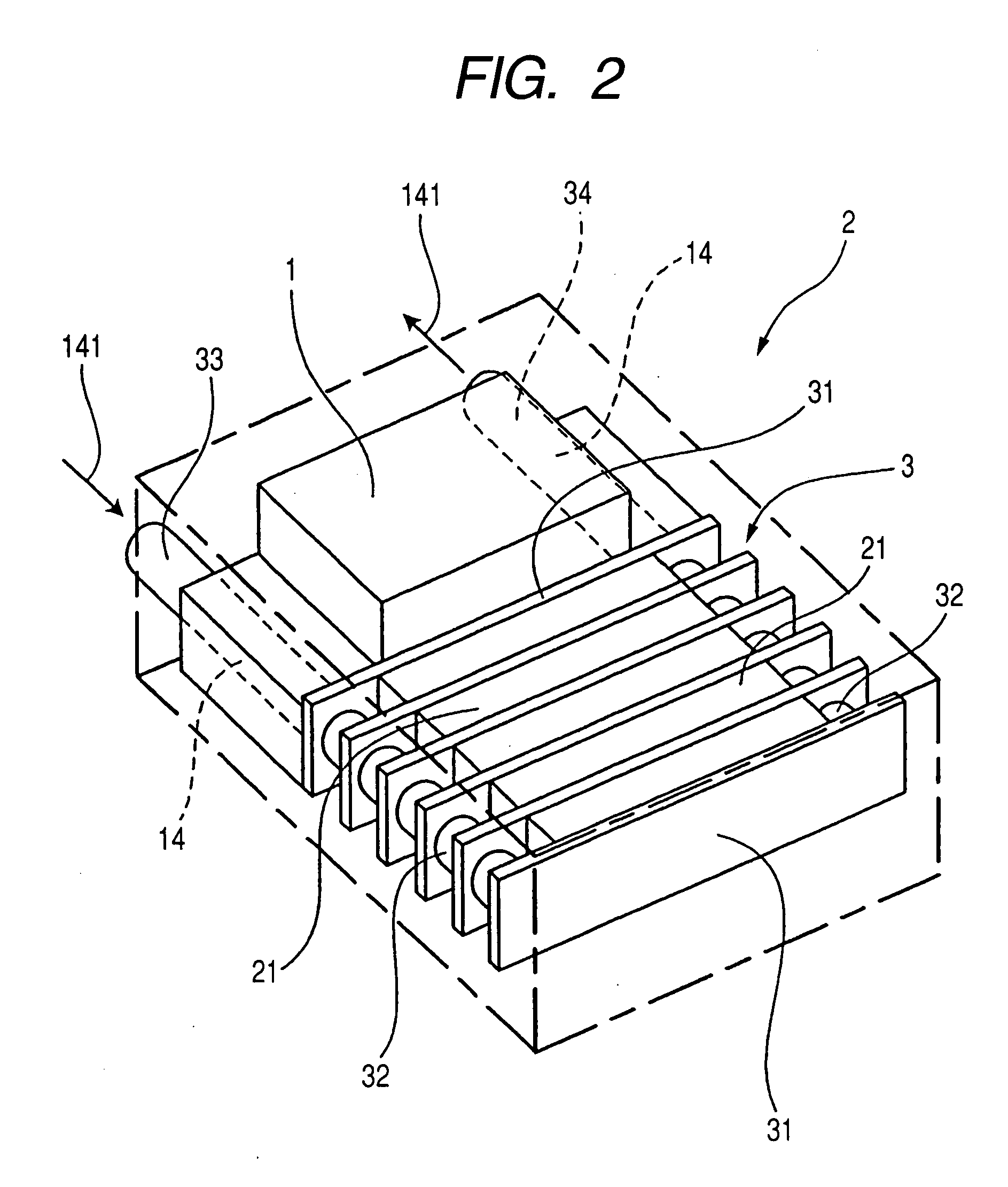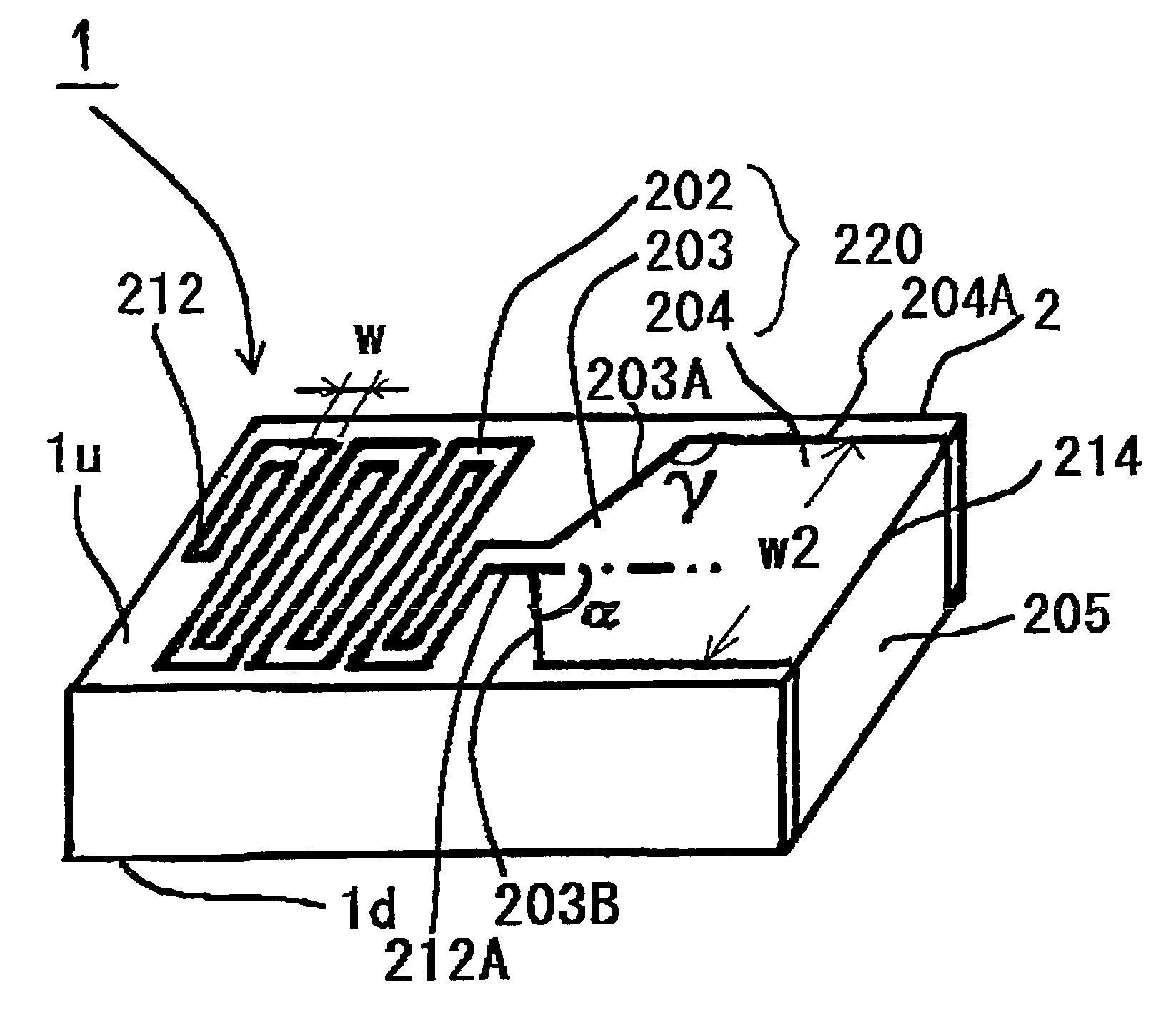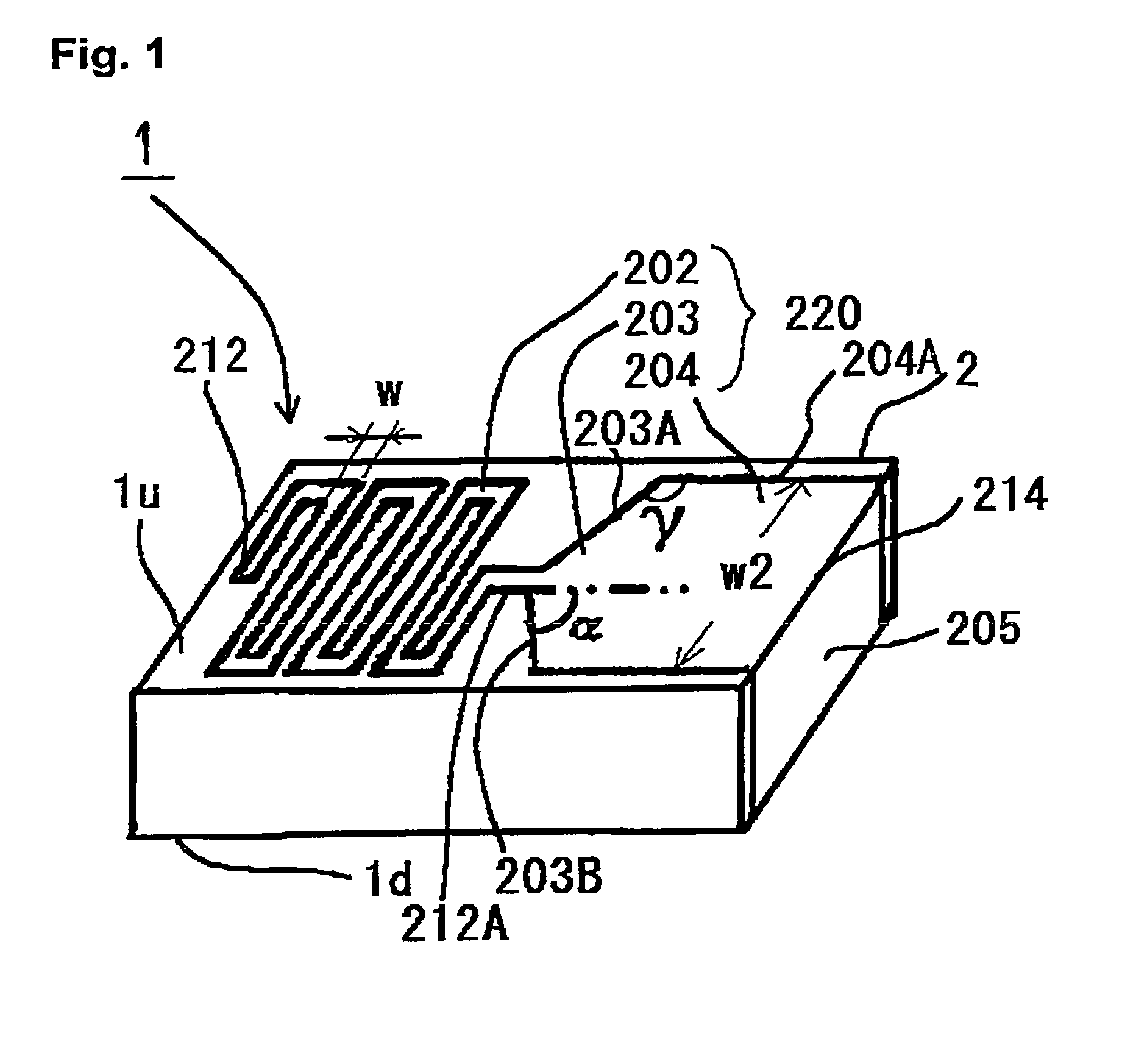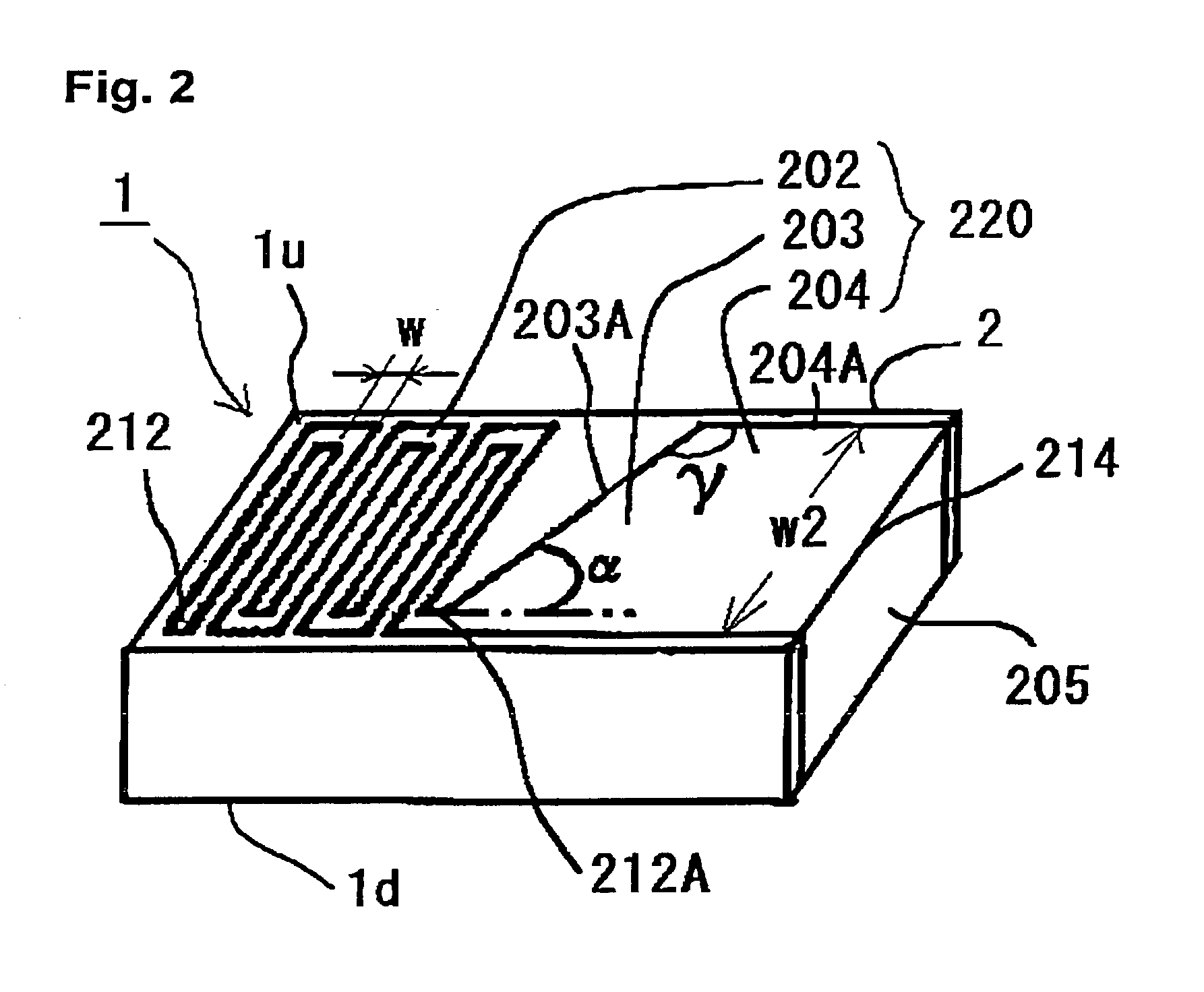Patents
Literature
Hiro is an intelligent assistant for R&D personnel, combined with Patent DNA, to facilitate innovative research.
515results about How to "Effective radiation" patented technology
Efficacy Topic
Property
Owner
Technical Advancement
Application Domain
Technology Topic
Technology Field Word
Patent Country/Region
Patent Type
Patent Status
Application Year
Inventor
Microstrip patch antenna for high temperature environments
ActiveUS7283096B2Improve performanceImprove reliabilitySimultaneous aerial operationsAntenna adaptation in movable bodiesMicrostrip patch antennaSpray coating
A patch antenna for operation within a high temperature environment. The patent antenna typically includes an antenna radiating element, a housing and a microwave transmission medium, such as a high temperature microwave cable. The antenna radiating element typically comprises a metallization (or solid metal) element in contact with a dielectric element. The antenna radiating element can include a dielectric window comprising a flame spray coating or a solid dielectric material placed in front of the radiating element. The antenna element is typically inserted into a housing that mechanically captures the antenna and provides a ground plane for the antenna. Orifices or passages can be added to the housing to improve high temperature performance and may direct cooling air for cooling the antenna. The high temperature microwave cable is typically inserted into the housing and attached to the antenna radiator to support the communication of electromagnetic signals between the radiator element and a receiver or transmitter device.
Owner:MEGGITT SA
Antenna module and method for manufacturing the same
InactiveUS20140225129A1Easy to assembleReduce manufacturing costSolid-state devicesSemiconductor/solid-state device manufacturingEngineeringSemiconductor
An electrode is formed on at least one surface of first and second surfaces of a dielectric film formed of resin to be capable of receiving or transmitting an electromagnetic wave in a terahertz band. A semiconductor device operable in the terahertz band is mounted on at least one surface of the first and second surfaces of the dielectric film to be electrically connected to the electrode. A portion of a support layer is formed on the first or second surface of the dielectric film, and a dielectric lens is supported by another portion of the support layer. Another portion of the support layer is bent with respect to the portion such that the electromagnetic wave in the terahertz band transmitted or received by the electrode permeates through the dielectric lens.
Owner:NITTO DENKO CORP
Lighting device
ActiveUS20100096992A1Size increase is preventedConvenient ArrangementCoupling device connectionsPlanar light sourcesEffect lightEngineering
The lighting device includes: a heat radiating part provided with a cavity that accommodates a part of a plurality of drive circuit components driving a light source module; and a base part provided with a cavity that accommodates another part (e.g., a transistor) of the drive circuit components. Then, the drive circuit components are accommodated in the cavity of the heat radiating part and the cavity of the base part.
Owner:SHARP KK
Radiator for light emitting unit, and backlight device
InactiveUS20070019419A1Increase brightnessGuaranteed uptimeMeasurement apparatus componentsLighting heating/cooling arrangementsHeat spreaderClose contact
Owner:SONY CORP
Compact antenna
ActiveUS20080180333A1Improve antenna performanceReducing antennas reflection coefficientSimultaneous aerial operationsAntenna supports/mountingsCouplingDielectric substrate
An antenna, including a planar dielectric substrate and a conductive ground plane formed on the substrate. A conductive monopole is formed on the substrate and has an end point located in proximity to a feed region of the ground plane. A conductive coupling element is formed on the substrate and is coupled to the ground plane at a coupling region of the ground plane. The coupling element is folded around the monopole.
Owner:GALTRONICS USA INC
Apparatus for establishing signal coupling between a signal line and an antenna structure
InactiveUS6512488B2Effective radiationWaveguide hornsShort antennas for non-sinusoidal wavesCouplingSignal source
An apparatus for coupling a signal supply with an antenna including first and second elements. The signal supply delivers a signal to the antenna at a connection locus. The first element has a first edge and the second element has a second edge; the connection locus includes part of the first and second edges. The apparatus includes a first and second feed structure. The first feed structure extends a feed distance from the signal supply to the second edge and divides the first element into two lands in spaced relation with the first feed structure to establish a separation distance intermediate the first feed structure and the two lands. The second feed structure couples the signal supply with the first proximal edge. The separation distance establishes a signal transmission structure between the two lands and the first feed structure.
Owner:HUMATICS CORP
Radiation Redirecting External Case For Portable Communication Device and Antenna Embedded In Battery of Portable Communication Device
ActiveUS20100113111A1Increase effective spaceEffective redirectingSimultaneous aerial operationsMagnetic/electric field screeningAntenna designMulti band
An advanced antenna or set of antennae for a wireless device is provided by embedding the antennae into the battery case or generally the largest surface area of a wireless phone. The antenna connections are made through the battery's connections to the wireless device. The antenna design can be compact and located in any area of the battery. The antenna design can be thin and flat, located at the back surface of the battery or the large rear surface of a wireless phone, facing away from the user. An RF shielding device can be embedded into the battery and configured in relation to the antenna such that the RF field intensity and the consequent specific absorption rate for the user is lowered while the outgoing signals of the wireless device remain fully adequate for the function of the wireless device. This feature is preserved for a multi-band operation because a digital phase shifter is used between two radiating antennae. An external case is used as a complement to the wireless phone to provide additional antennae, power and capability.
Owner:PENUMBRA BRANDS LLC
Heat radiator and display unit
InactiveUS20070211205A1Improve thermal conductivityAvoid it happening againPoint-like light sourceLighting heating/cooling arrangementsDisplay deviceEngineering
Disclosed is a heat radiator which is provided in a transmissive display unit in which a plurality of rows of light emitting arrays constituted by arranging a plurality of light emitting units including a plurality of LEDs mounted on a wiring substrate are arranged on the back surface side of a transmissive display panel, and illuminating light emitted from the LEDs is irradiated onto the display panel. In the heat radiator, a radiation plate (28) supporting LEDs (18) and a heat sink (37) constitute an overlap area (57) with a back panel (13) interposed therebetween and are integrated with each other through the back panel by a fixing member in the overlap area. The back panel, radiation plate, and heat sink are firmly mounted to each other, achieving effective heat radiation.
Owner:SONY CORP
Semiconductor chip and method for manufacturing the same
ActiveUS20040140547A1Prevents each device from deterioratingEasily deterioratedTransistorSemiconductor/solid-state device detailsSemiconductor chip
A semiconductor chip having a plurality of device formative layers that are formed into an integrated thin film is provided by a technique for transferring. According to the present invention, a semiconductor chip that is formed into a thin film and that is highly integrated can be manufactured by transferring a device formative layer with a thickness of at most 50 mum which is separated from a substrate into another substrate by a technique for transferring, and transferring another device formative layer with a thickness of at most 50 mum which is separated from another substrate to the above device formative layer, and, repeating such transferring process.
Owner:SEMICON ENERGY LAB CO LTD
Hard disk drive housing apparatus and electronic apparatus
InactiveUS7167360B2Effective radiationMaintain reliabilityPortable framesDigital data processing detailsHard disc driveSurface mounting
In a hard disk drive (HDD) or an electronic apparatus in which the HDD is wrapped with a foam resin sheet with a noise absorption effect and a metal outer casing to thereby damp noise, a sub-assembly wrapping body incorporating therein the HDD wrapped with a wrapping body composed of a slippery film sheet with foam resin sheets attached thereto is mounted into the metal outer casing through the slippery surface of the slippery film sheet. In order to insulate a noise generated from a recording and reproducing drive apparatus such as the HDD, the system for use with the HDD and the electronic apparatus can simplify the assembly process required when the HDD is loaded into the outer casing serving as a noise insulation box through a noise absorption member.
Owner:SONY CORP
Light emitting device and method for manufacturing the same
ActiveUS20100314654A1Improve luminous performanceEfficient productionSolid-state devicesSemiconductor/solid-state device manufacturingEpoxyEpoxy resin composite
A light emitting device, which can be efficiently manufactured and maintain a stable light emitting property for a long period, is provided. The light emitting device comprises a first resin forming body including a periphery that forms a recess to house a light emitting element and a bottom that forms a bottom portion of the recess, and a second resin forming body which covers the light emitting element. The first resin forming body is composed of a thermosetting epoxy resin composite whose essential component is an epoxy resin. The bottom covers surfaces of lead frames excluding mounting regions of the light emitting element and wires. A thickness of the bottom is formed thinner than a thickness from the surface of the lead frames to a leading end of the light emitting element.
Owner:NICHIA CORP
Microwave array applicator for hyperthermia
InactiveUS20100036369A1Reduce the amount requiredIncrease surface areaMicrowave therapySurgical instruments for heatingEngineeringElectromagnetic field
Apparatus (10) for treating skin tissue with microwave radiation (e.g. having a frequency of 1 GHz to 300 GHz) is disclosed in which an array of radiating elements (18), e.g. patch antennas are arranged on a flexible treating surface (16) for locating over and conforming with a region of skin tissue (24) to be treated. The radiating elements (18) receive microwave energy from a feed structure and are configured to emit outwardly a electromagnetic field which permits the region of skin to a substantially uniform penetration depth. Each radiating element (18) may have an independently controllable power supply to permit relative adjustment of the field across the treatment surface. Each radiating element may have a monitoring unit to allow adjust based on detected reflected power. Each independently controllable power supply may include a dynamic impedance matching unit.
Owner:UNIV OF WALES BANGOR
Module type multiphase inverter
ActiveUS20070076355A1Easy to manufactureEasy wiringConversion constructional detailsSubstation/switching arrangement cooling/ventilationEngineeringAlternating current
A multiphase inverter has two card shaped arm modules facing each other along a stacking direction. Each module has semiconductor switching elements disposed along an element arranging direction substantially perpendicular to the stacking direction, a common heat sink plate connecting direct current electrodes of the elements with one of terminals of the power source, and phase heat sink plates connecting respective alternating current electrodes of the elements with respective multiphase terminals of a motor. The elements of each module correspond to all phases of an alternating current. Each common heat sink plate forms a principal surface of the corresponding module, and the phase heat sink plates of each module forms another principal surface. The principal surfaces of each module face each other along the stacking direction.
Owner:DENSO CORP
Electronic apparatus and hard disk drive housing apparatus
InactiveUS7315447B2Effective radiationImprove reliabilityApparatus for flat record carriersRecord information storageHard disc driveHeat transmission
A system for mounting a hard disk drive inside an electronic apparatus in such a way that the hard disk drive is isolated from vibration and noise and heat generated by the hard disk dive is radiated to a cover of the electronic apparatus to prevent overheating. A foam heat transmission sheet is placed between the hard disk drive cover and an outer casing that is mounted to the electronic apparatus and far-infrared ray transmitting and receiving sheets are attached to the outside of the outer casing and to the inside of the cover of the electronic apparatus to transmit heat from the hard disk drive to the exterior of the apparatus.
Owner:SONY CORP
Apparatus for establishing signal coupling between a signal line and an antenna structure
InactiveUS6642903B2Effective radiationShort antennas for non-sinusoidal wavesElongated active element feedSignal sourceSignal lines
Owner:TIME DOMAIN
Planar inverted "F" antenna and method of tuning same
InactiveUS7345634B2Easy to operateEfficient use ofSimultaneous aerial operationsAntenna supports/mountingsCapacitancePlanar inverted f antenna
Owner:KYOCERA WIRELESS +1
Luminescent material, especially for led application
ActiveUS20050205845A1Efficient excitationGood colorIncadescent screens/filtersDischarge tube luminescnet screensAlkaline earth metalOptoelectronics
UV-blue excitable green luminescent material including an Eu-doped oxynitride host lattice with general composition MSi2O2N2, wherein M is at least one of an alkaline earth metal chosen from the roup Ca, Sr, Ba.
Owner:OSRAM OLED
Semiconductor chip and method for manufacturing the same
InactiveUS7067926B2Prevents each device from deterioratingEasily deterioratedTransistorSemiconductor/solid-state device detailsSemiconductor chipEngineering
A semiconductor chip having a plurality of device formative layers that are formed into an integrated thin film is provided by a technique for transferring. According to the present invention, a semiconductor chip that is formed into a thin film and that is highly integrated can be manufactured by transferring a device formative layer with a thickness of at most 50 μm which is separated from a substrate into another substrate by a technique for transferring, and transferring another device formative layer with a thickness of at most 50 μm which is separated from another substrate to the above device formative layer, and, repeating such transferring process.
Owner:SEMICON ENERGY LAB CO LTD
Lighting device
ActiveUS8226270B2Size increase is preventedConvenient ArrangementCoupling device connectionsPlanar light sourcesEffect lightTransistor
The lighting device includes: a heat radiating part provided with a cavity that accommodates a part of a plurality of drive circuit components driving a light source module; and a base part provided with a cavity that accommodates another part (e.g., a transistor) of the drive circuit components. Then, the drive circuit components are accommodated in the cavity of the heat radiating part and the cavity of the base part.
Owner:SHARP KK
Visibly transparent dyes for through-transmission laser welding
InactiveUS6911262B2Add little or no light scatteringEffective radiationMechanical working/deformationLamination ancillary operationsSelection criterionThrough transmission
Owner:GENTEX CORP
Compact antenna
ActiveUS7825863B2Better antennaLow costSimultaneous aerial operationsAntenna supports/mountingsCouplingDielectric substrate
An antenna, including a planar dielectric substrate and a conductive ground plane formed on the substrate. A conductive monopole is formed on the substrate and has an end point located in proximity to a feed region of the ground plane. A conductive coupling element is formed on the substrate and is coupled to the ground plane at a coupling region of the ground plane. The coupling element is folded around the monopole.
Owner:GALTRONICS USA INC
High conductivity buried layer in optical waveguide
InactiveUS6374001B1Layer is highReduce dissipationCoupling light guidesOptical waveguide light guideRefractive indexElectrical connection
An optical device (300) comprises a multilayer structure, formed by wafer bonding, incorporating in sequence a silicon dioxide layer (304), a buried silicide layer (306), a contact layer (308) and a silicon surface layer (310). The surface layer (310) is selectively etched to form an exposed rib (312). An upper surface of the rib (312) is doped to form an elongate electrode (314) therealong. The surface layer (310) is selectively etched to the contact layer (308) in regions remote from the rib (312) to form via channels (316a, 316b) for making electrical connection to the contact layer (308). The rib (312) forms a waveguide along which radiation propagates. When the electrode (314) is biased relative to the contact layer (308), charge carriers are injected into the rib (312) and induce refractive index changes in a central region (324) thereof where most of the radiation propagates along the rib (312). The silicide layer (306) provides an efficient current conduction path for injecting the carriers, thereby providing enhanced device operating bandwidth and reduced power dissipation.
Owner:QINETIQ LTD
Jet flow generating apparatus, electronic apparatus, and jet flow generating method
InactiveUS20050121171A1Noise can be prevented from generatingSuppress noiseSemiconductor/solid-state device detailsFlexible member pumpsJet flowEngineering
A jet flow generating apparatus that suppresses noise as much as possible and effectively radiates the heat generated by a heat generating member, an electronic device that is equipped with the jet flow generating apparatus, and a jet flow generating method are provided. According to the present invention, a jet flow generating apparatus comprises a plurality of chambers each having an opening and each containing a coolant, a vibrating mechanism for vibrating the coolant contained in each of the plurality of chambers so as to discharge the coolant as a pulsating flow through the openings, and a control unit for controlling the vibration of the vibrating mechanism so that the sound waves generated by the coolant discharged from the plurality of chambers weaken each other.
Owner:SONY CORP
Radiation redirecting external case for portable communication device and antenna embedded in battery of portable communication device
ActiveUS8208980B2Increase effective spaceAvailable spaceSimultaneous aerial operationsMagnetic/electric field screeningAntenna designMulti band
An advanced antenna or set of antennae for a wireless device is provided by embedding the antennae into the battery case or generally the largest surface area of a wireless phone. The antenna connections are made through the battery's connections to the wireless device. The antenna design can be compact and located in any area of the battery. The antenna design can be thin and flat, located at the back surface of the battery or the large rear surface of a wireless phone, facing away from the user. An RF shielding device can be embedded into the battery and configured in relation to the antenna such that the RF field intensity and the consequent specific absorption rate for the user is lowered while the outgoing signals of the wireless device remain fully adequate for the function of the wireless device. This feature is preserved for a multi-band operation because a digital phase shifter is used between two radiating antennae. An external case is used as a complement to the wireless phone to provide additional antennae, power and capability.
Owner:PENUMBRA BRANDS LLC
Self-ballasted lamp
InactiveUS20100026185A1Improve radiation efficiencyAvoid heatPoint-like light sourceElectric circuit arrangementsFree rotationEngineering
Owner:TOSHIBA LIGHTING & TECH CORP
Ultraviolet (UV) radiation source-based surface disinfection system
InactiveUS20080253941A1Reduce the amount requiredFocusEnergy based chemical/physical/physico-chemical processesRadiationTarget surfaceUltraviolet
A UV radiation-based surface disinfection system disinfects contaminated surfaces by providing disinfecting UV radiation that eliminates pathogens or microbes from the target surface that it irradiates / illuminates. The system includes a housing adapted to contain UV radiation sources and operate as a UV shield and director, at least one UV radiation (light) emitting source mounted within said housing for providing disinfecting UV radiation from said housing onto a target surface, and at least one of a range sensor and timer. UV radiation source(s) can be mounted on a rotating or sliding assembly within the main assembly to disinfect the preferred surface. The UV radiation source(s) can also be mounted in a portable handheld assembly having a range sensor for enhanced safety during use. The system can be powered by standard AC electrical power or batter sources.
Owner:WICHERS DONALD W +2
Gantry system for particle therapy, therapy plan or radiation method for particle therapy with such a gantry system
InactiveUS20070051904A1Reduce expensesAvoid transportChemical conversion by chemical reactionX-ray/gamma-ray/particle-irradiation therapyParticle beamParticle physics
A gantry system for particle therapy system, therapy plan and radiation method for a particle therapy with such a gantry system is provided. The gantry system for a particle therapy system includes a particle beam. A first beam guiding device rotatable about an axis of rotation of the gantry guides the particle beam so that the particle beam strikes a treatment location at a gantry incidence direction. The gantry incidence direction deviates from the axis of rotation and is variable. A second beam guiding device guides the particle beam to a treatment location in a second direction.
Owner:SIEMENS AG
UV air cleaning & disinfecting system
InactiveUS20020031460A1Increase exposureEffective radiationMechanical apparatusLighting and heating apparatusAir filterUltraviolet lights
A UV air cleaning and disinfecting system has an enclosed chassis with an inlet / outlet surface panel on one planar side thereof, and the chassis is mounted in the space behind a drop ceiling with its surface panel coplanar with the ceiling surface and facing into the room space. The surface panel has a pair of inlet vent arrays on opposite longitudinal sides of the surface panel from each other, and a pair of outlet vent arrays on opposite latitudinal sides of the surface panel from each other. Arranged in the chassis are an air blower unit and an array of UV lamps. The positioning of the inlet and outlet vent arrays establish four mutually circulating air streams in a four-leaf-clover pattern in the room space, which obtains a high-efficiency throughput of air handled by the system. The UV lamp array is arranged longitudinally across the chassis between the inlet ventsat a lower elevational position ofthe chassis. A pair of air filters is arranged at intake chambers separated by UV-blocking baffles at opposite longitudinal sides of the main chamber housing the air blower in the center of the chassis at an upper elevational position from the array of UV lamps. The upward and downward movement of the air through the filters and over the UV lamps toward the center causes swirling movements which enhance the exposure of pathogens in the air to UV radiation exposure. The surface panel is formed with a series of cascading door sections to allow wide access across the center of the chassis for maintenance of the UV lamps, with a first door section connected to an interlock switch for cutting off electrical power to the UV lamps and fan when the first door section is opened. The UV-blocking baffles have an angled shape and slits at an upper flange thereof covered with fused silica shields. The system's chassis is dimensioned to fit on ceiling rails spaced at standard 4 foot length and 2 foot width intervals. The system can provide 99% or higher inactivation of pathogens in the air with 2 to 7 or more air changes per hour for standard sized rooms.
Owner:KULP JOHN C
Reactor and power converter incorporating the reactor
ActiveUS20070295715A1Efficient heat radiationImprove cooling effectTransformers/inductances coolingInductances/transformers/magnets manufactureNuclear engineeringEngineering
A reactor is provided with a coil, a core, and a case. The coil generates magnetic flux in response to supply of current thereto. The core is made of magnetic powder-containing resin filled in spaces inside and outside of the core. The case accommodates therein the coil and the core. The reactor is also provided with a cooling pipe (cooling member), which is arranged to be in contact with the core. A power converter is provided with semiconductor modules, a cooler, and the reactor. In the power converter, the cooler is arranged partially being in contact with the core of the reactor.
Owner:TOKIN CORP
Dielectric antenna for high frequency wireless communication apparatus
InactiveUS6995710B2Efficiently and preventing drop in efficiency of radiationImprove featuresSimultaneous aerial operationsElectrically long antennasDielectric antennasLine width
A dielectric antenna is provided for a high frequency wireless communication apparatus. The antenna includes a dielectric substrate and a conductive meander line layer formed on the dielectric substrate. A conductive feed line layer, having a greater line width than the width of the meander line layer, is also formed on the dielectric substrate. A conductive taper layer connects the conductive meander line layer to the conductive feed line layer. An edge of the conductive taper layer slants at an angle from an adjacent edge of the conductive feed line layer in a direction toward the conductive meander line layer.
Owner:NGK SPARK PLUG CO LTD
Features
- R&D
- Intellectual Property
- Life Sciences
- Materials
- Tech Scout
Why Patsnap Eureka
- Unparalleled Data Quality
- Higher Quality Content
- 60% Fewer Hallucinations
Social media
Patsnap Eureka Blog
Learn More Browse by: Latest US Patents, China's latest patents, Technical Efficacy Thesaurus, Application Domain, Technology Topic, Popular Technical Reports.
© 2025 PatSnap. All rights reserved.Legal|Privacy policy|Modern Slavery Act Transparency Statement|Sitemap|About US| Contact US: help@patsnap.com
